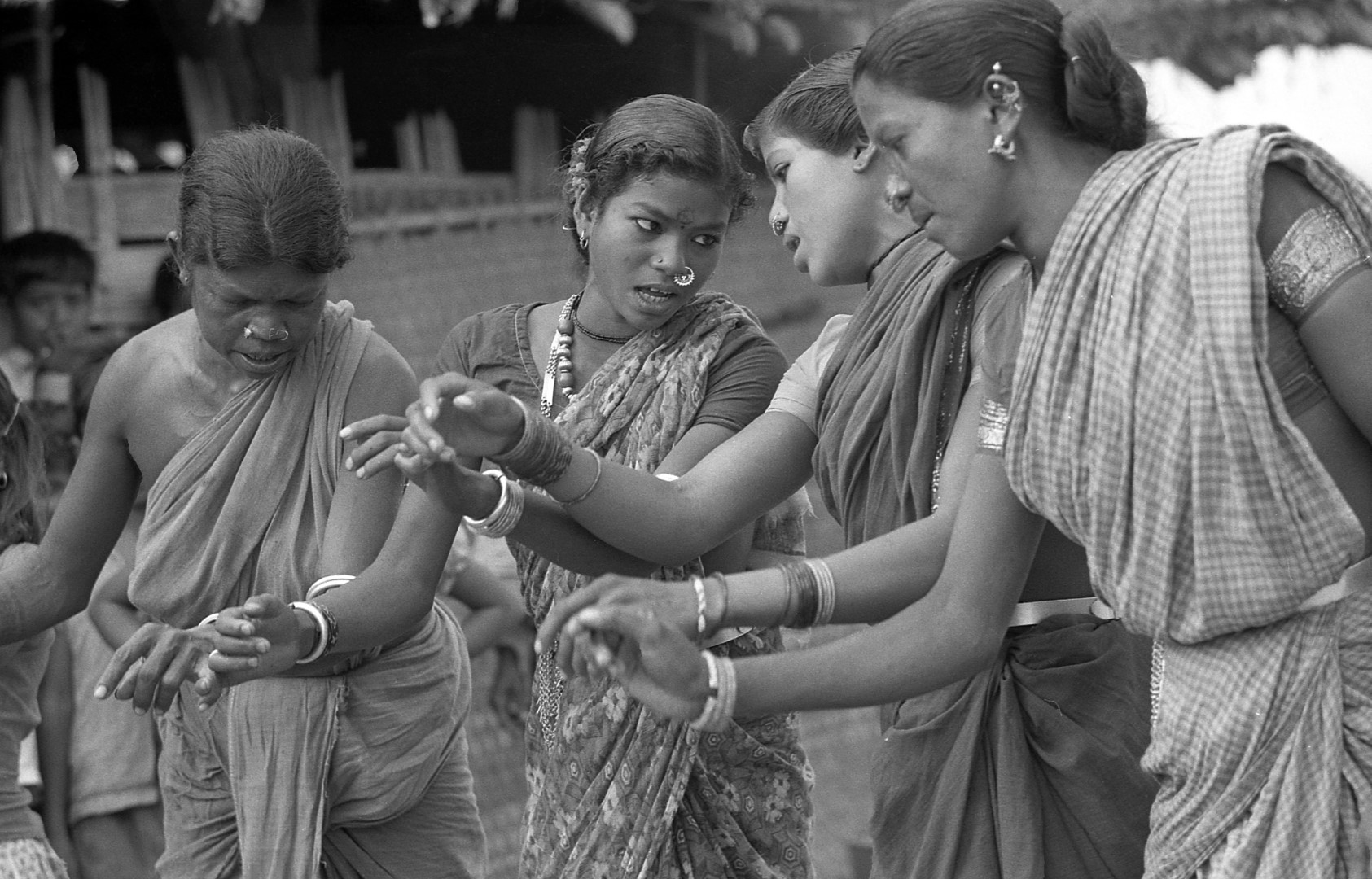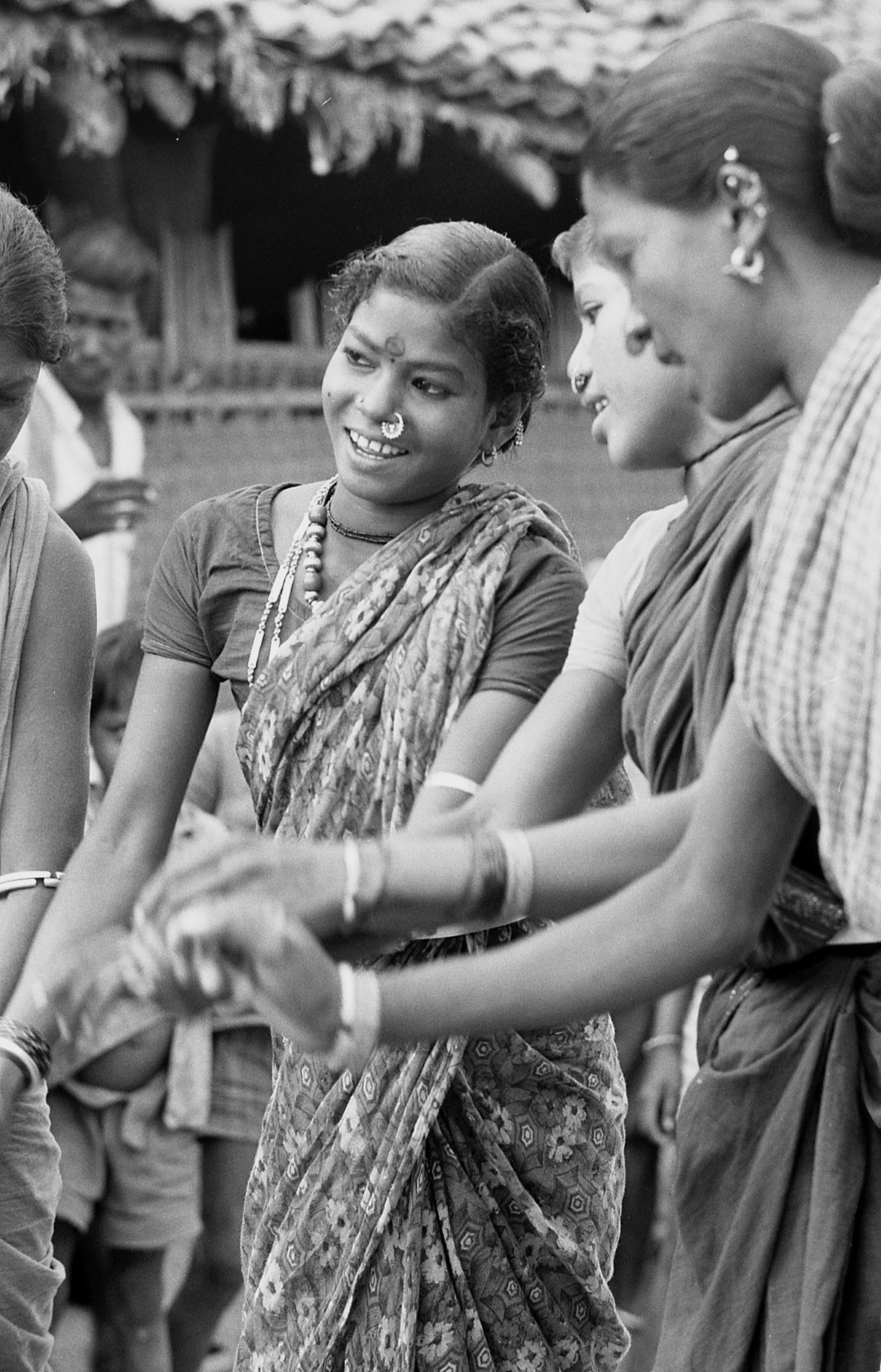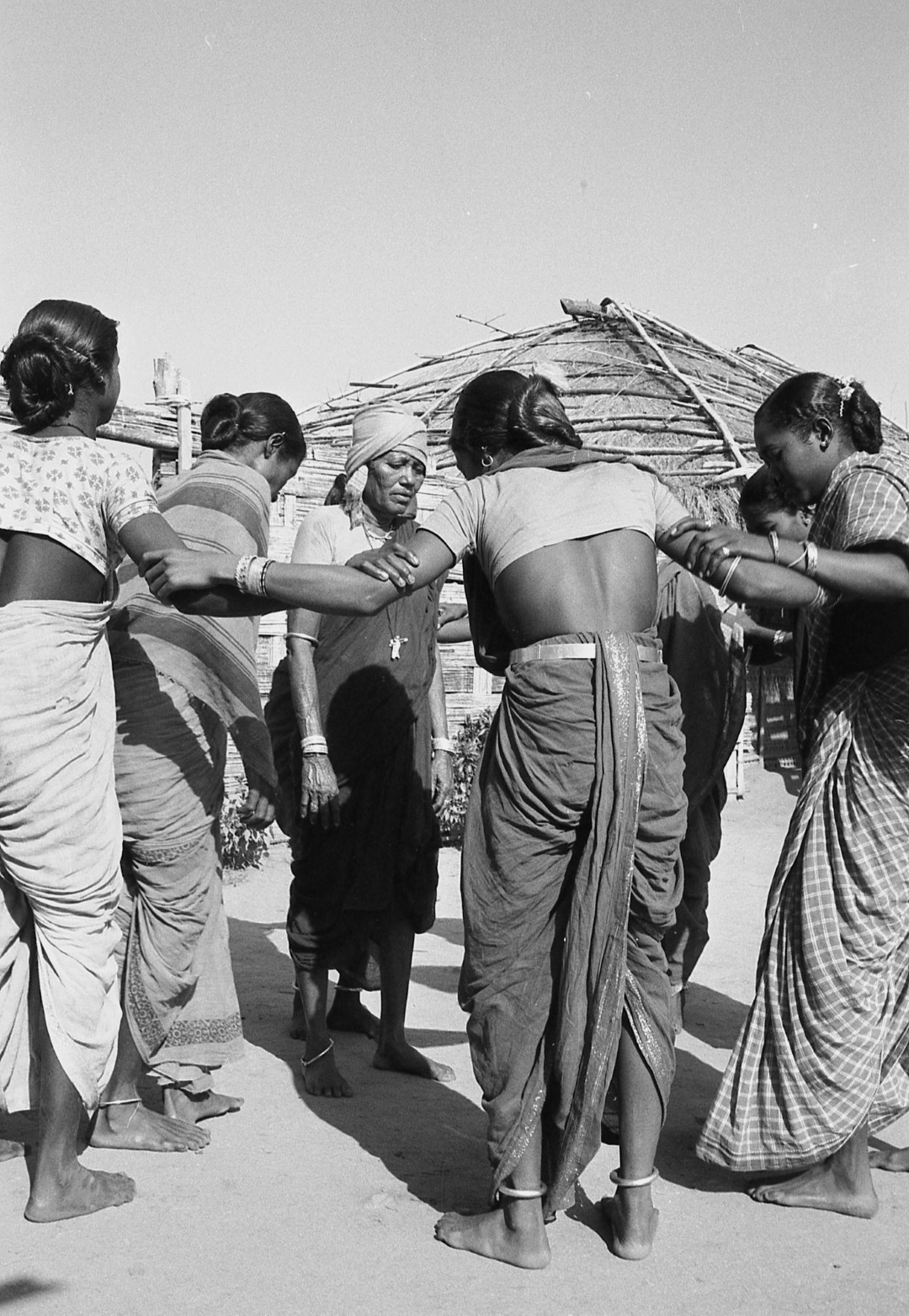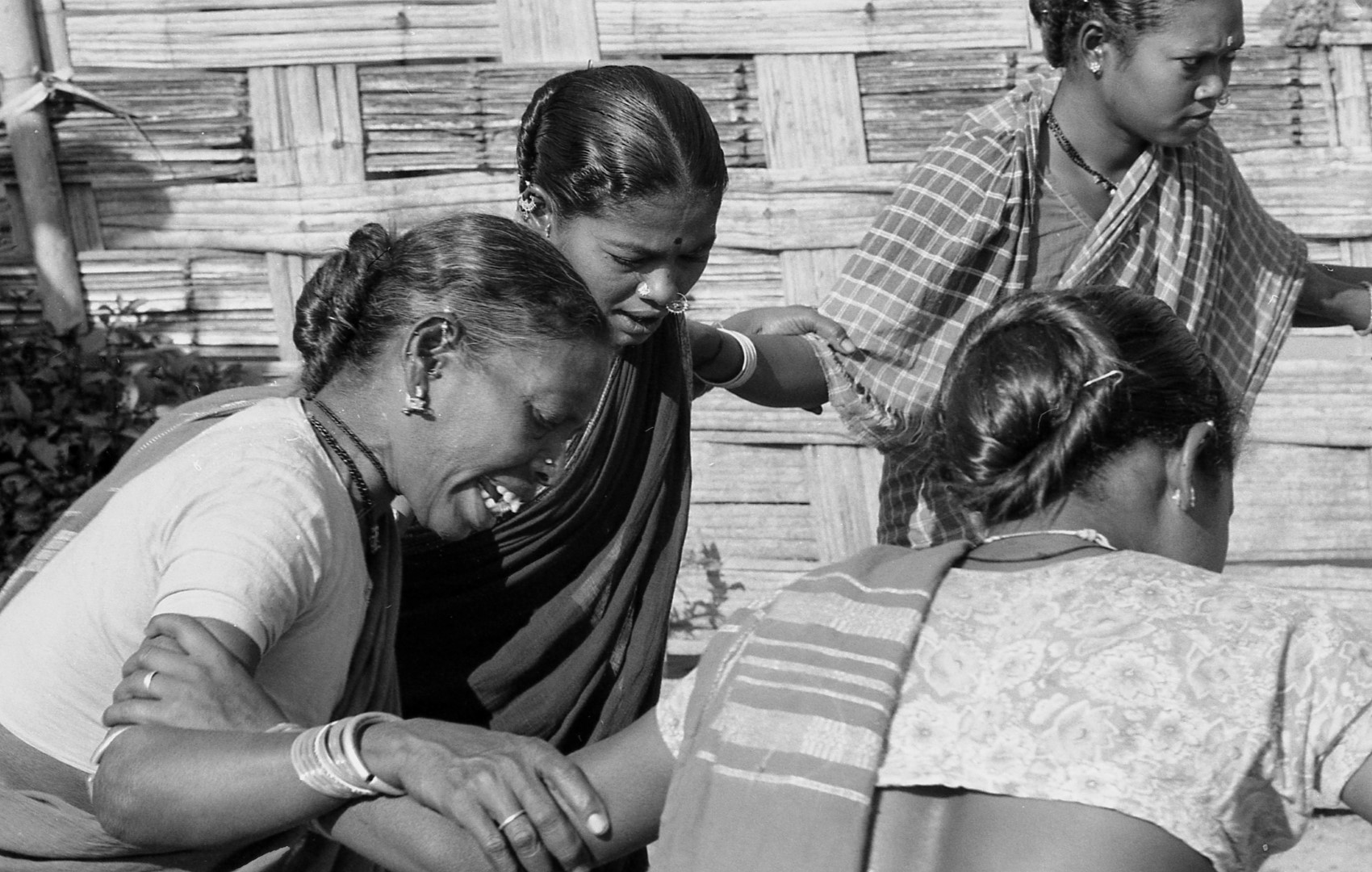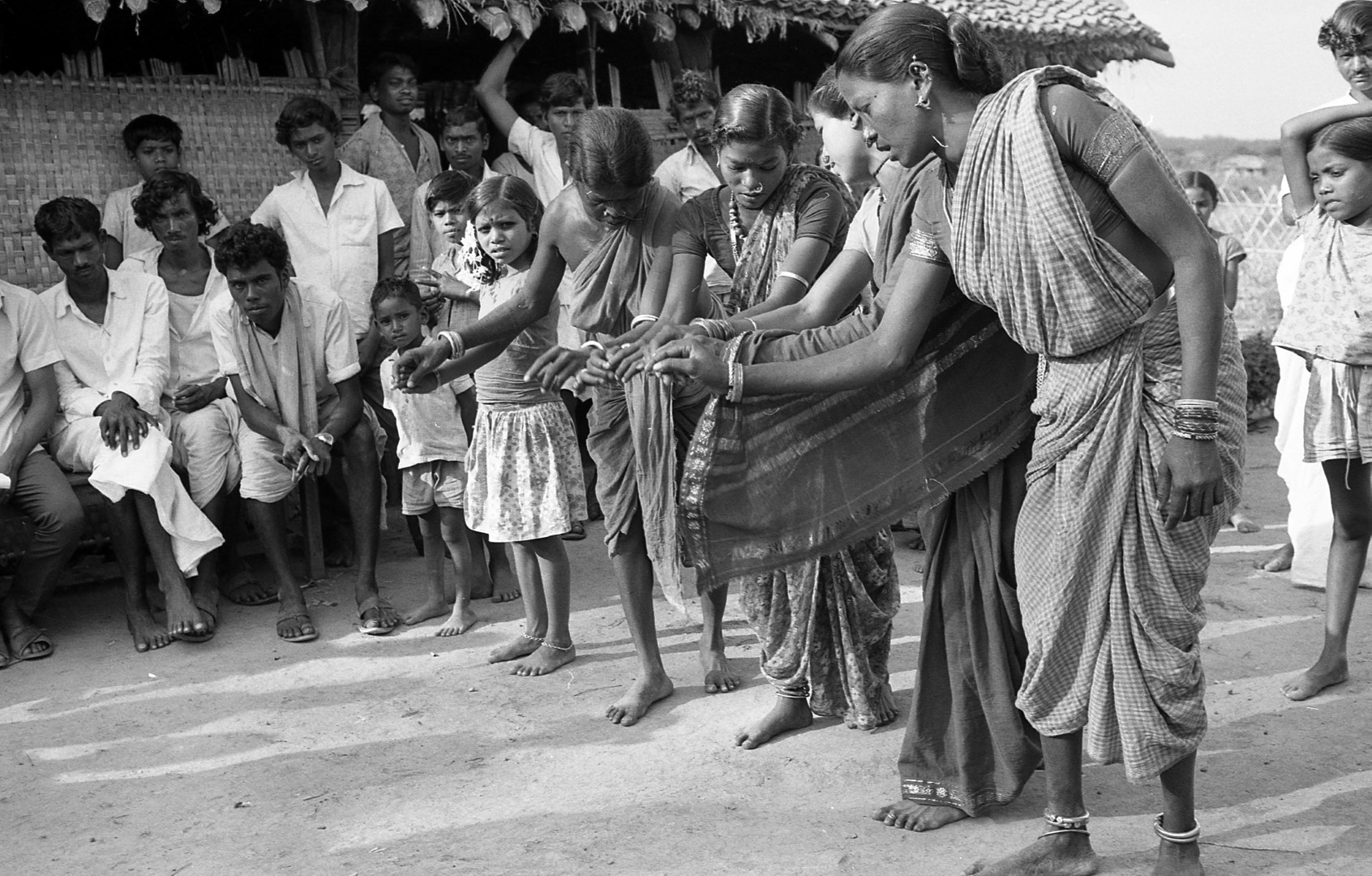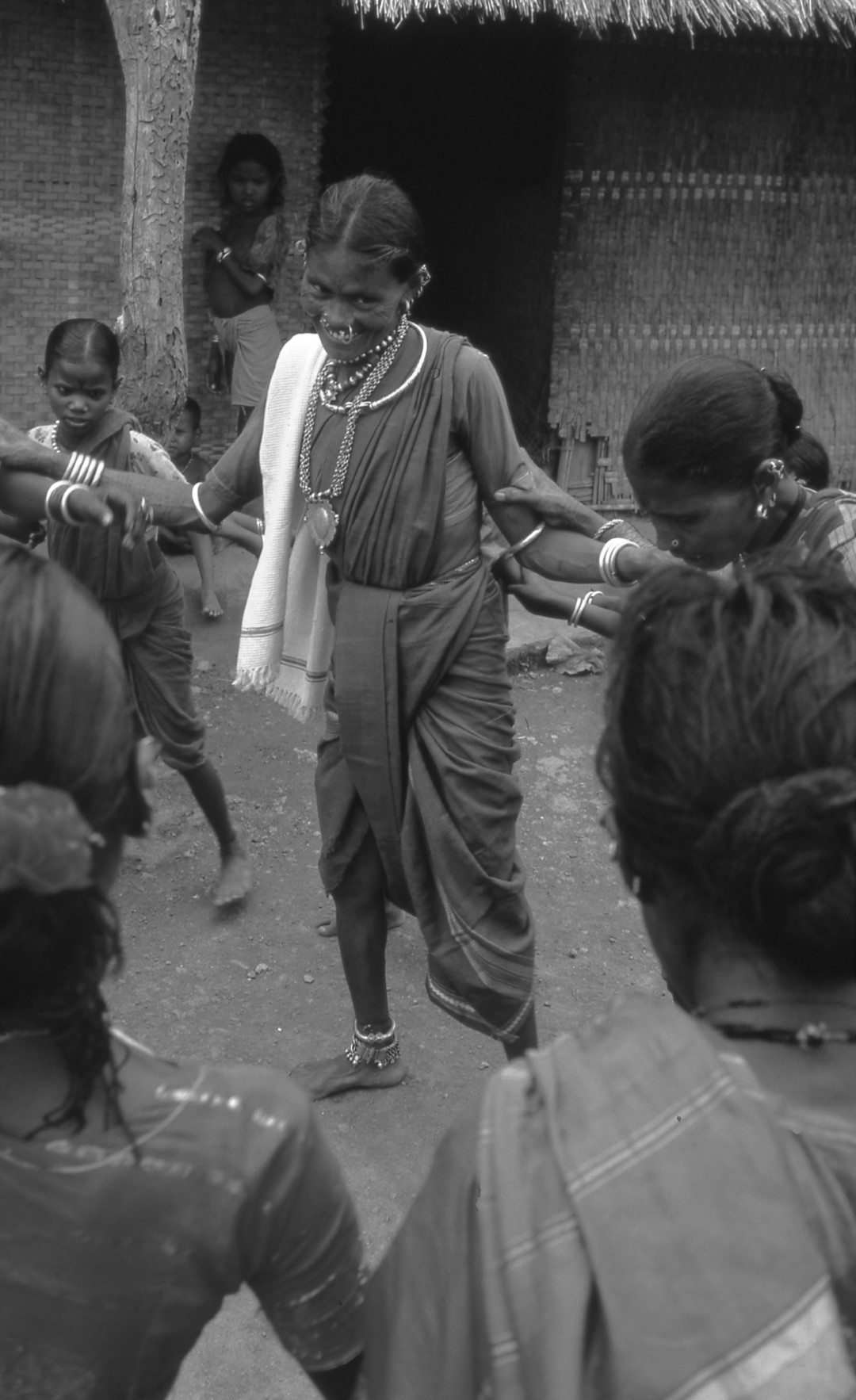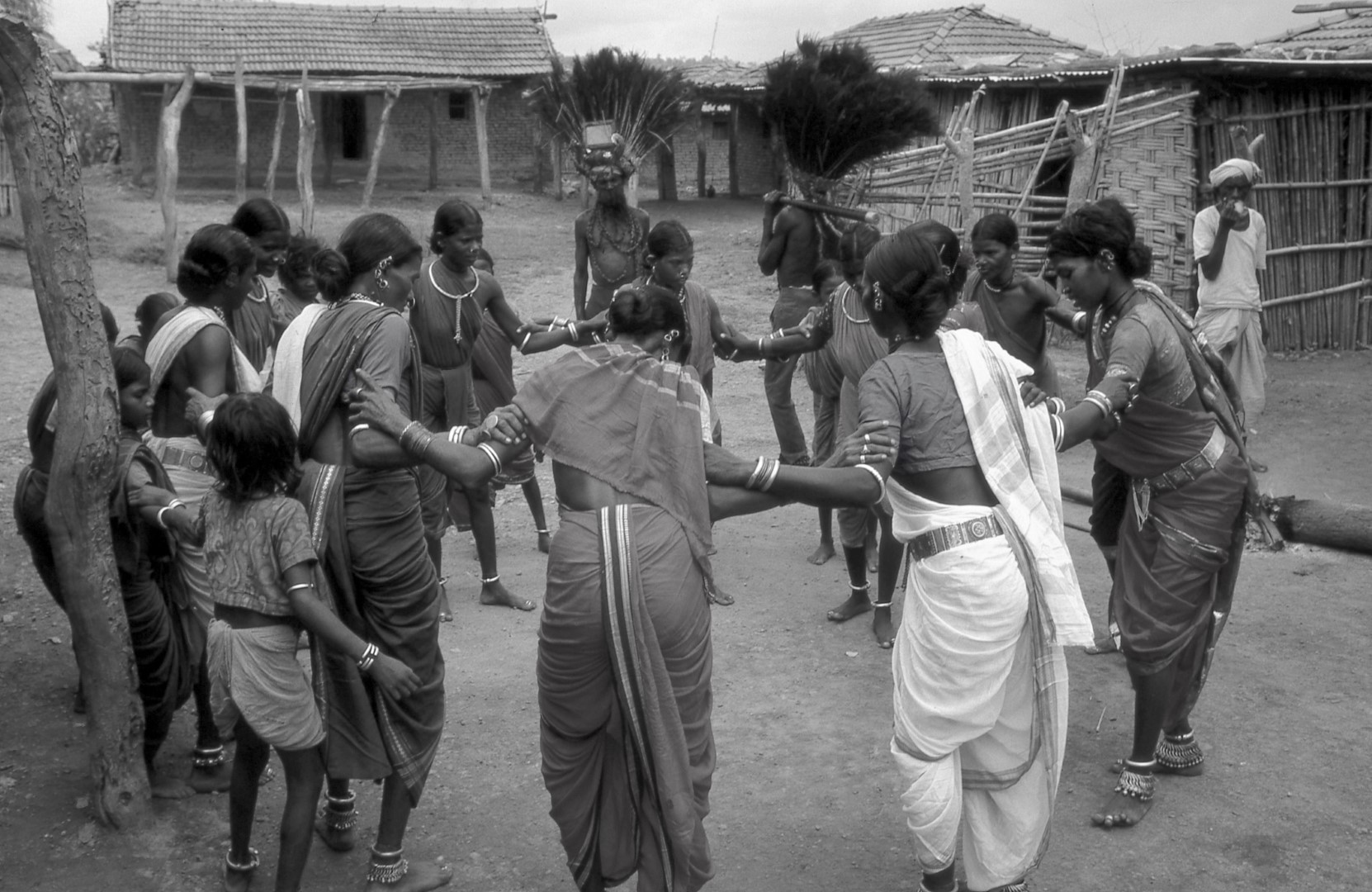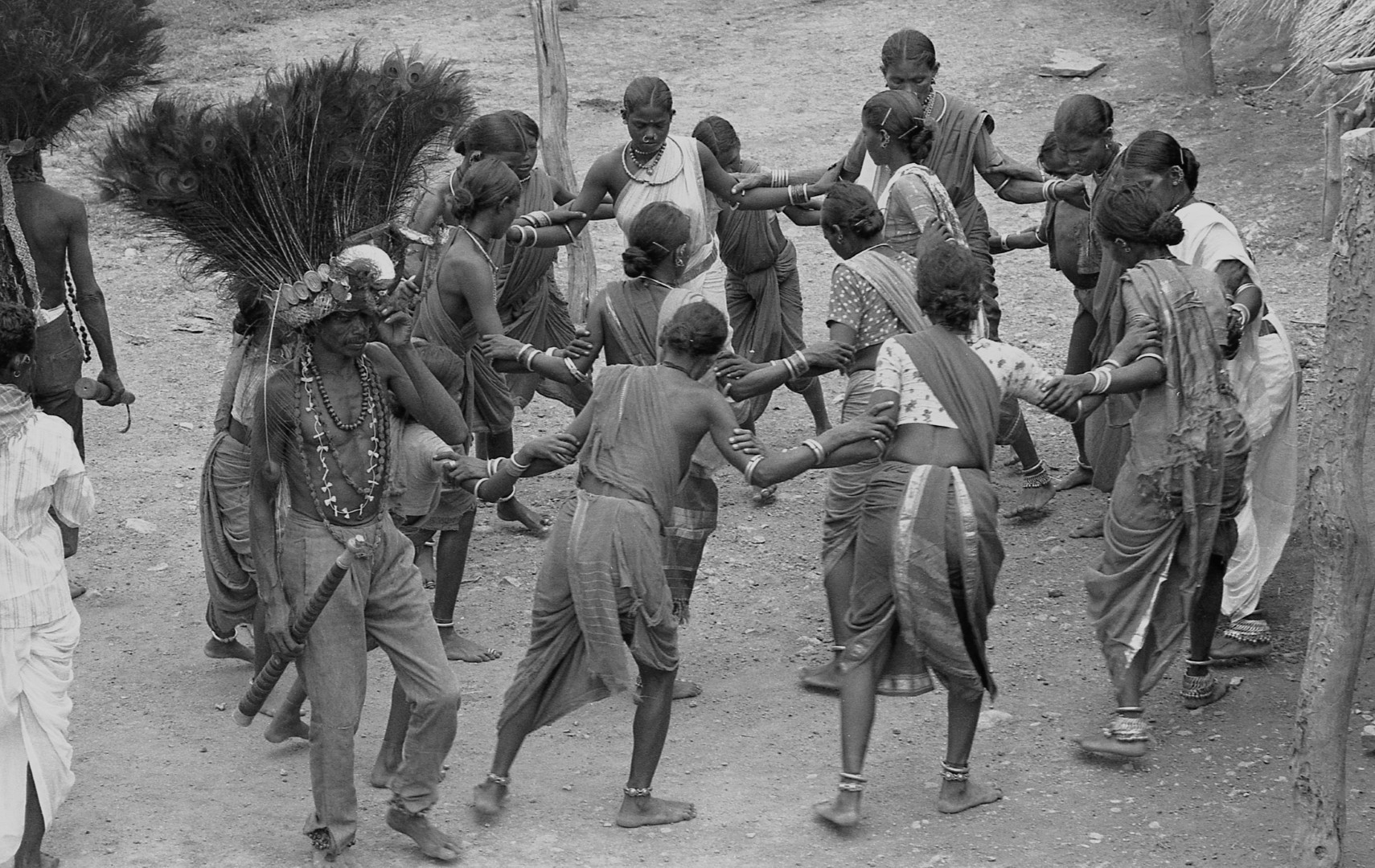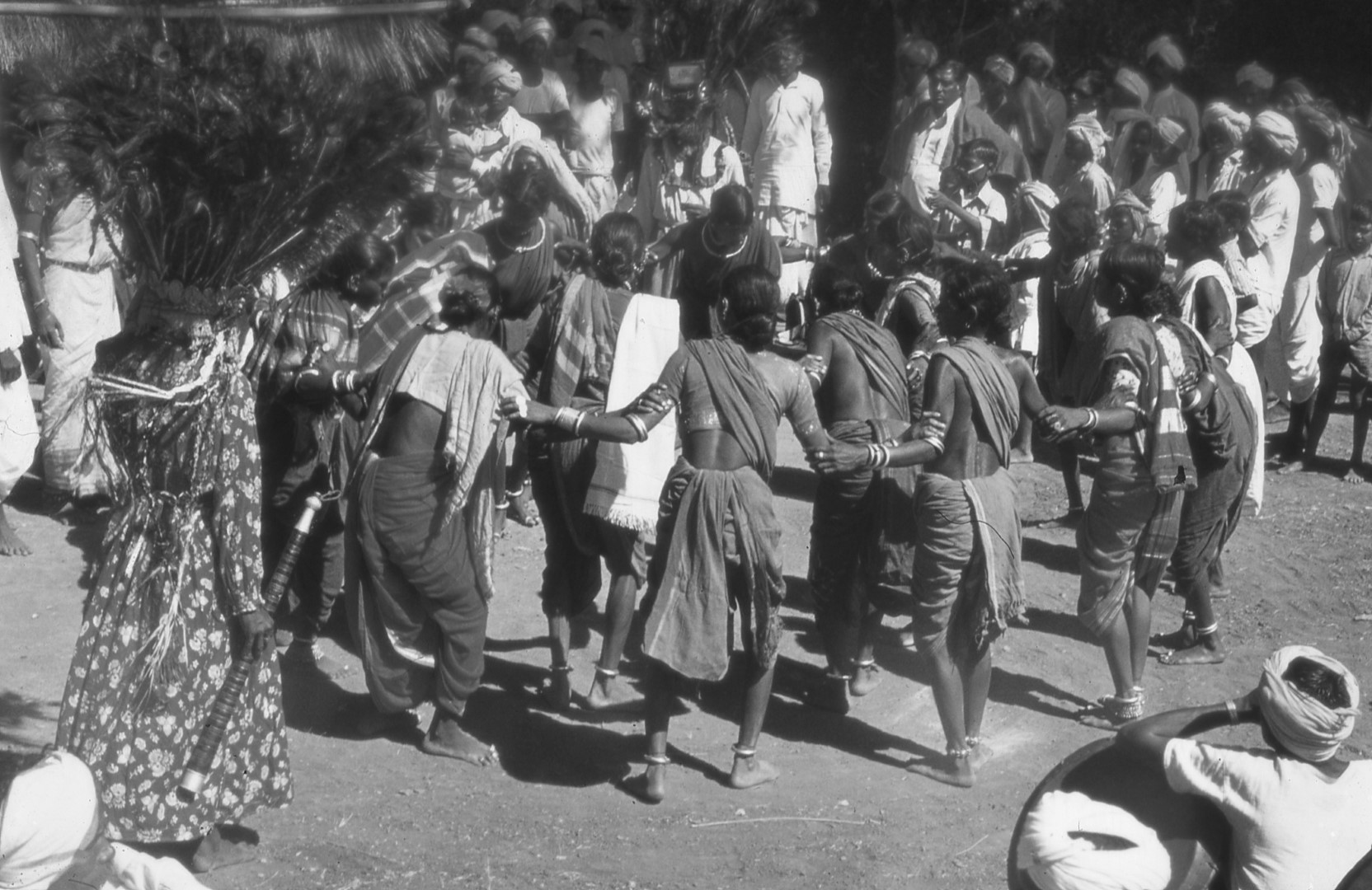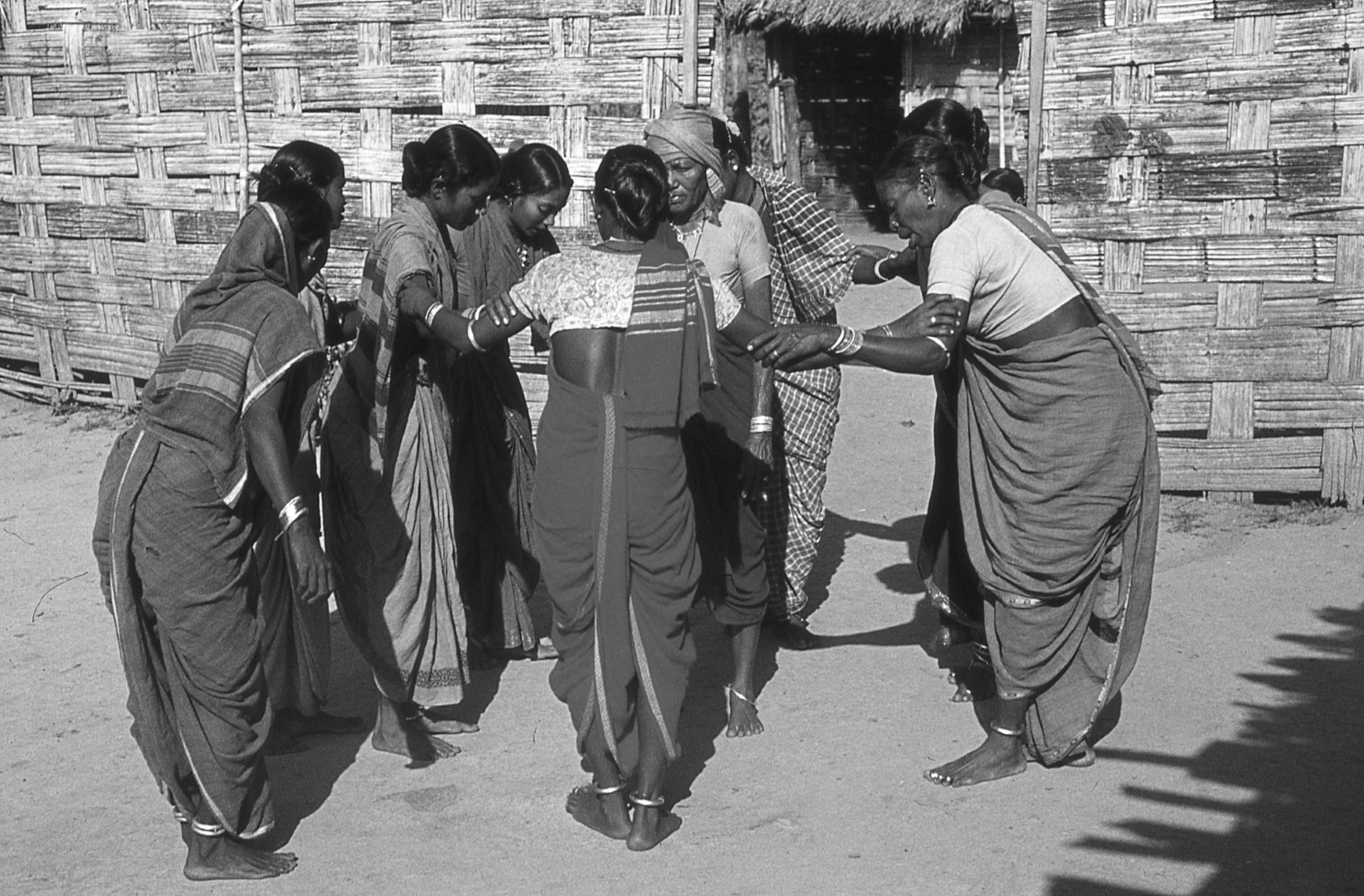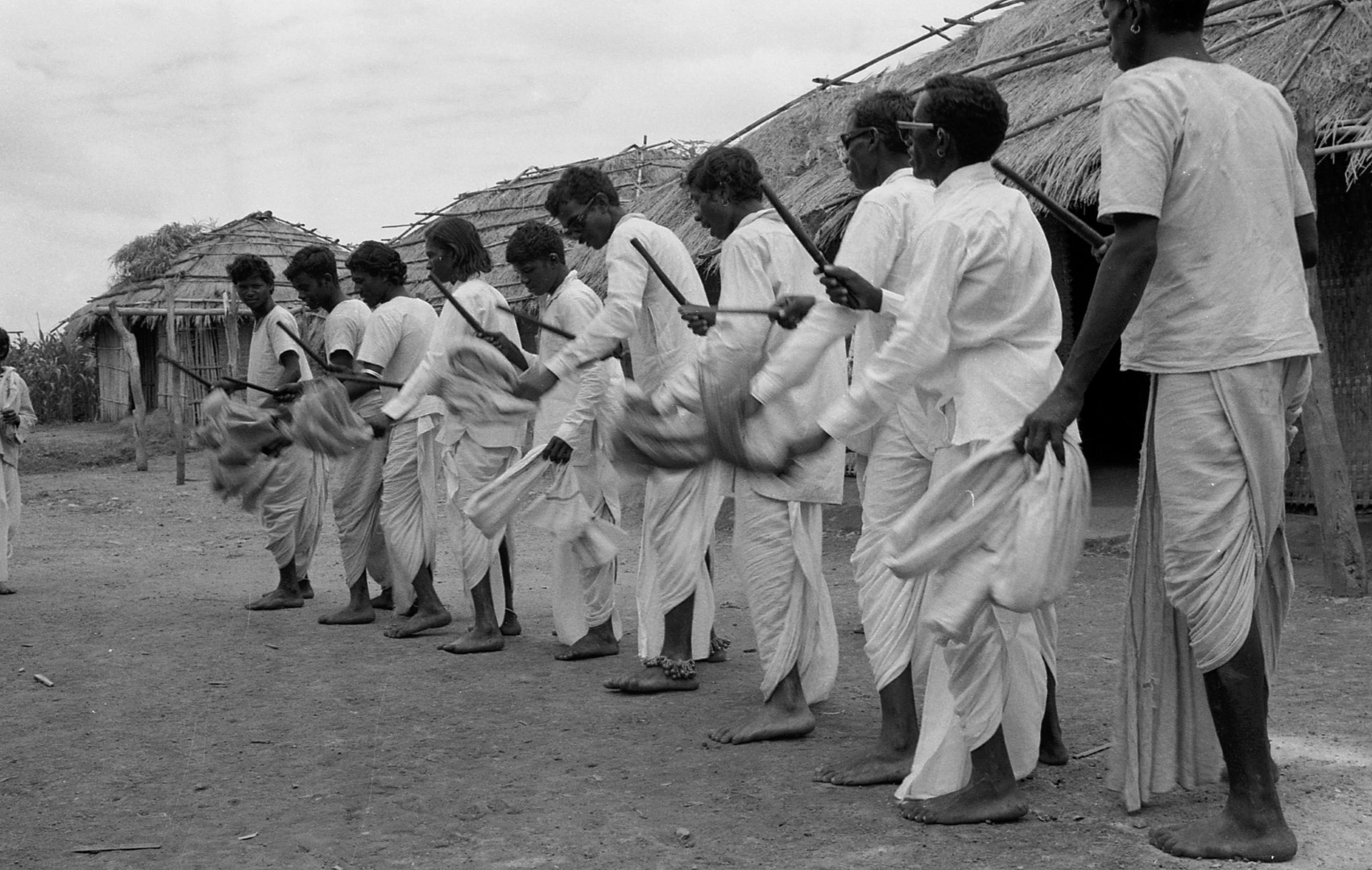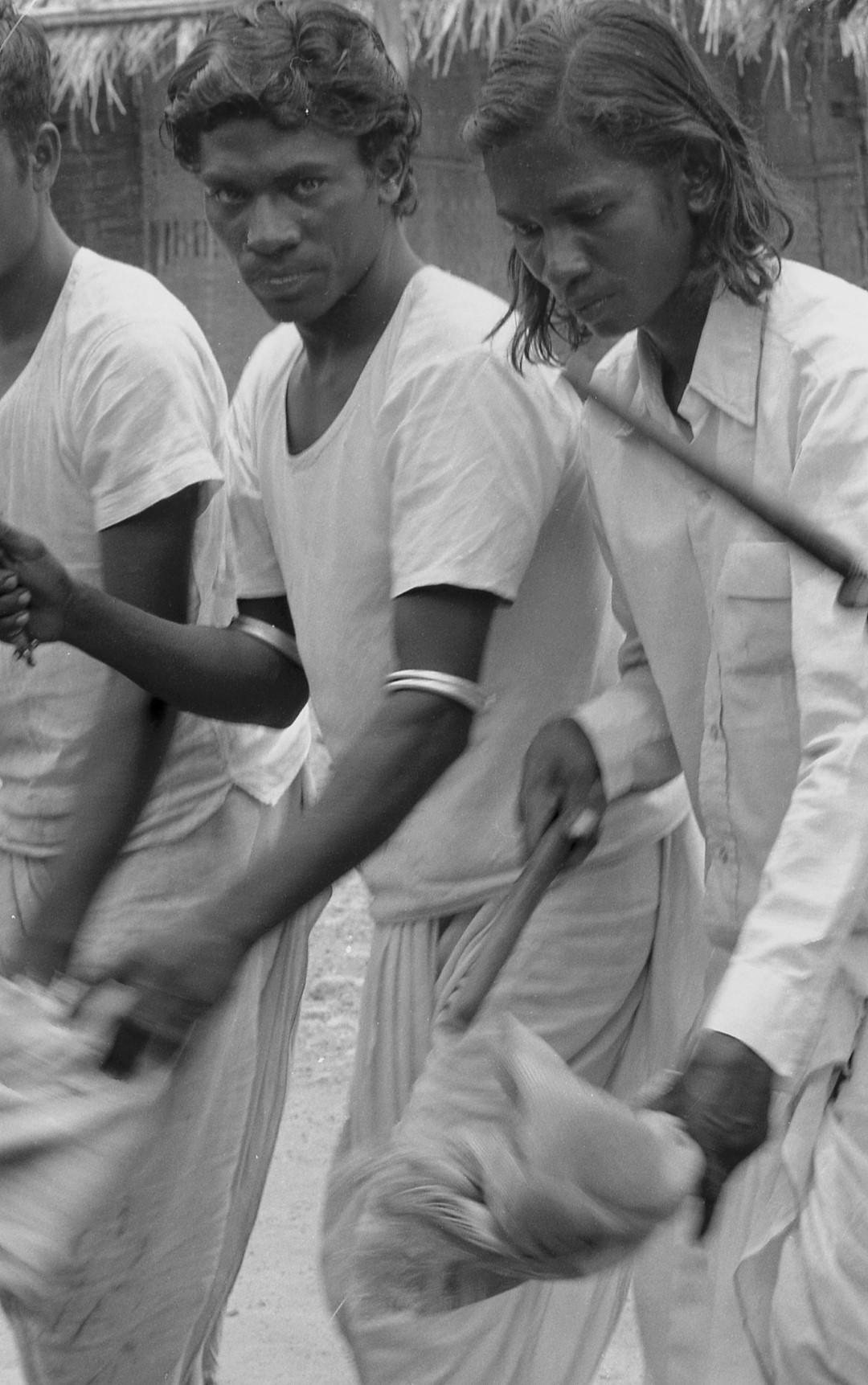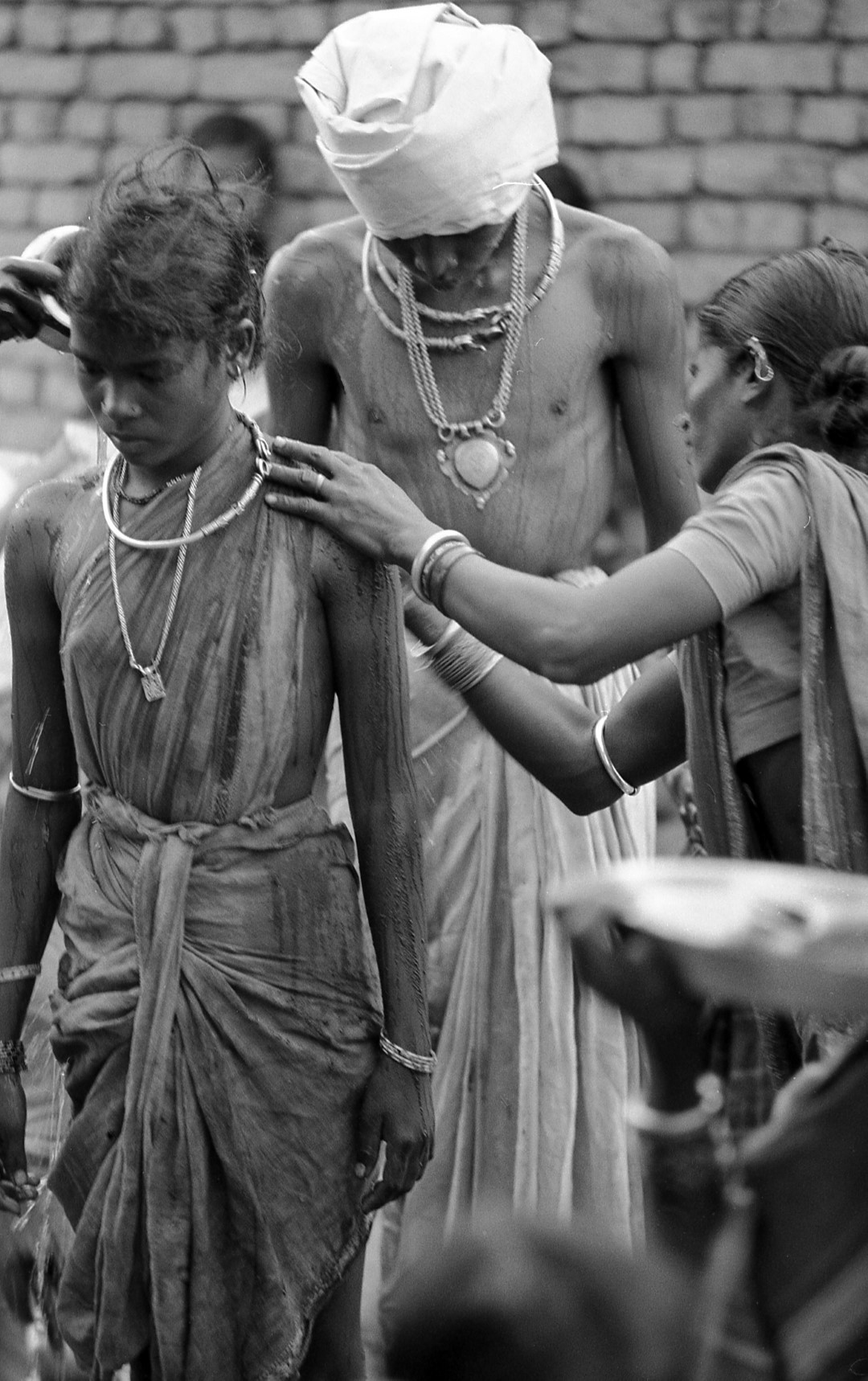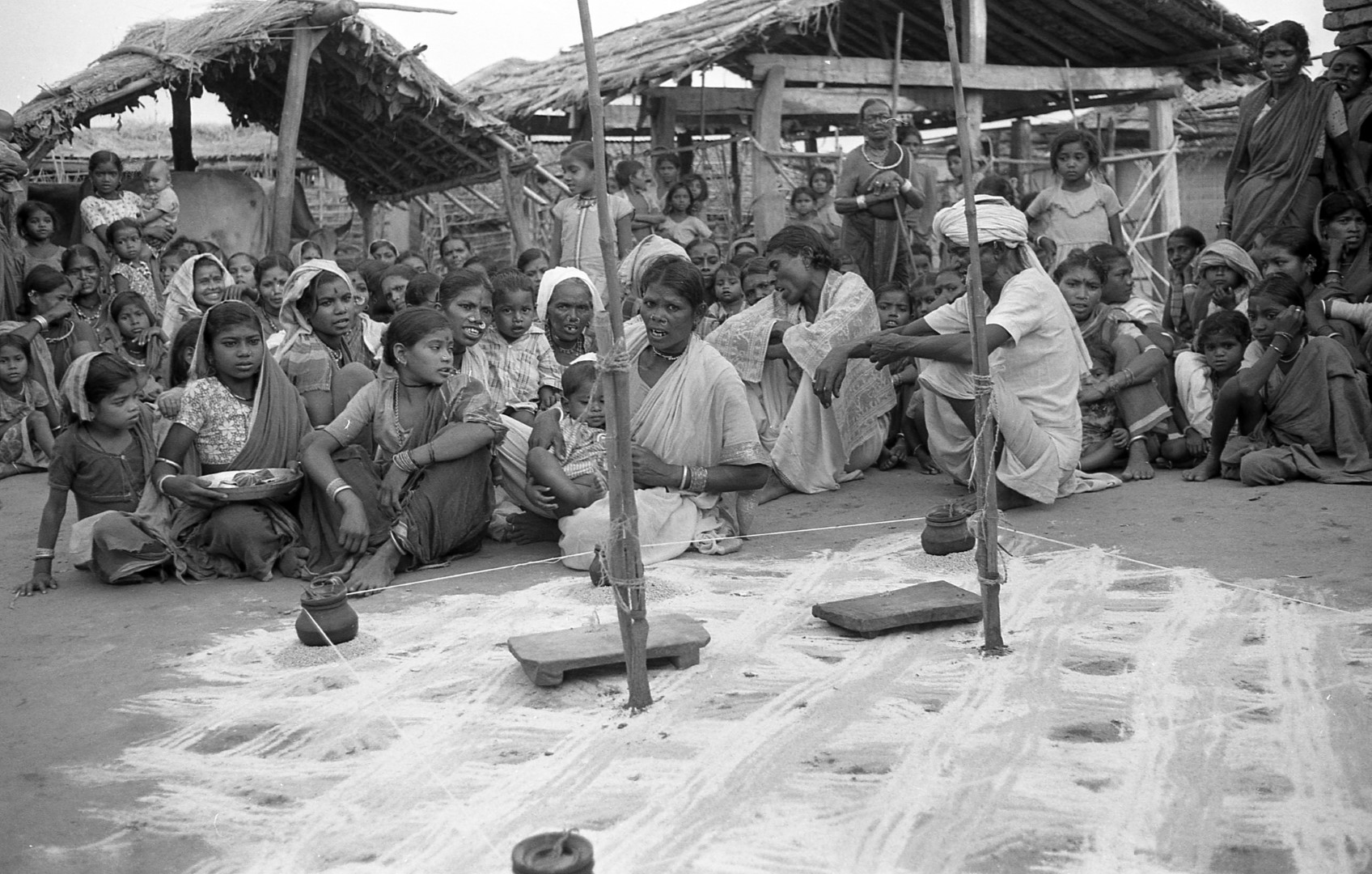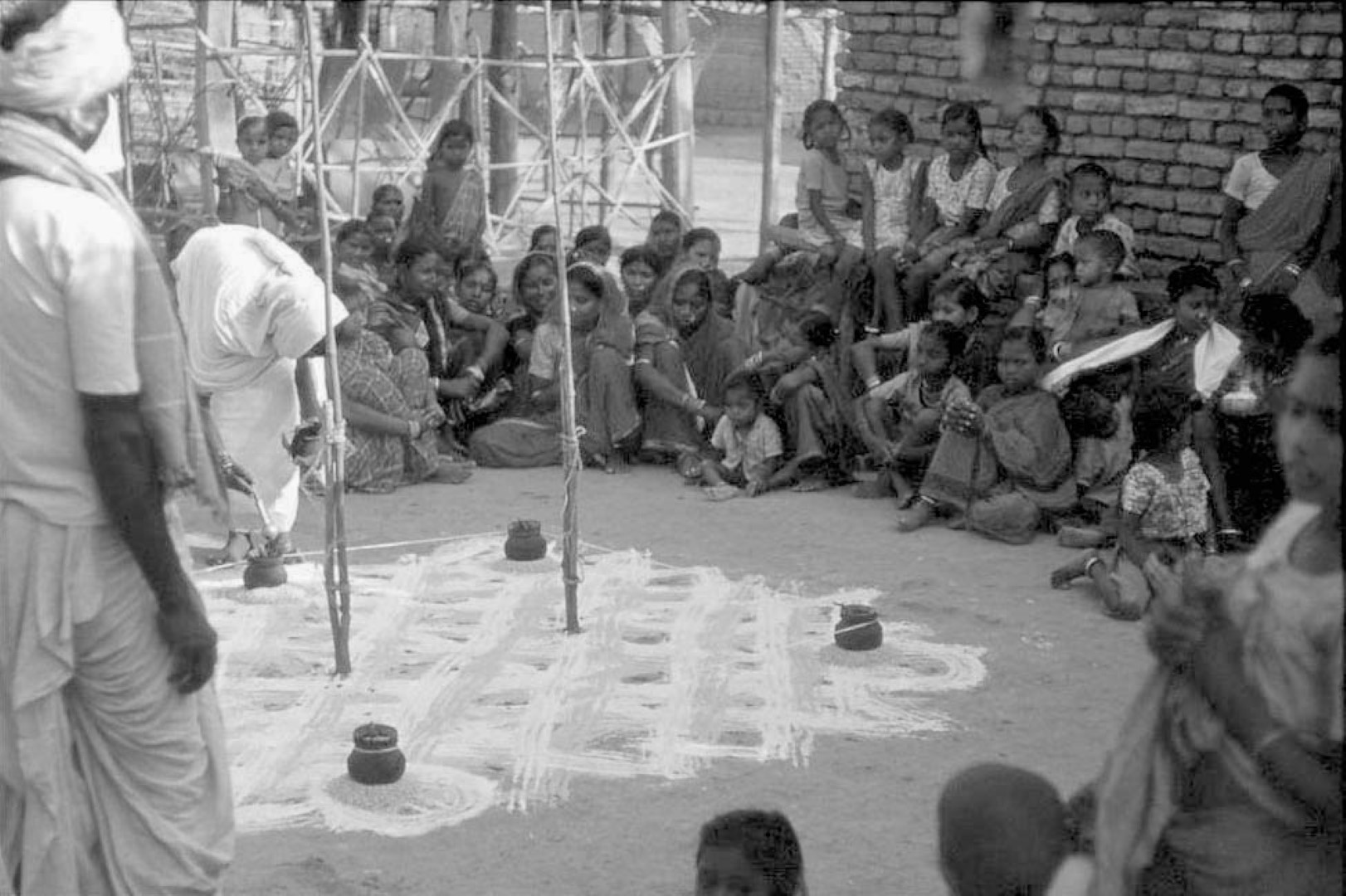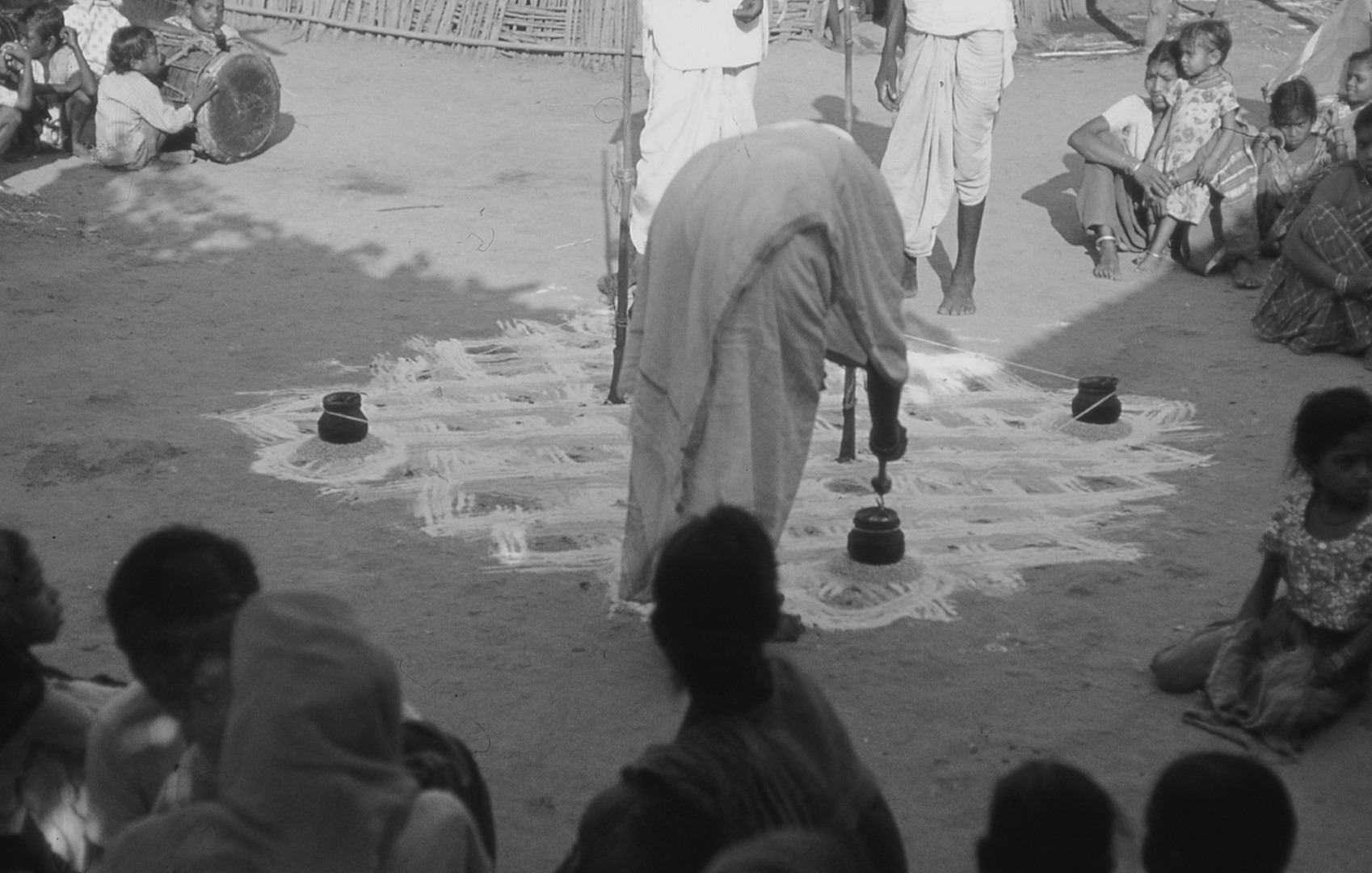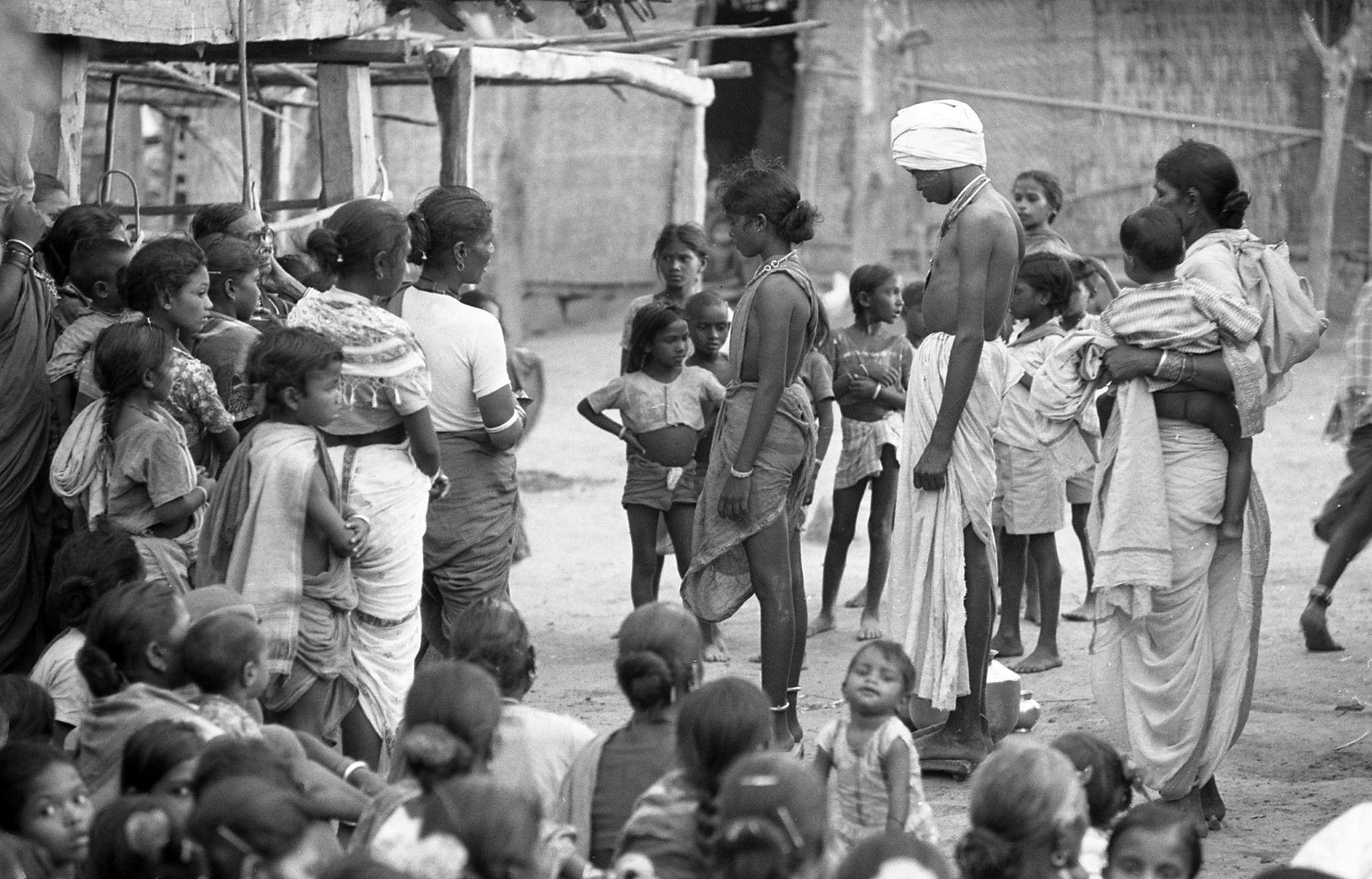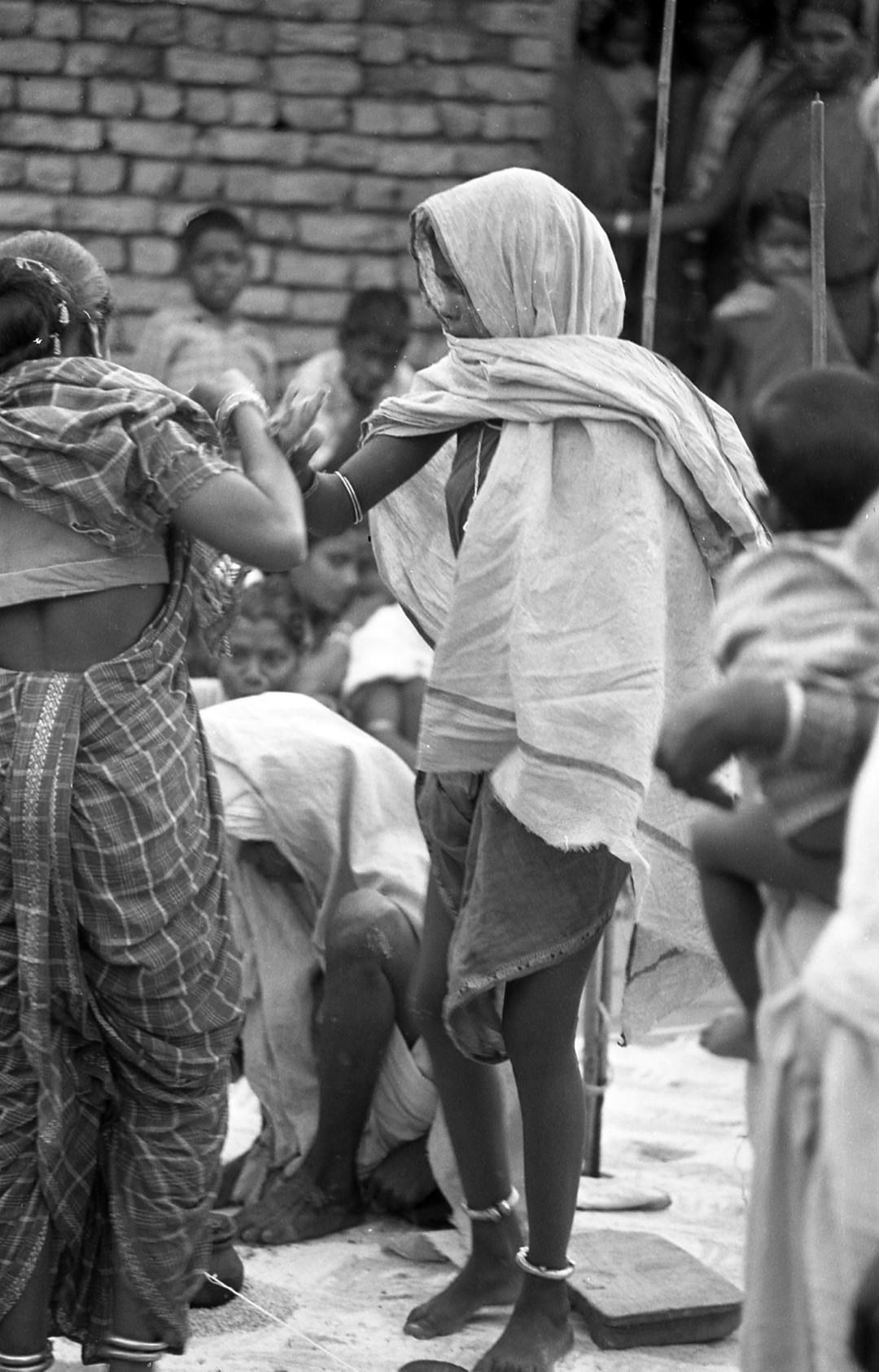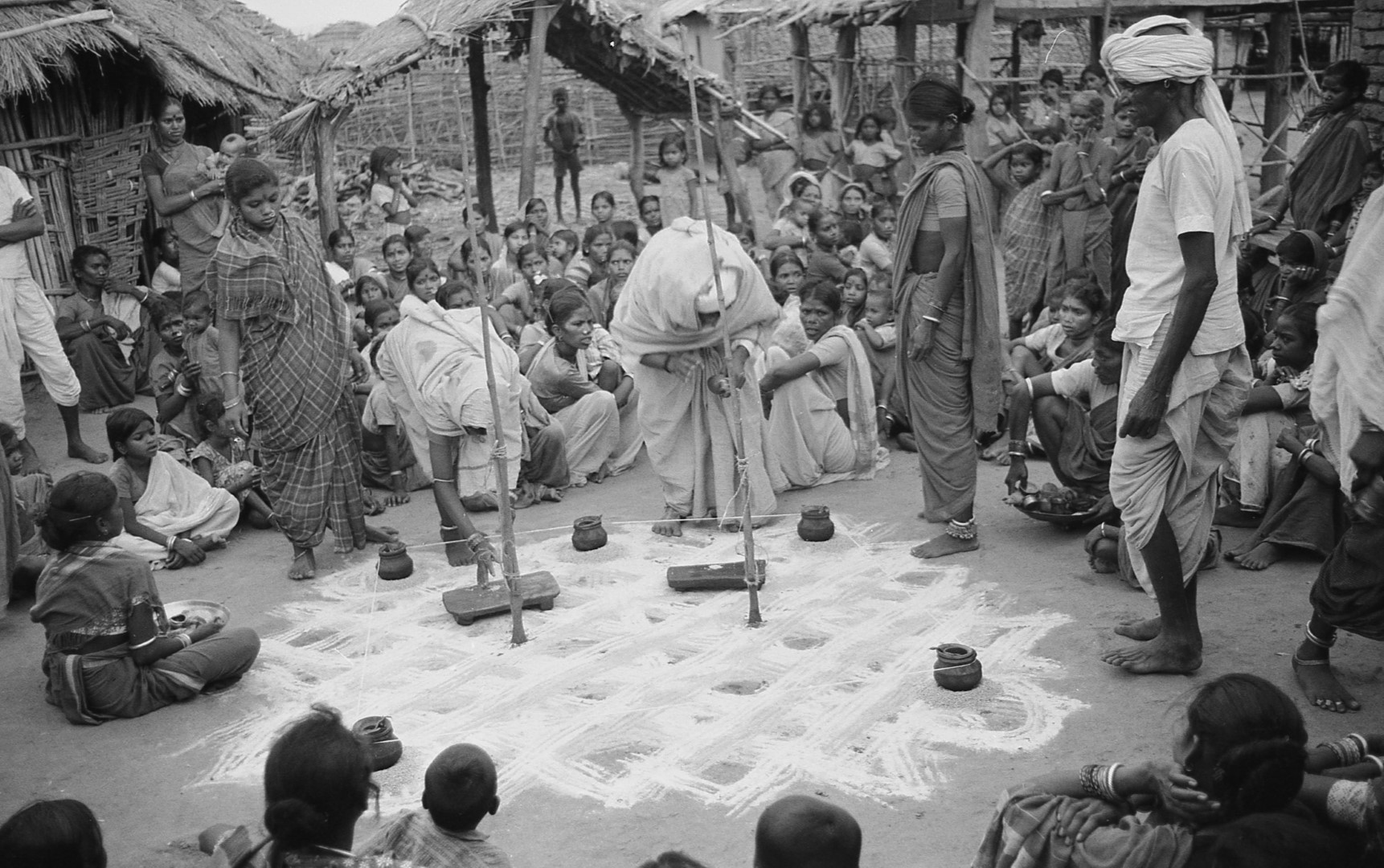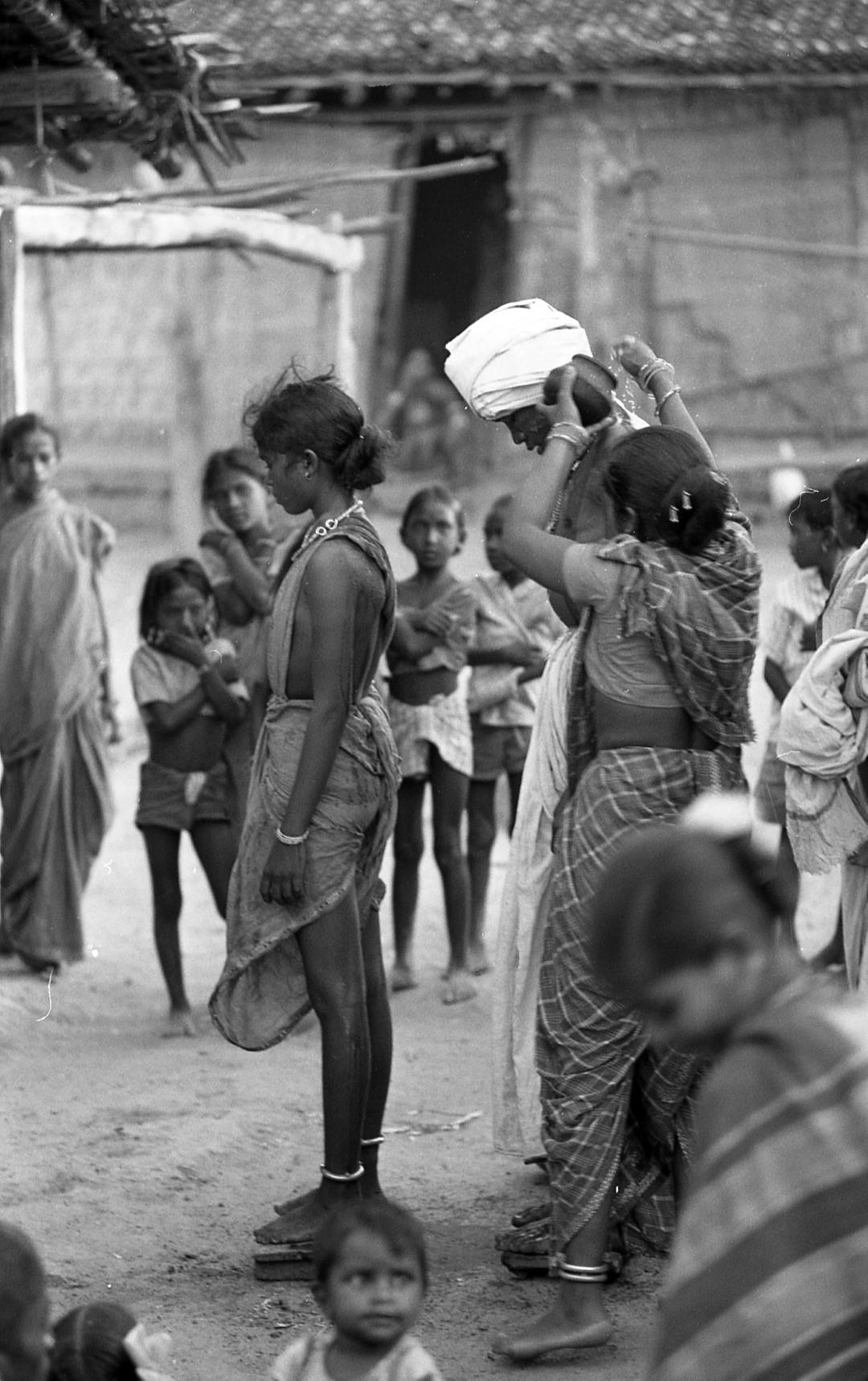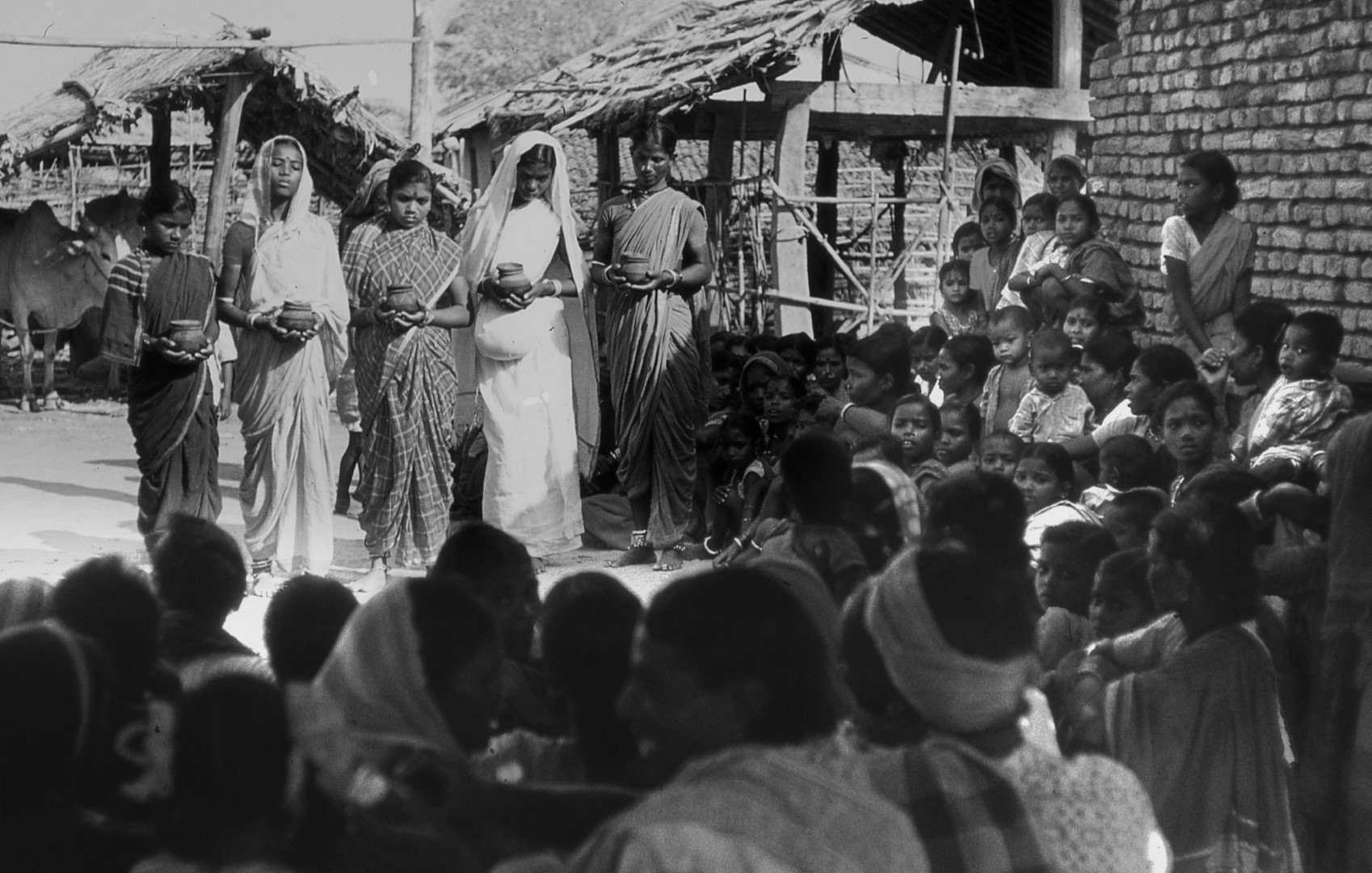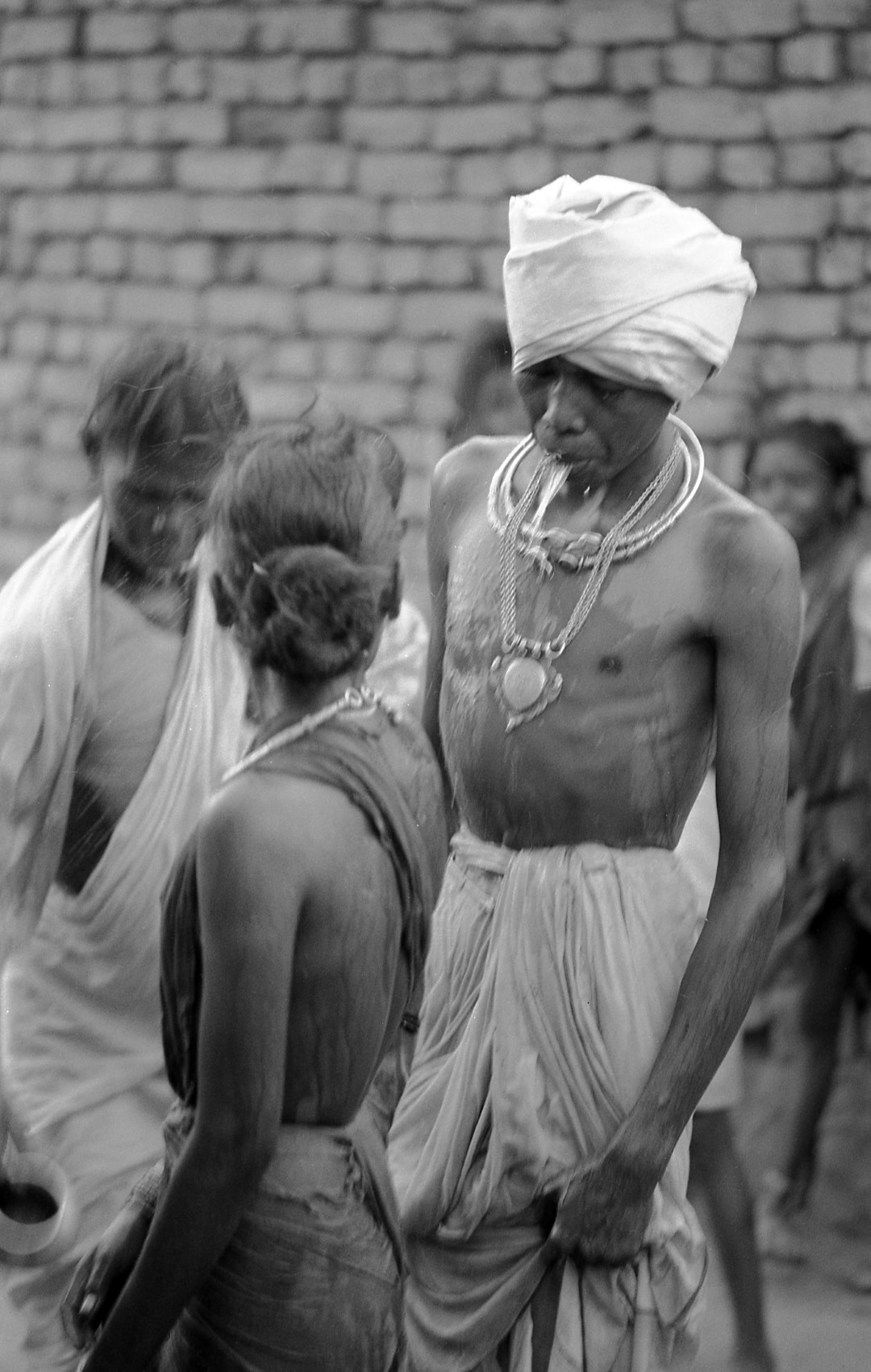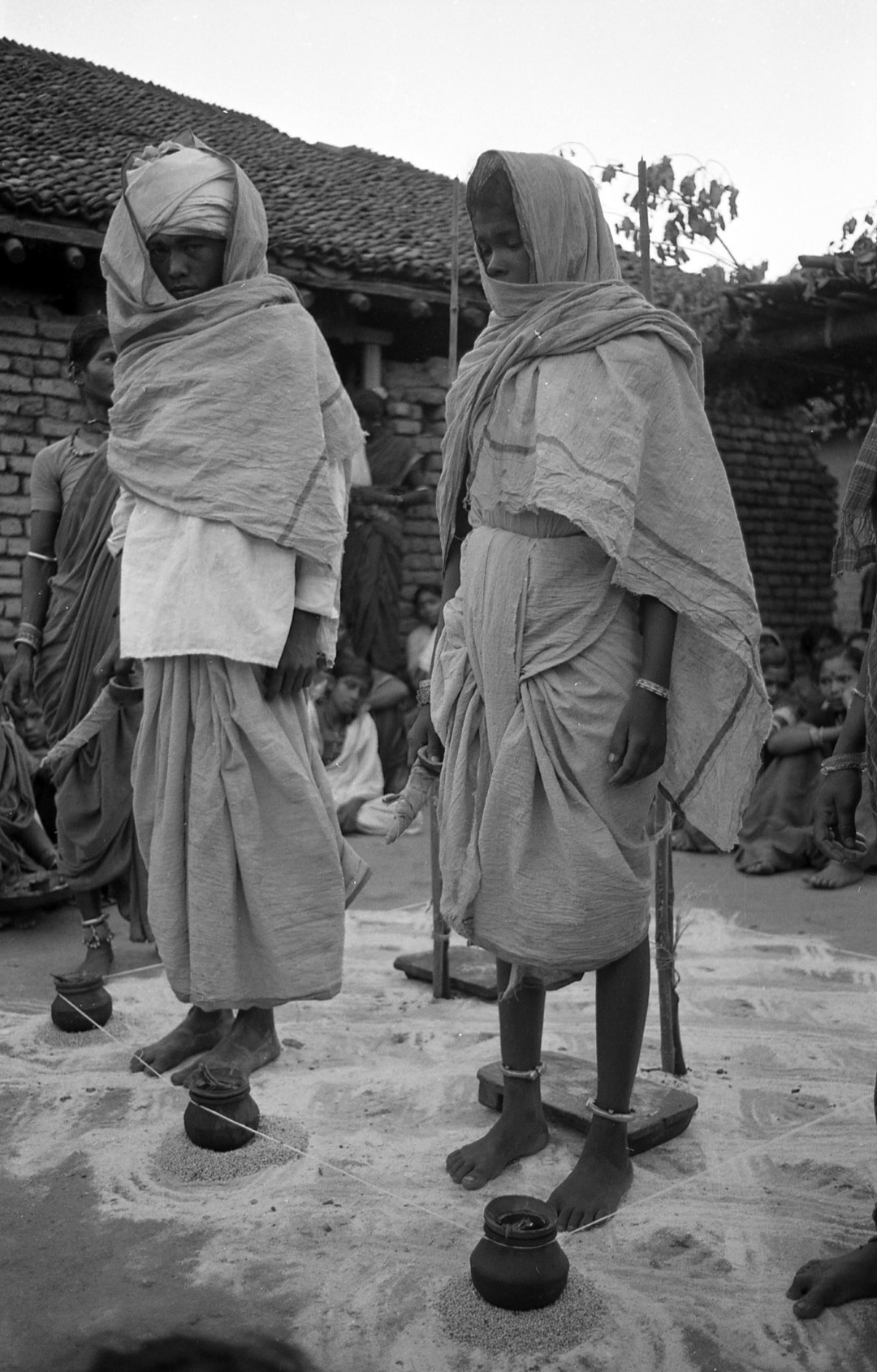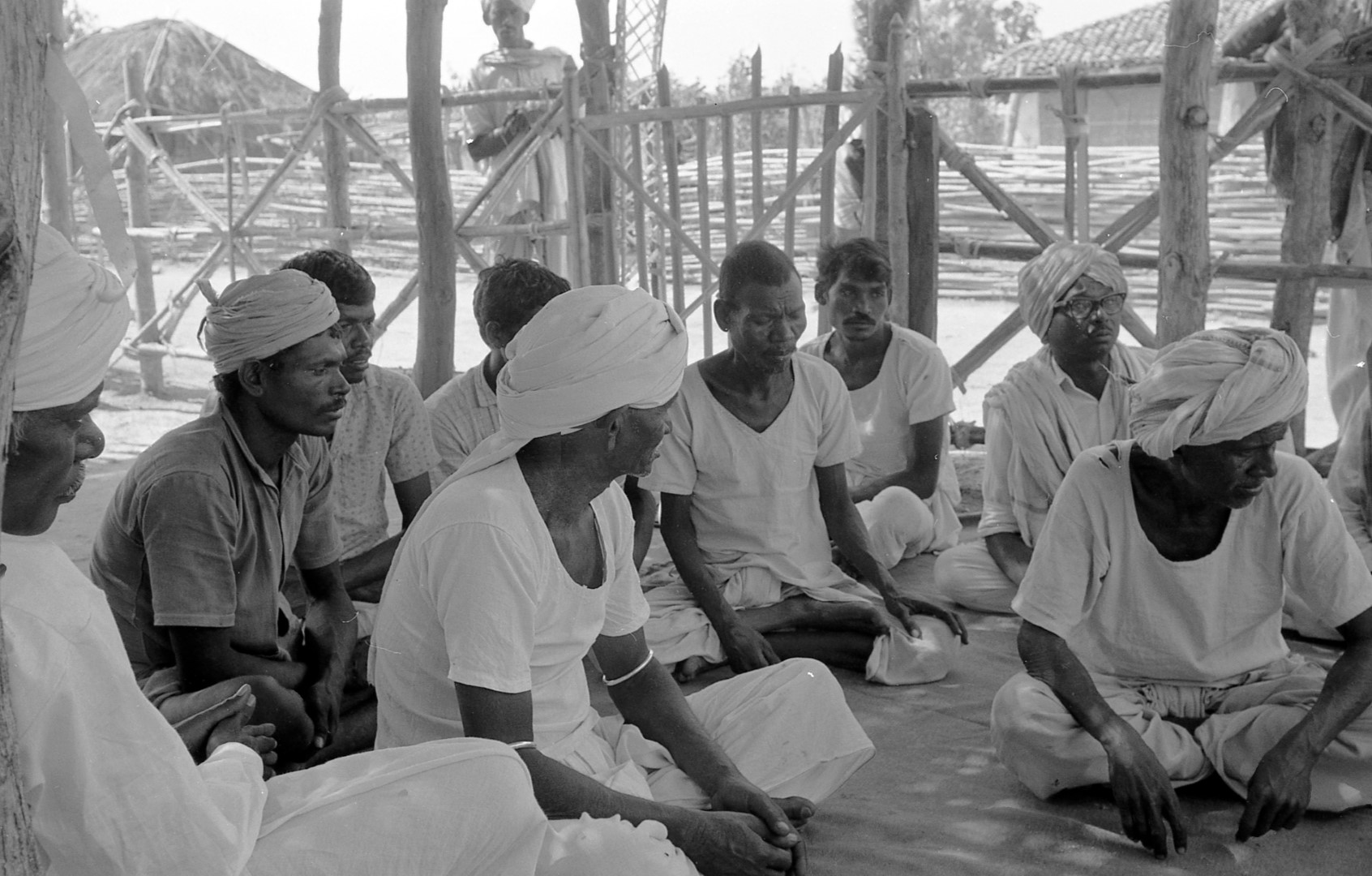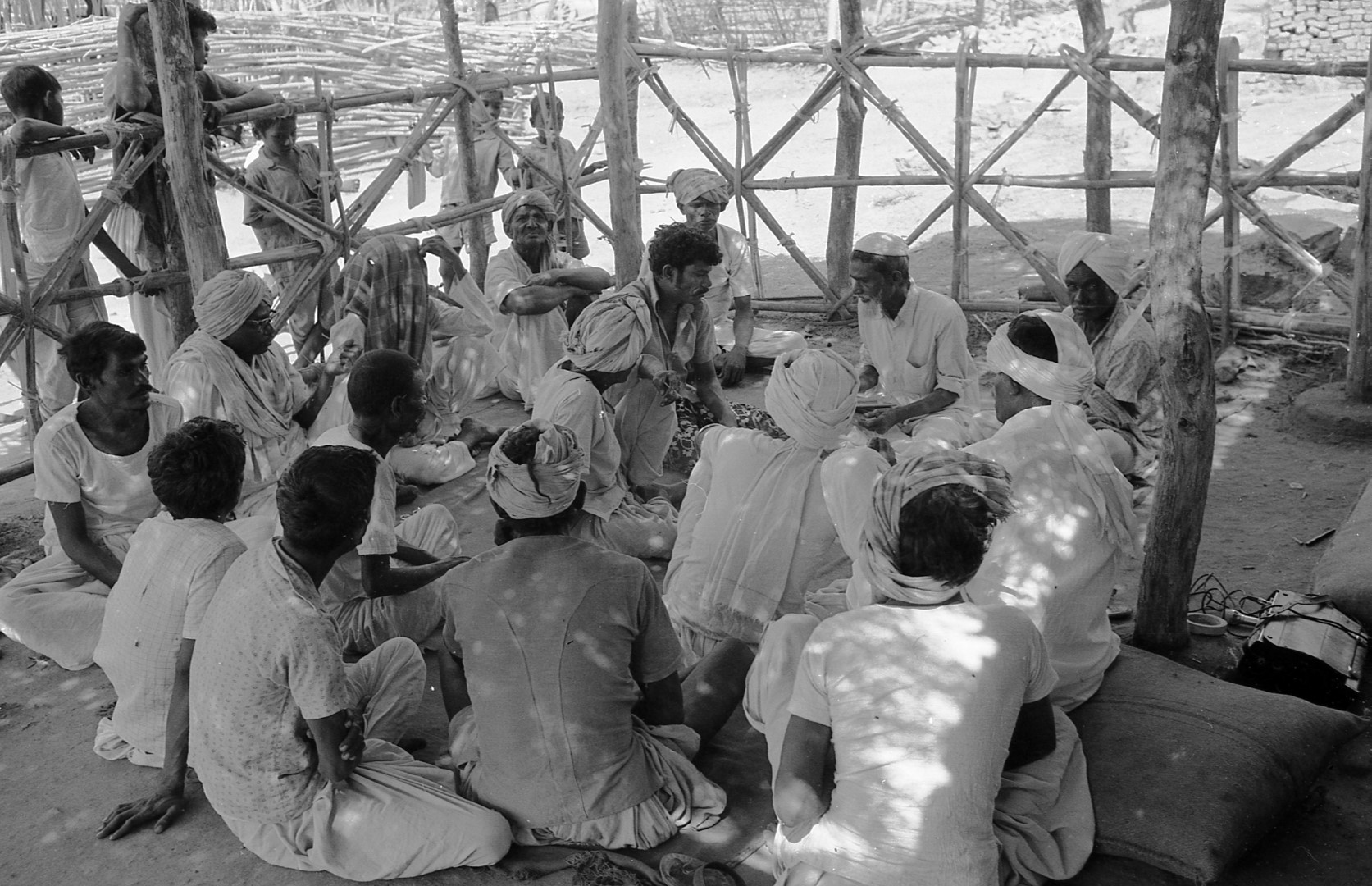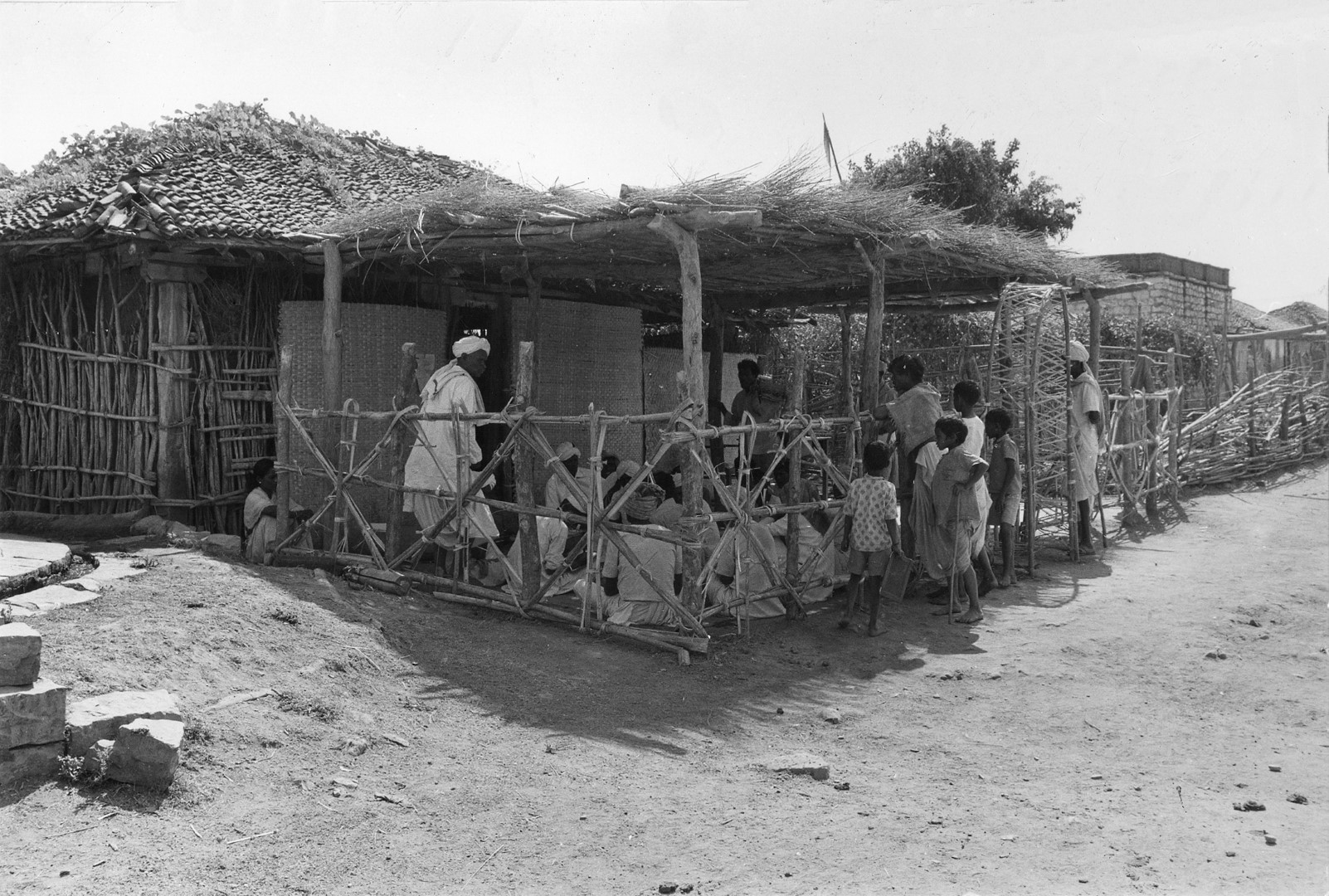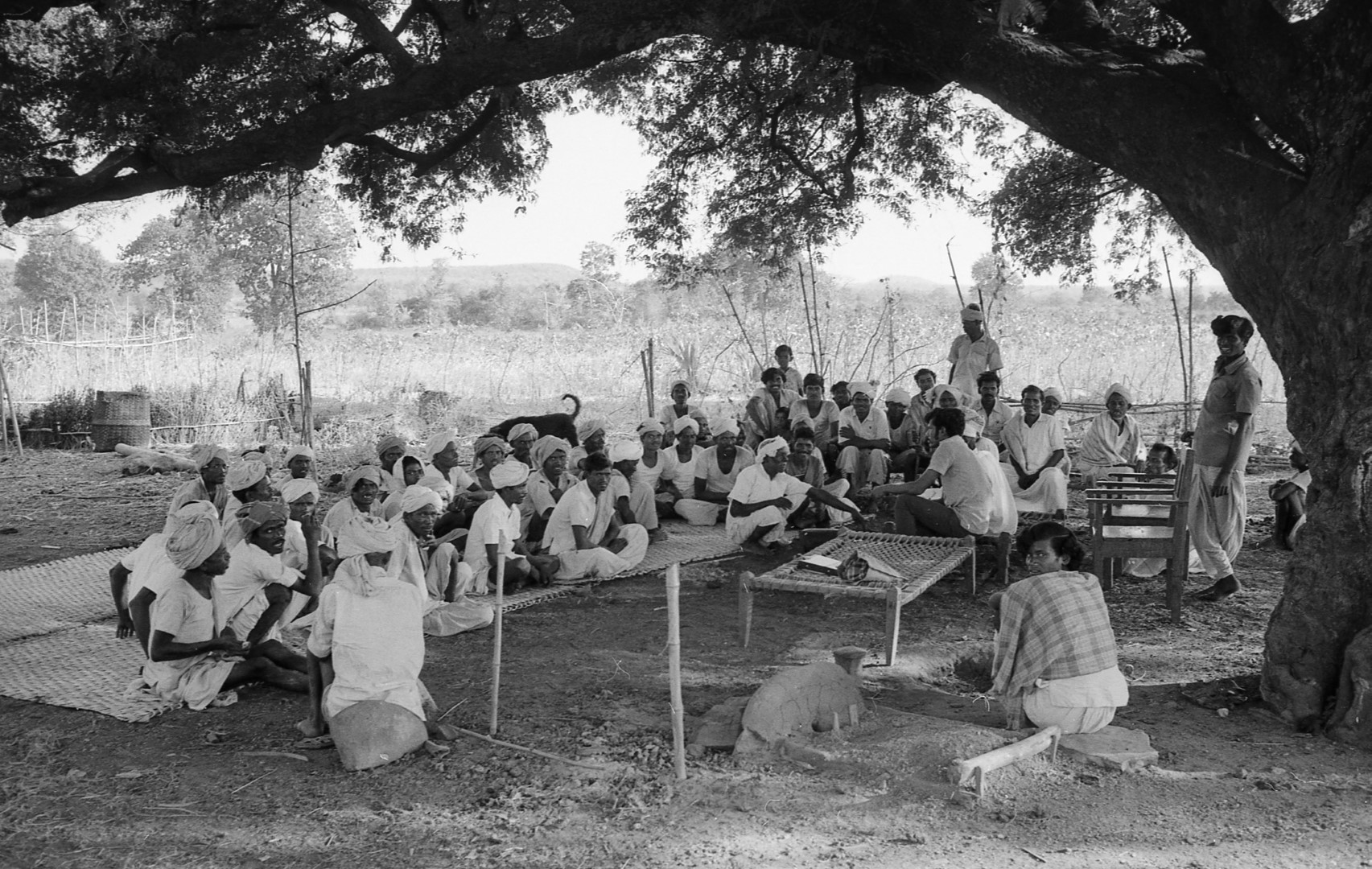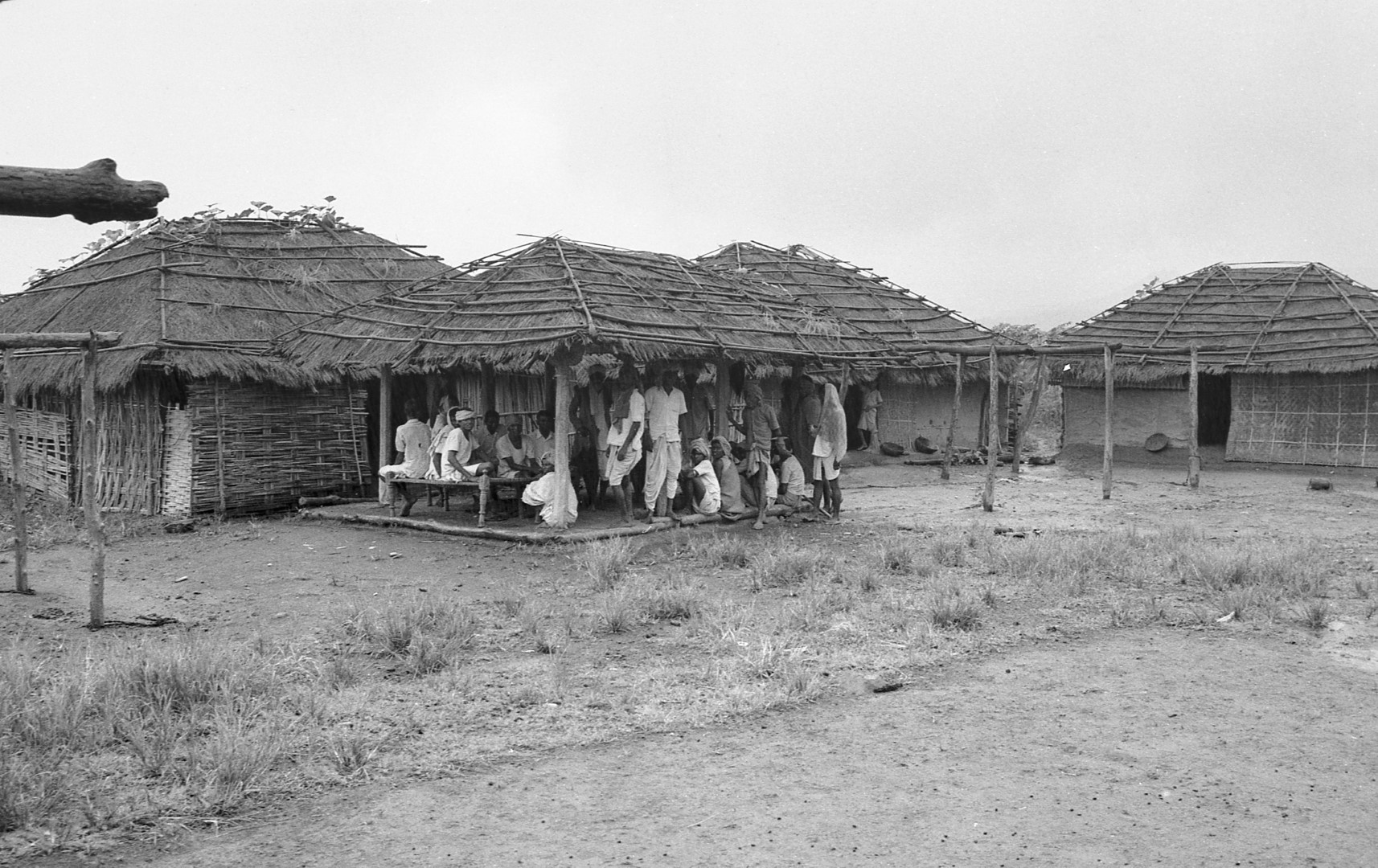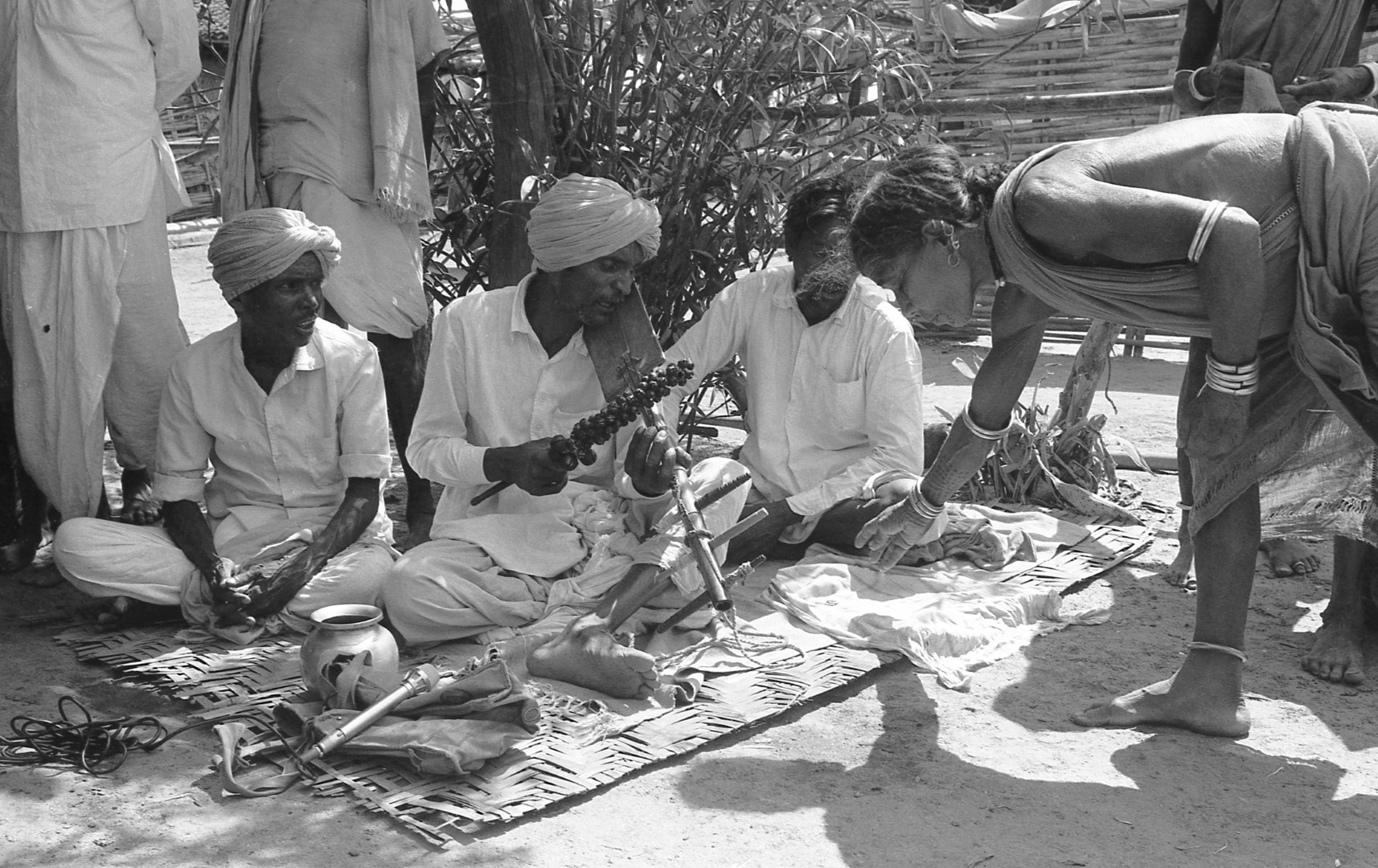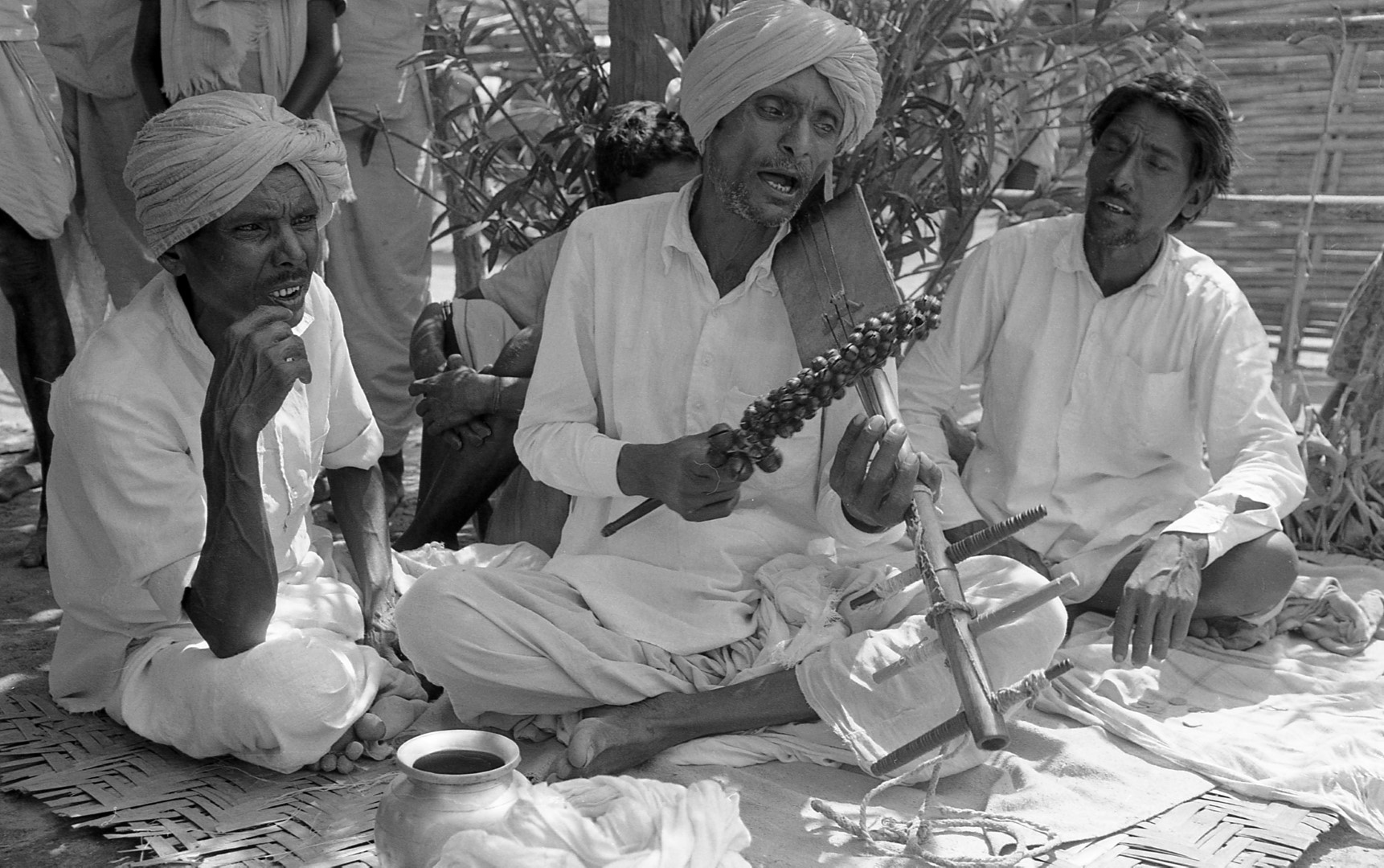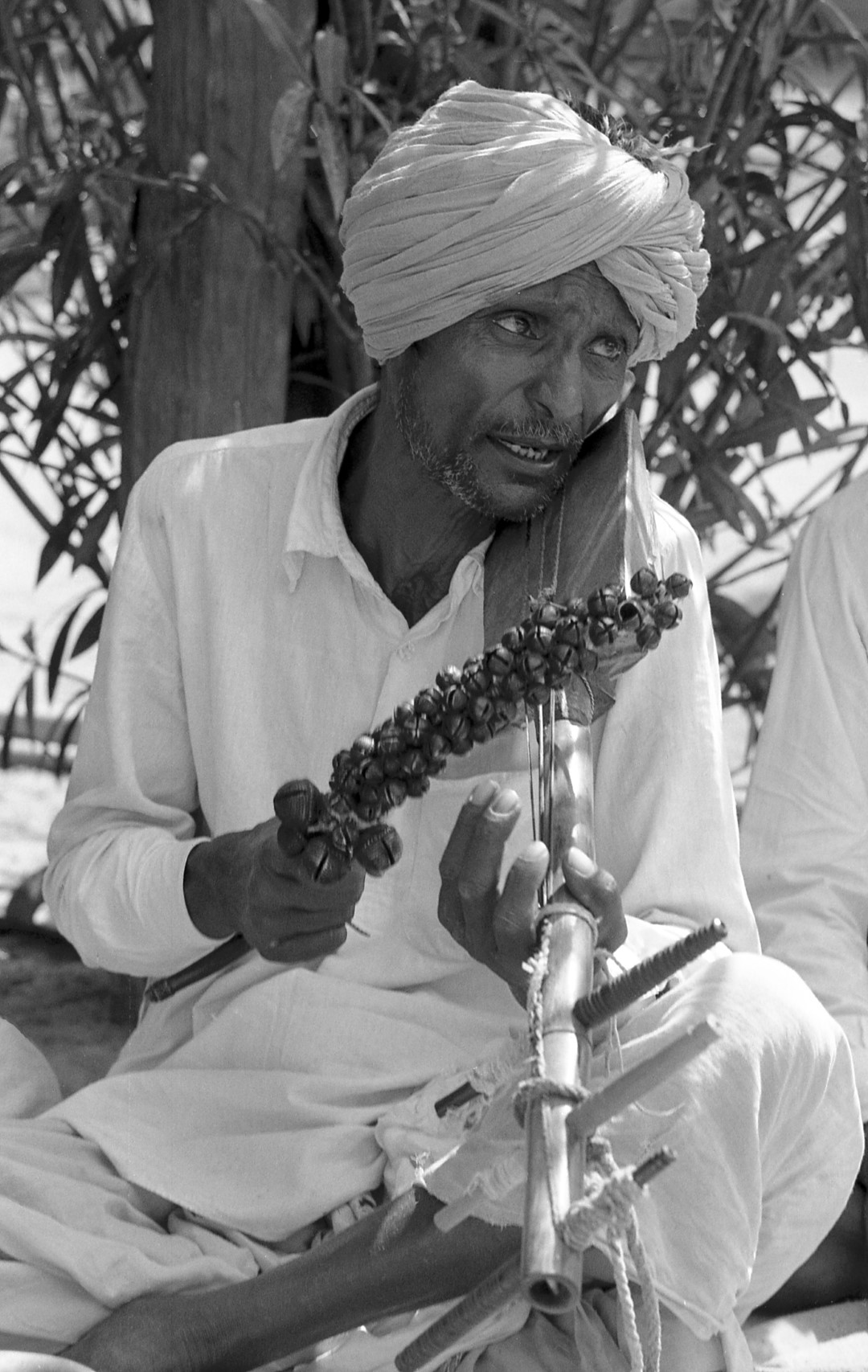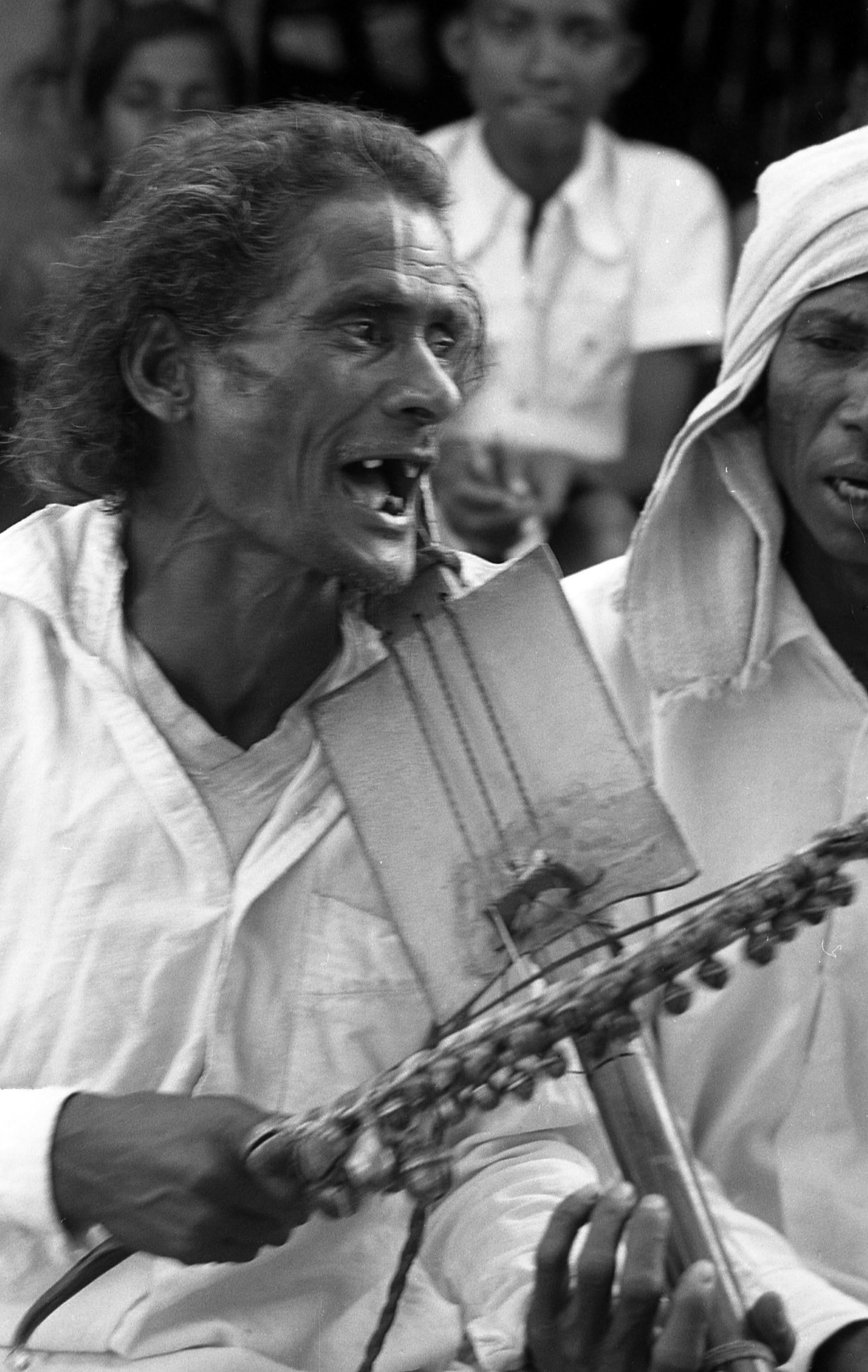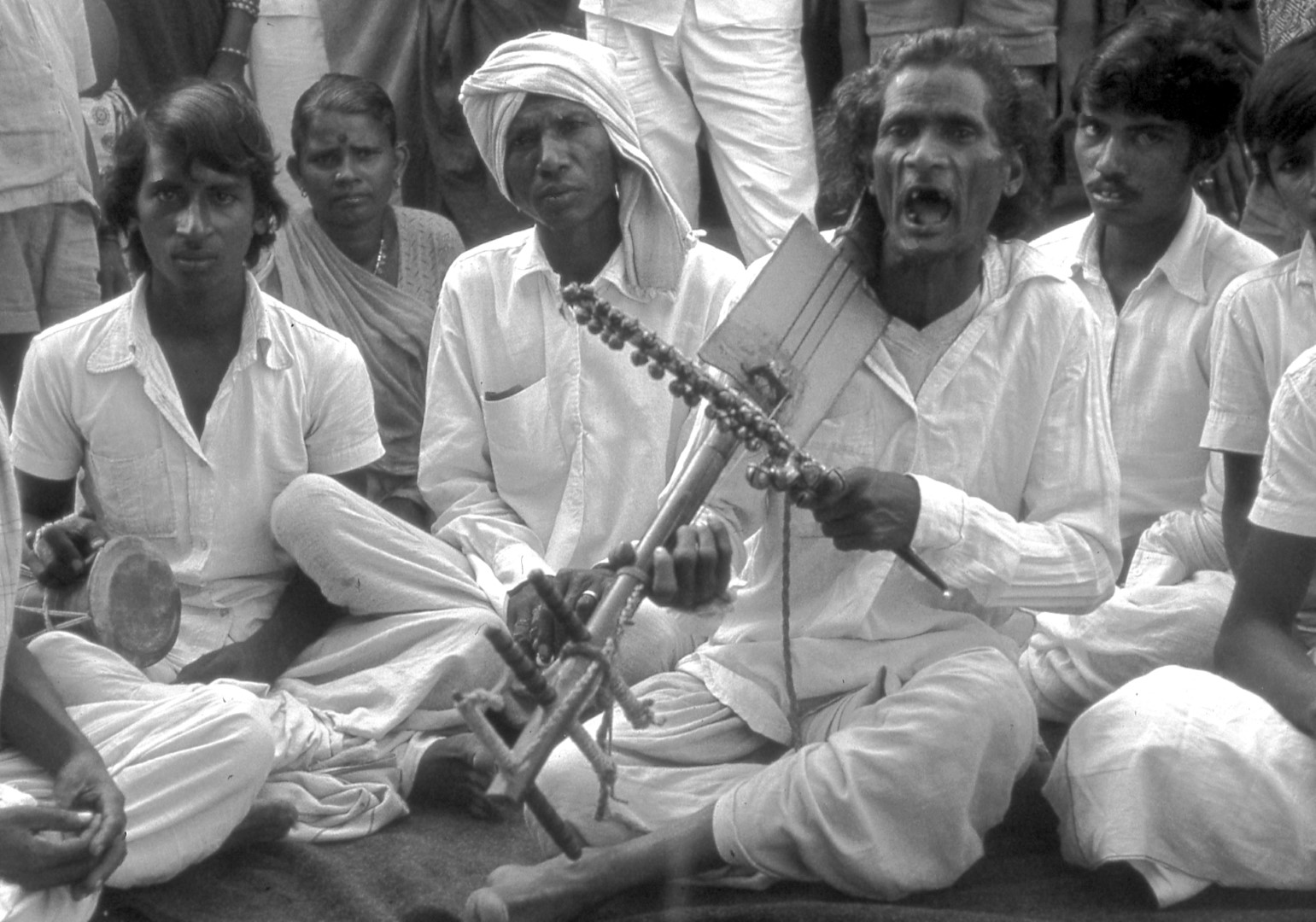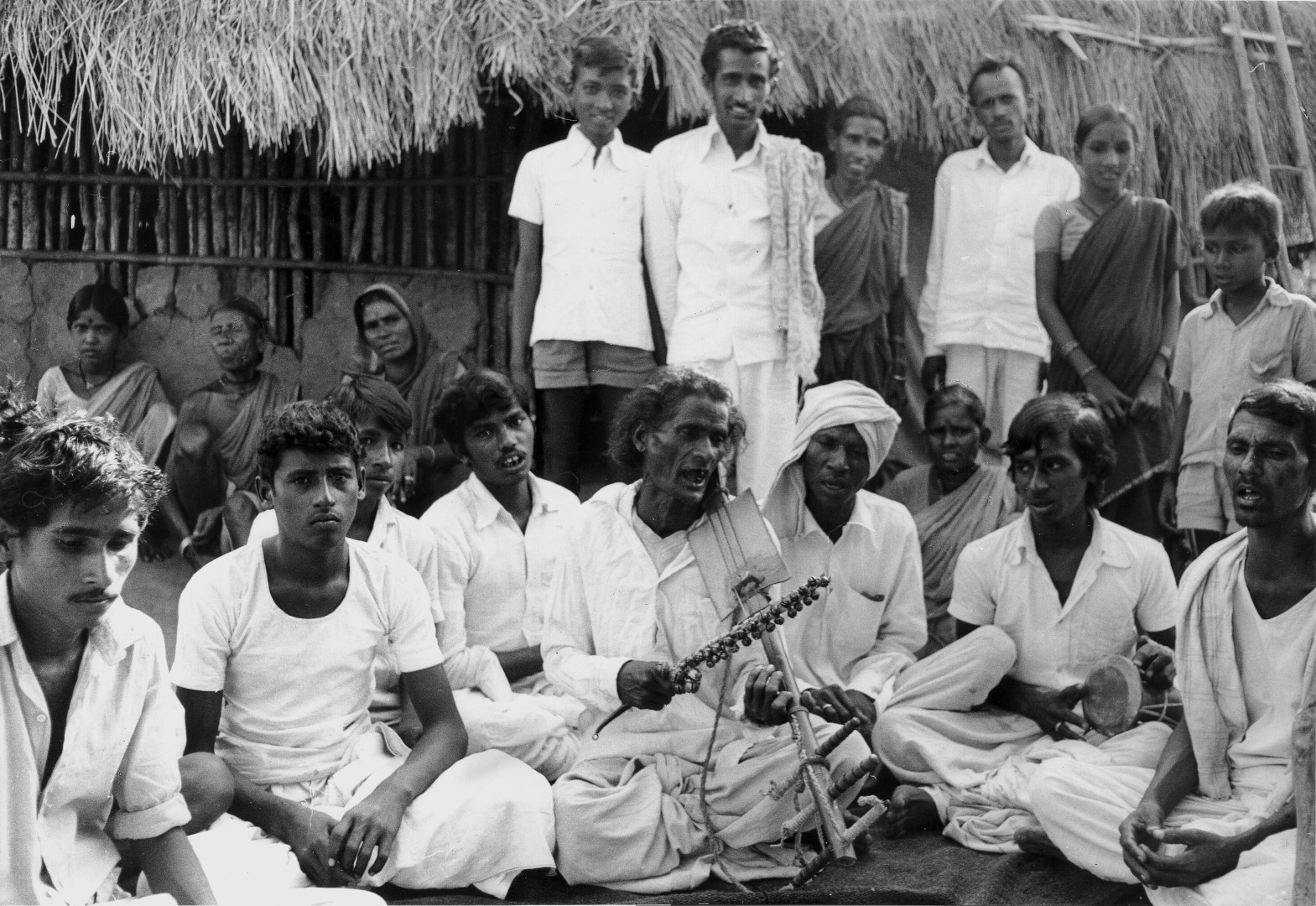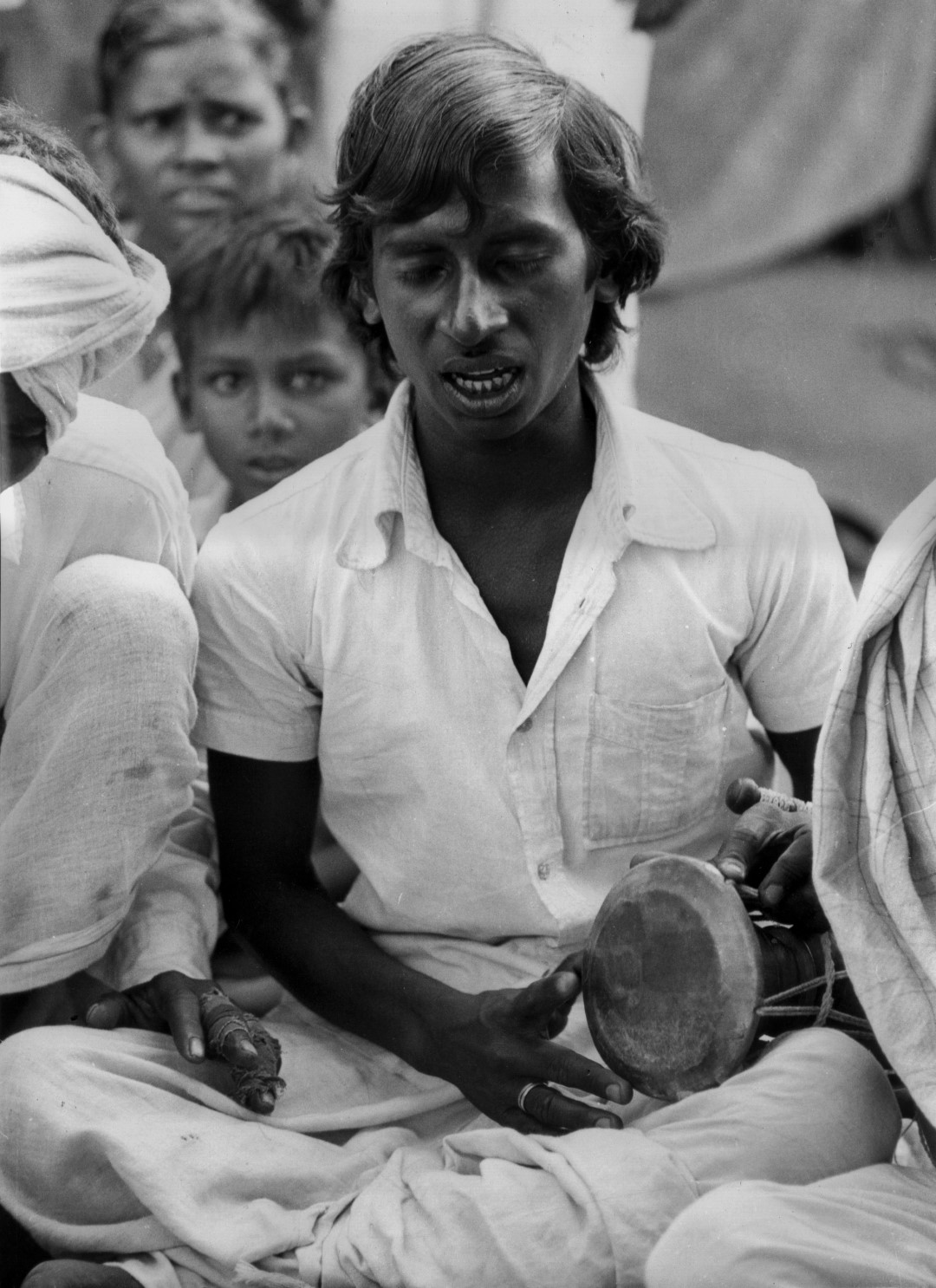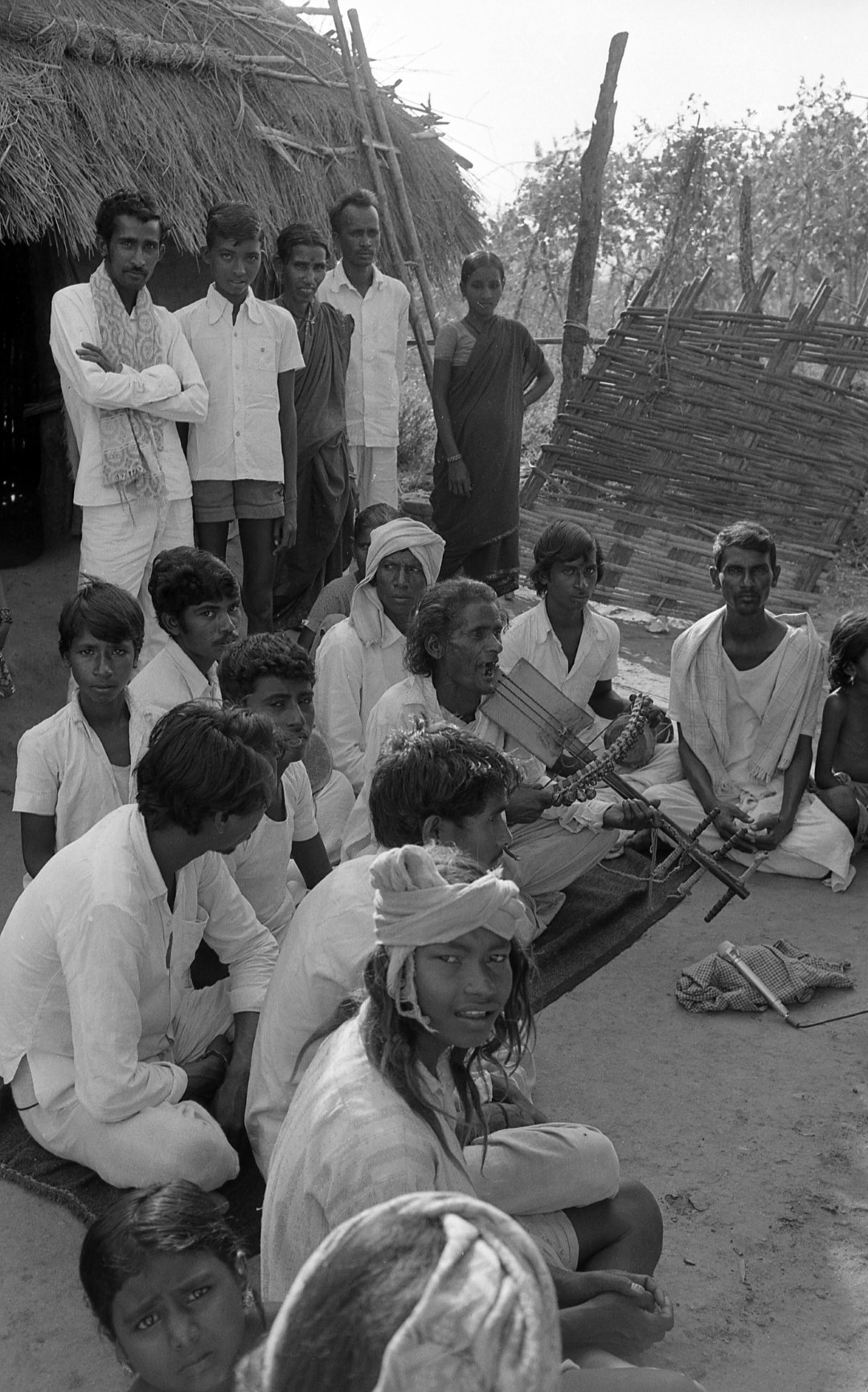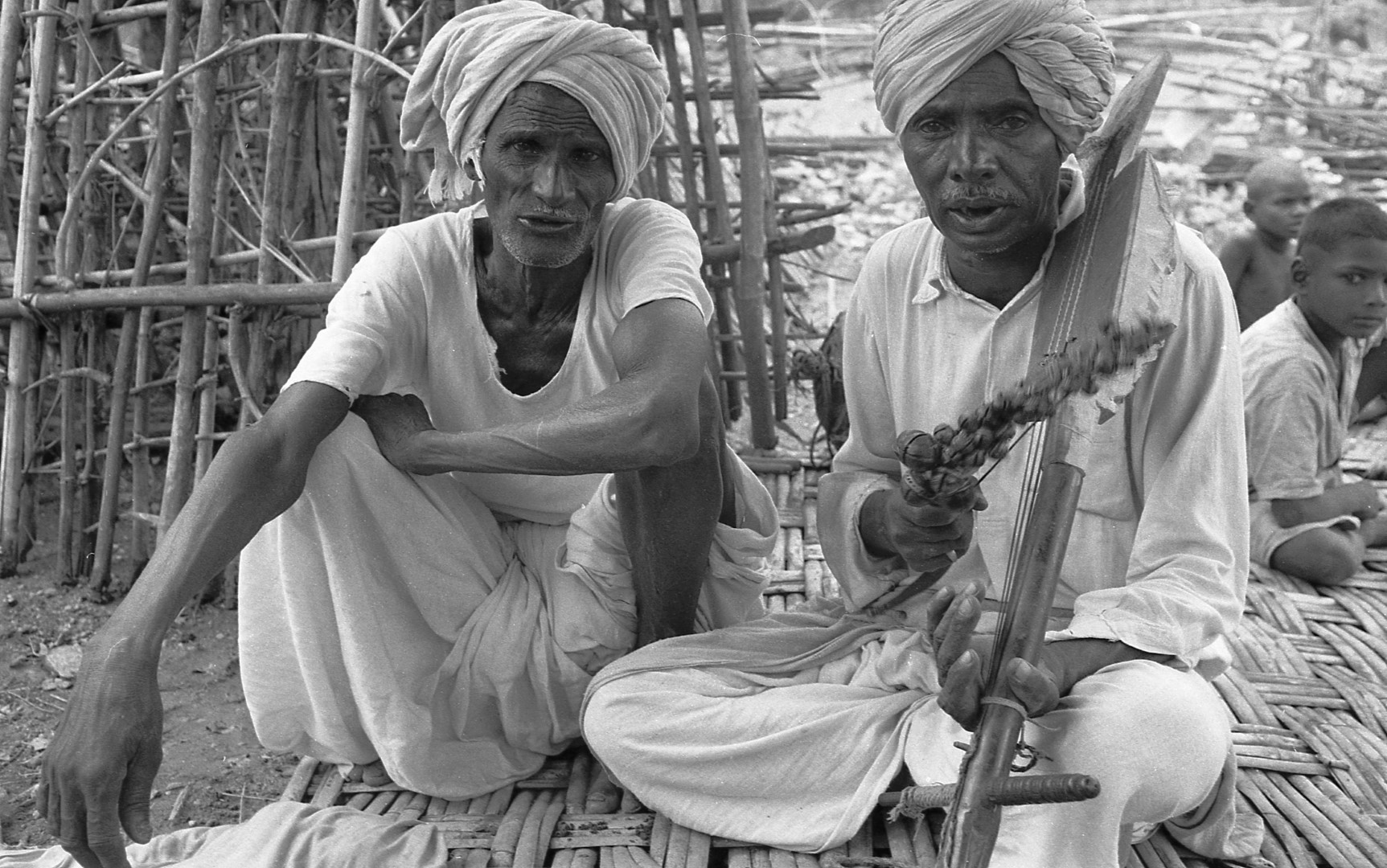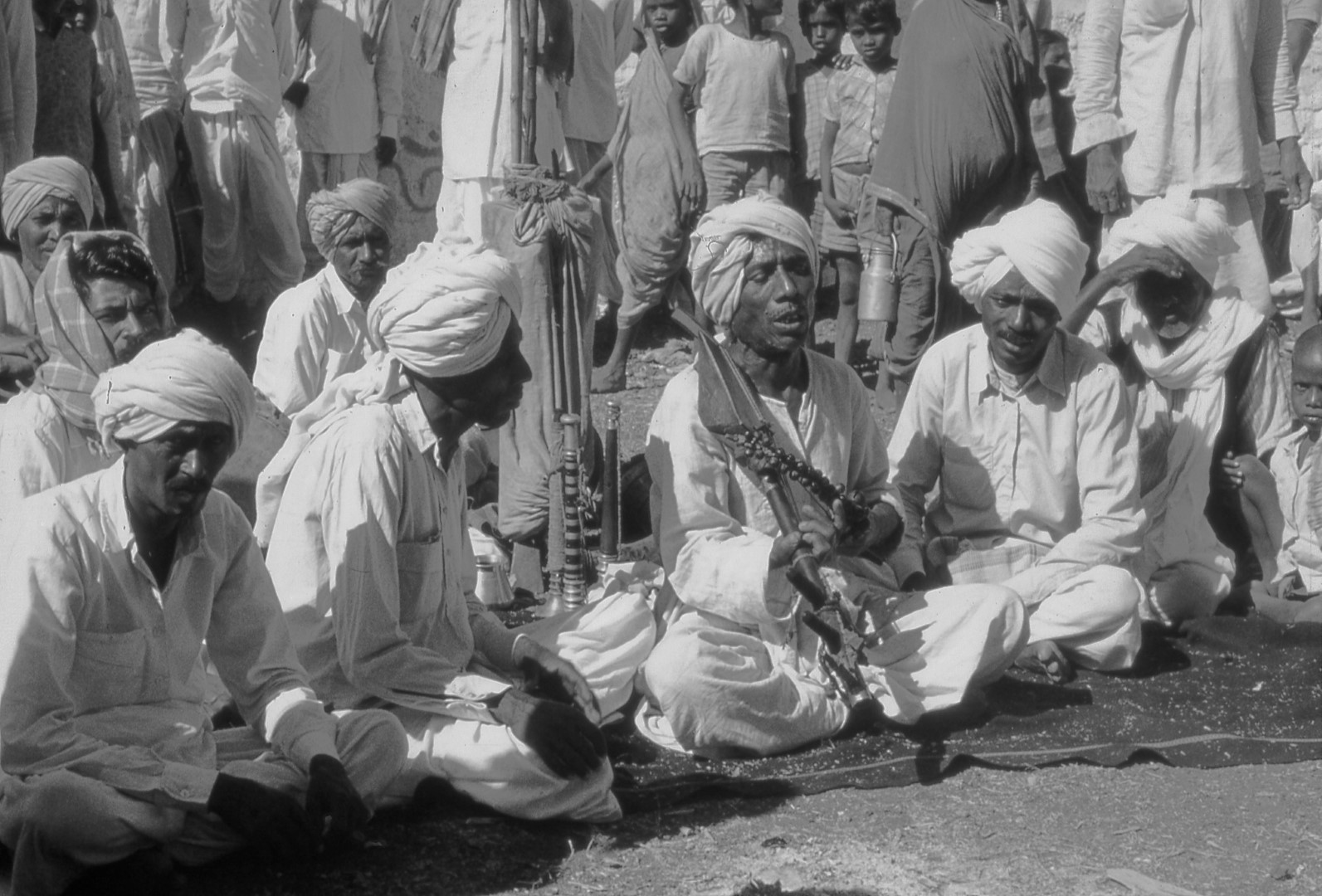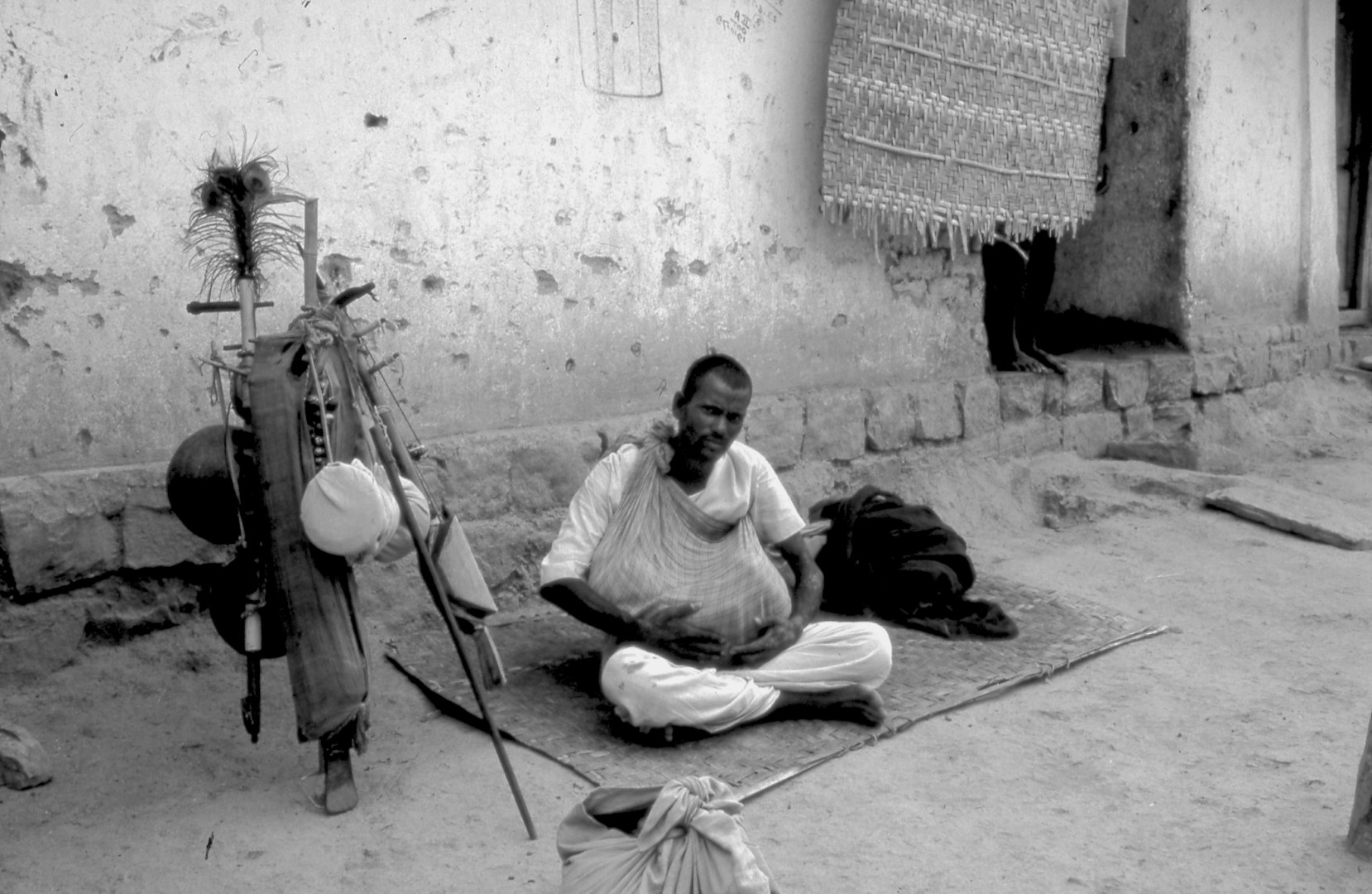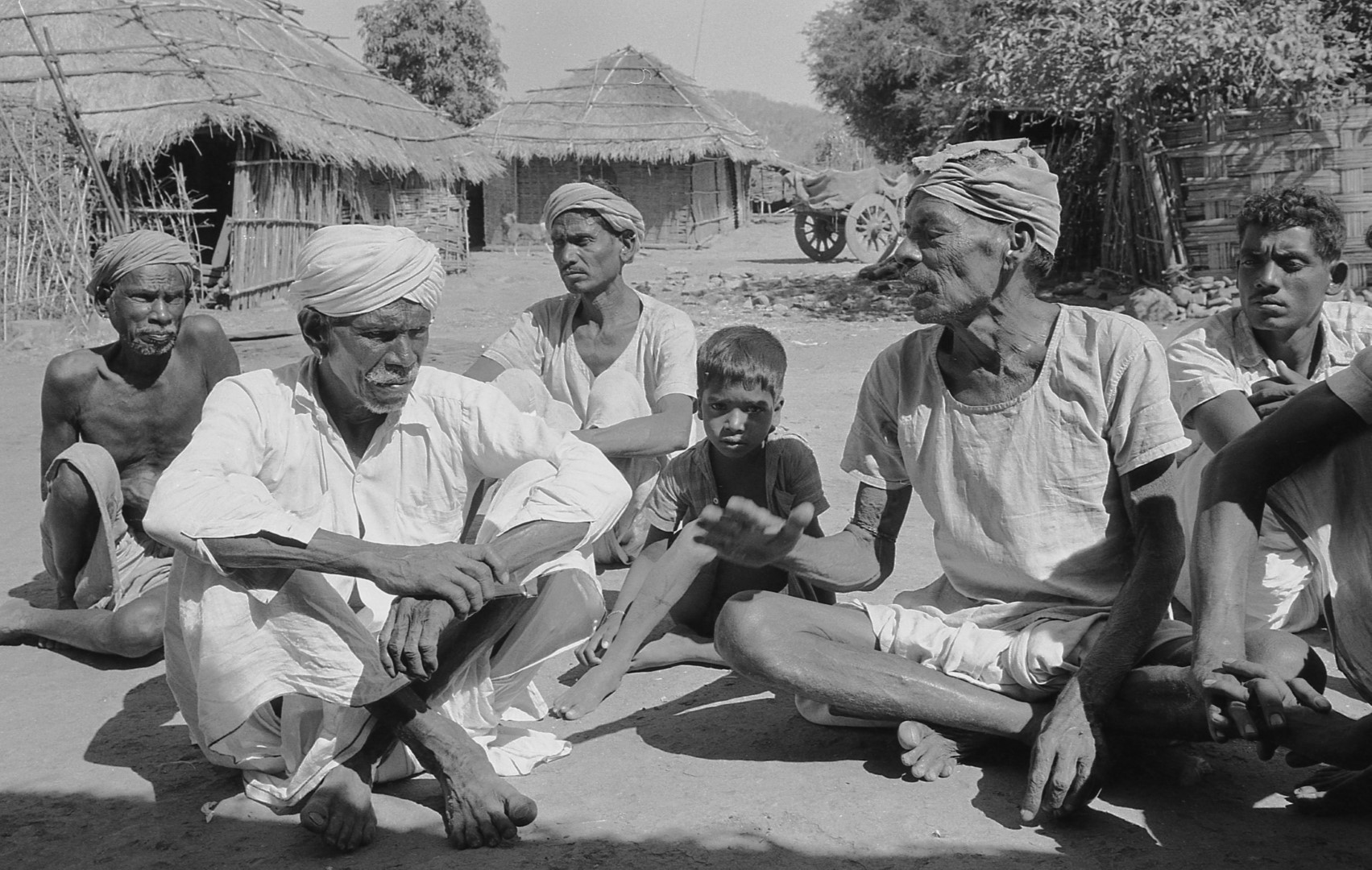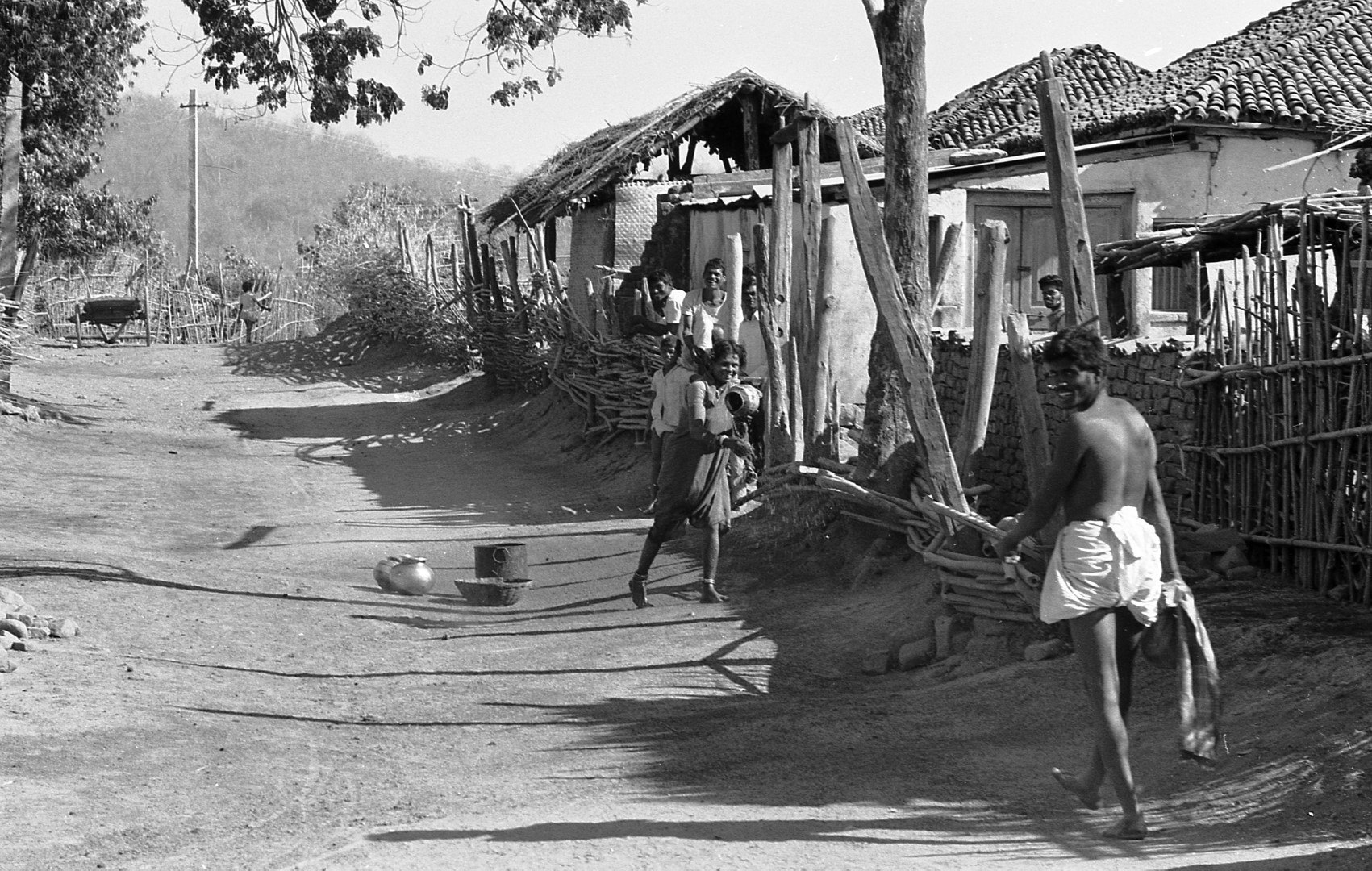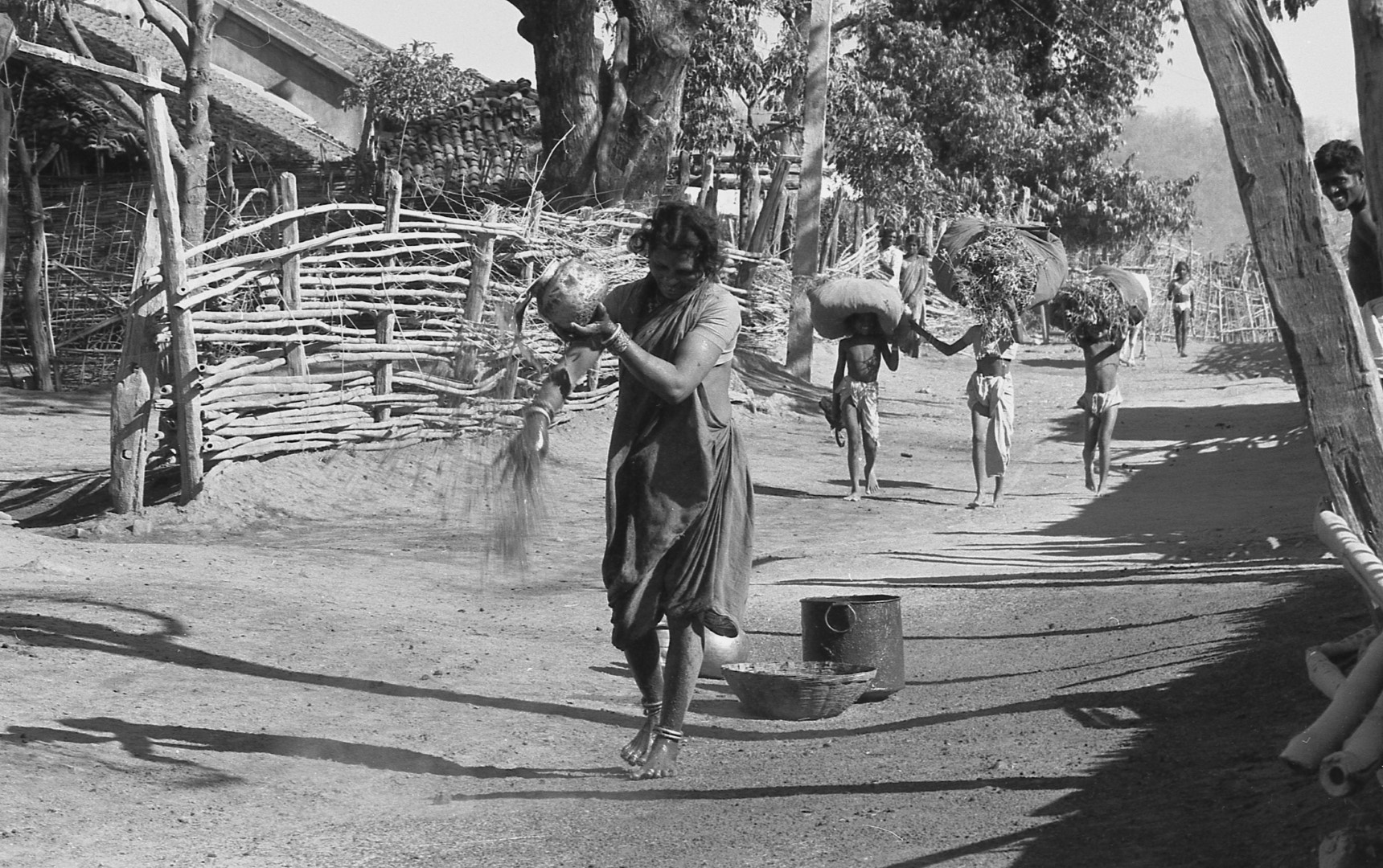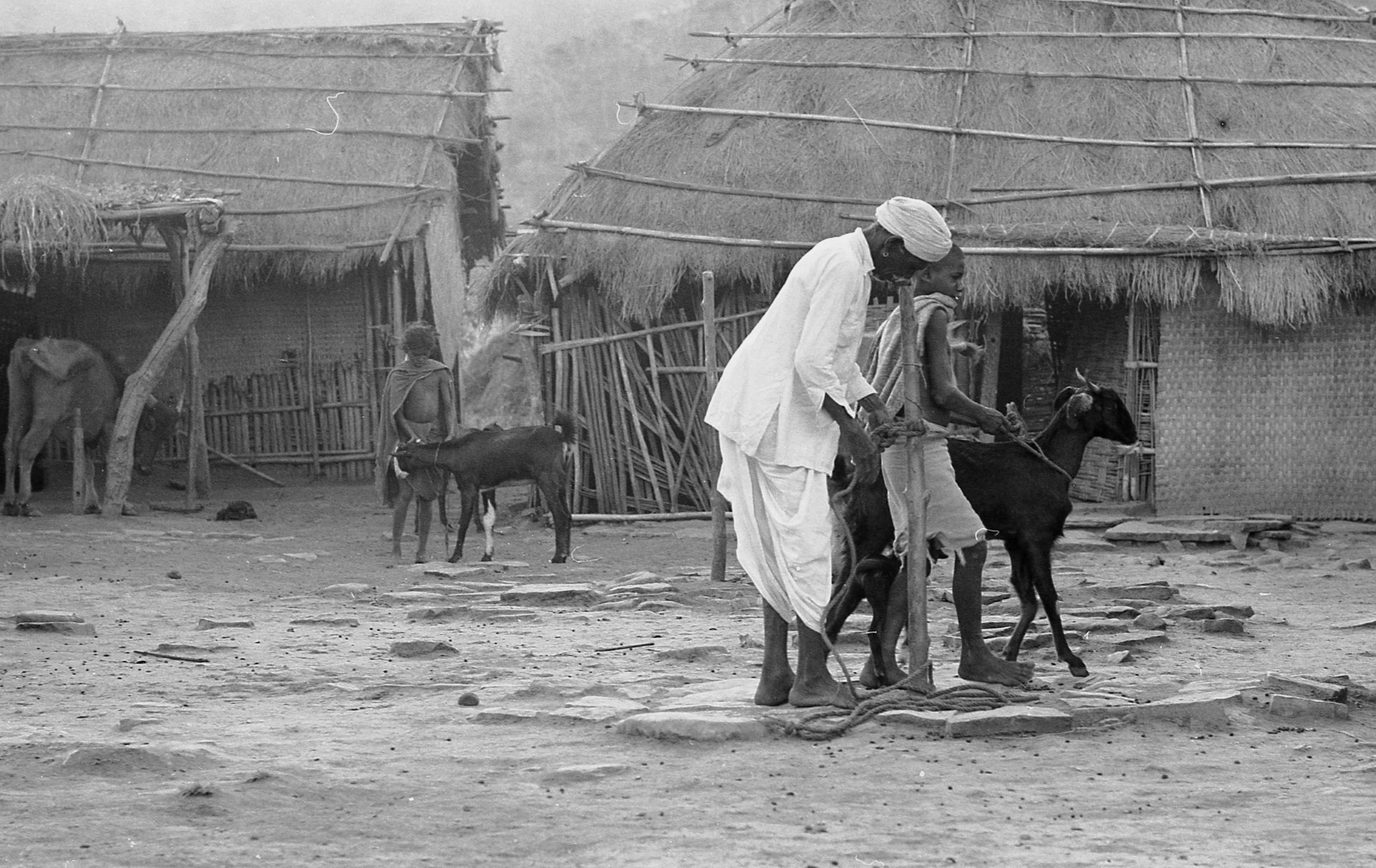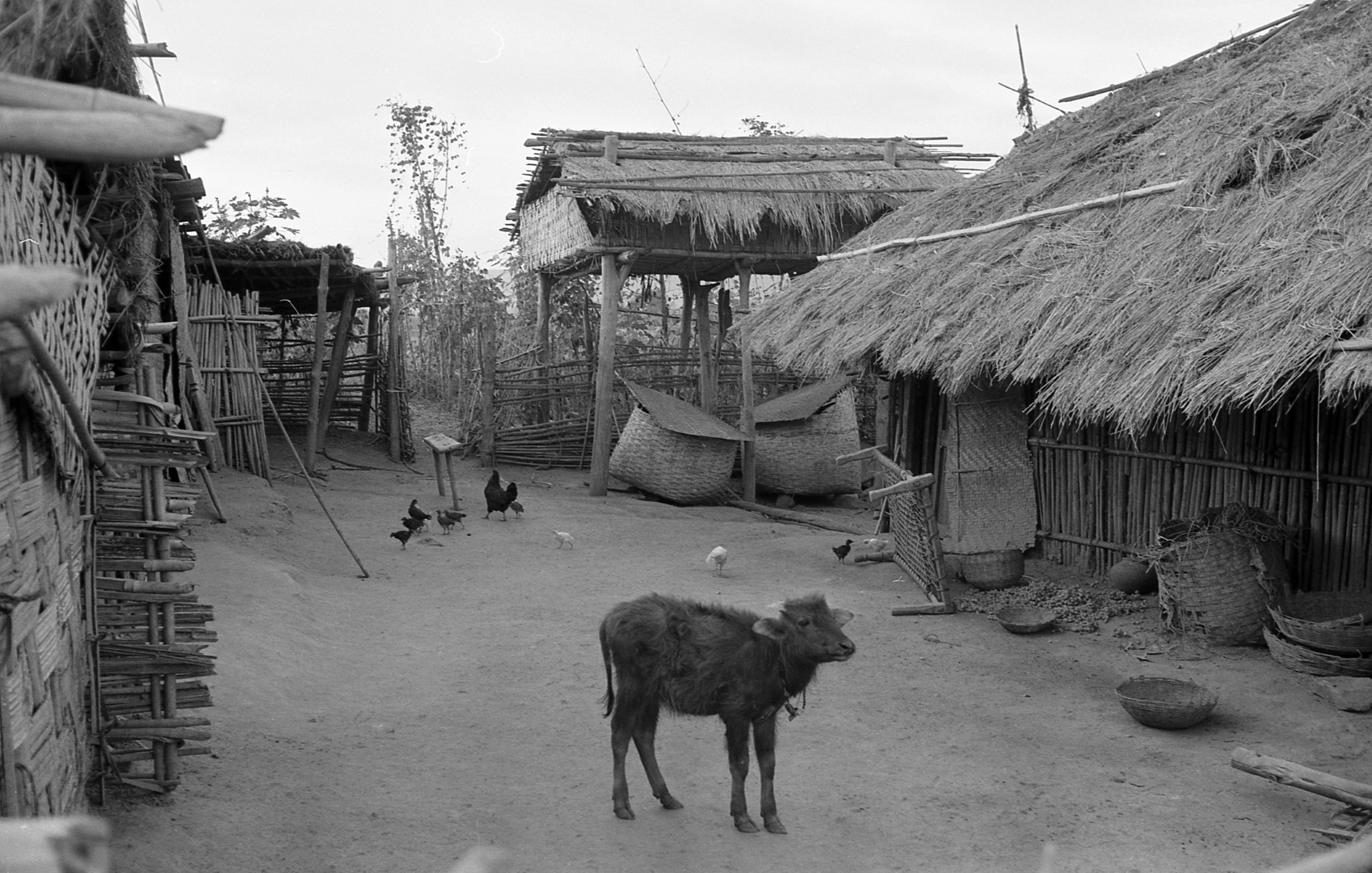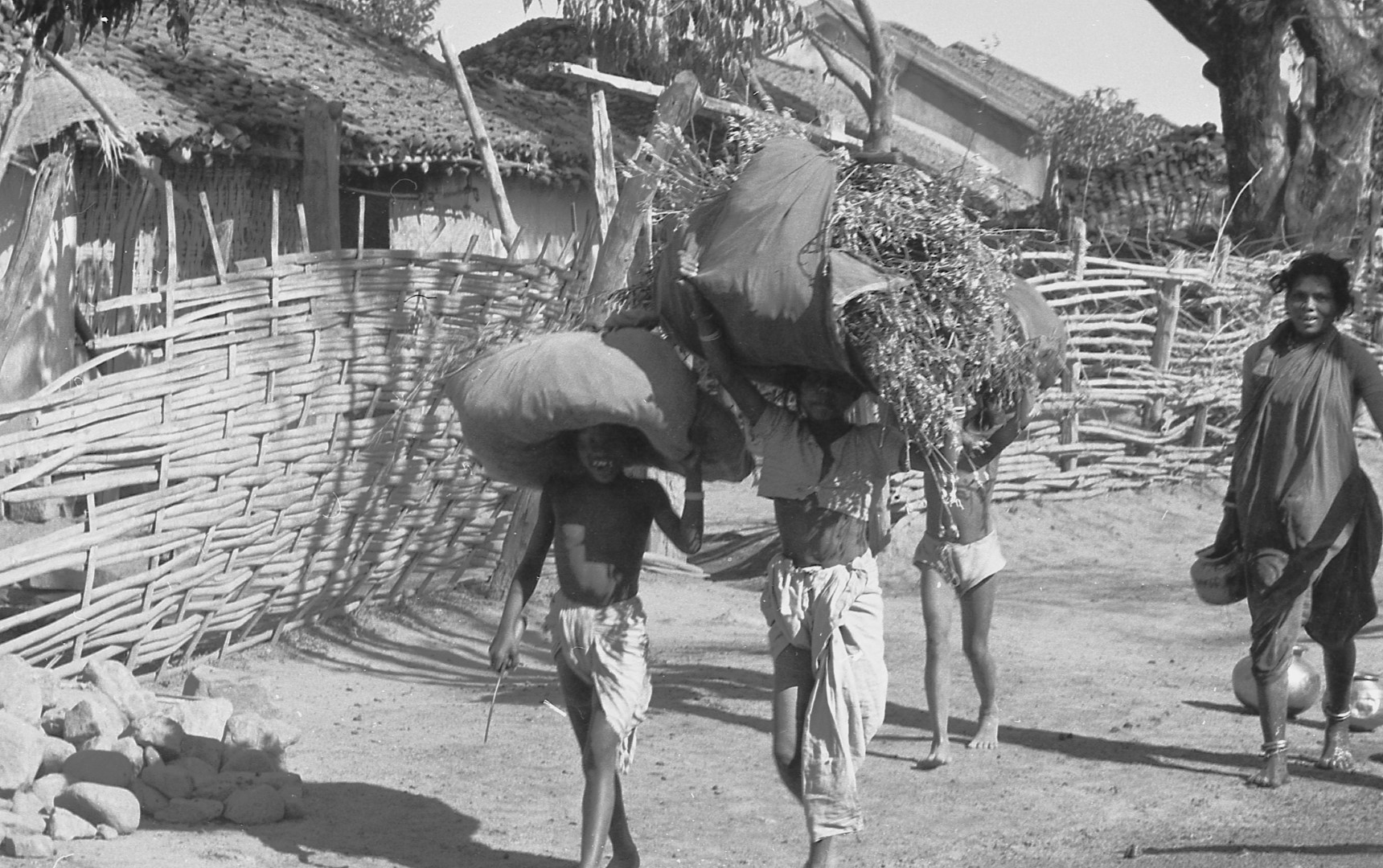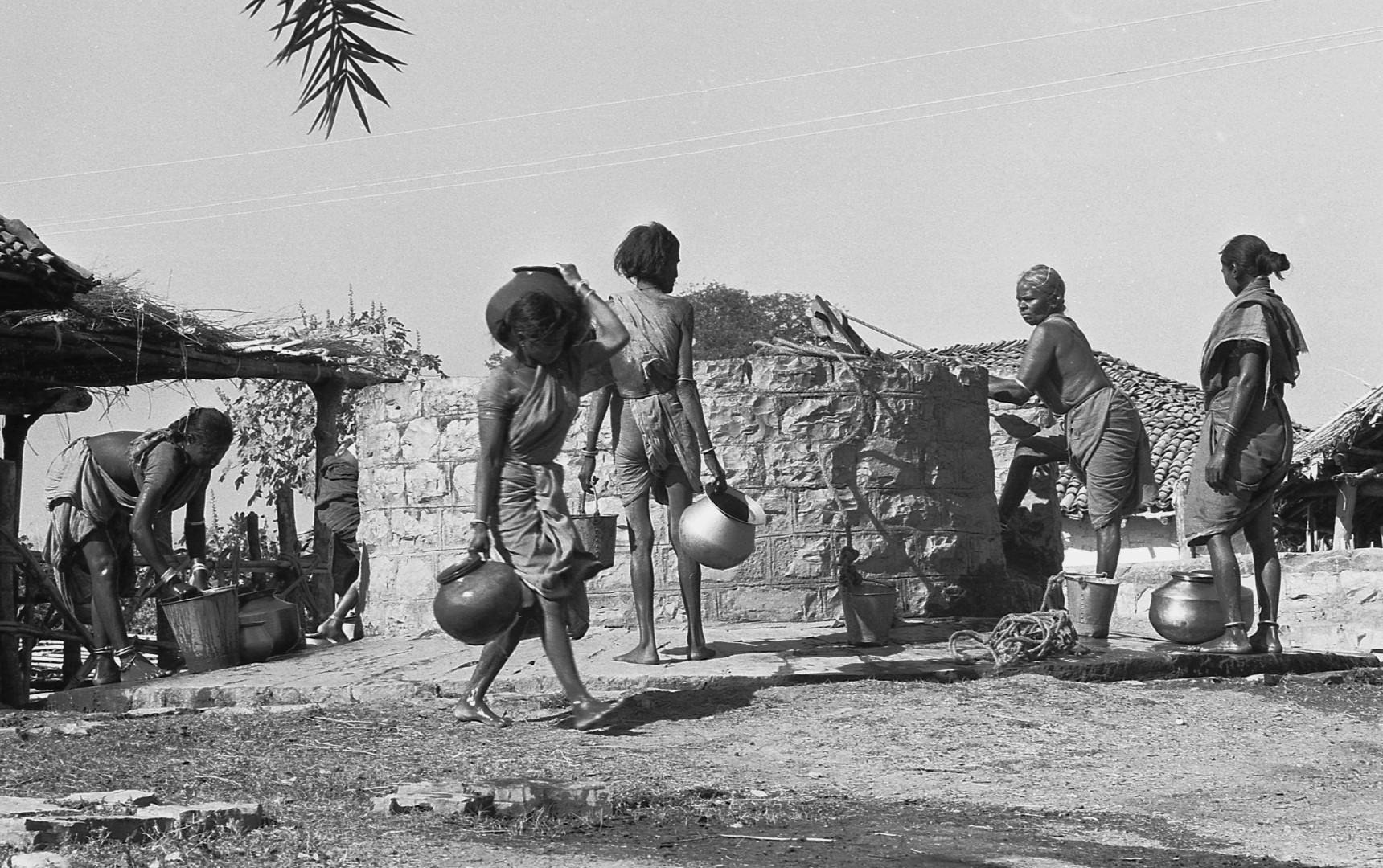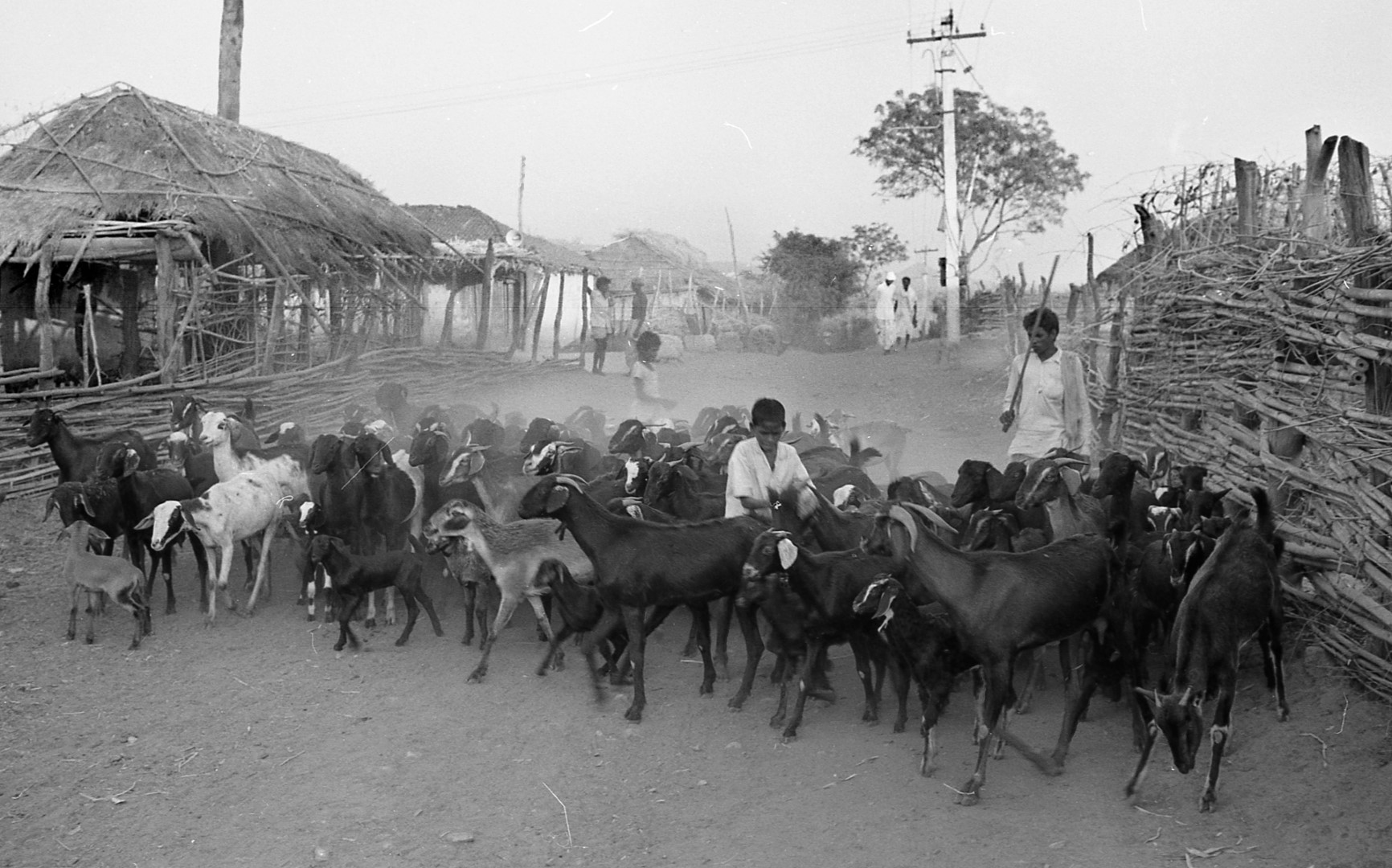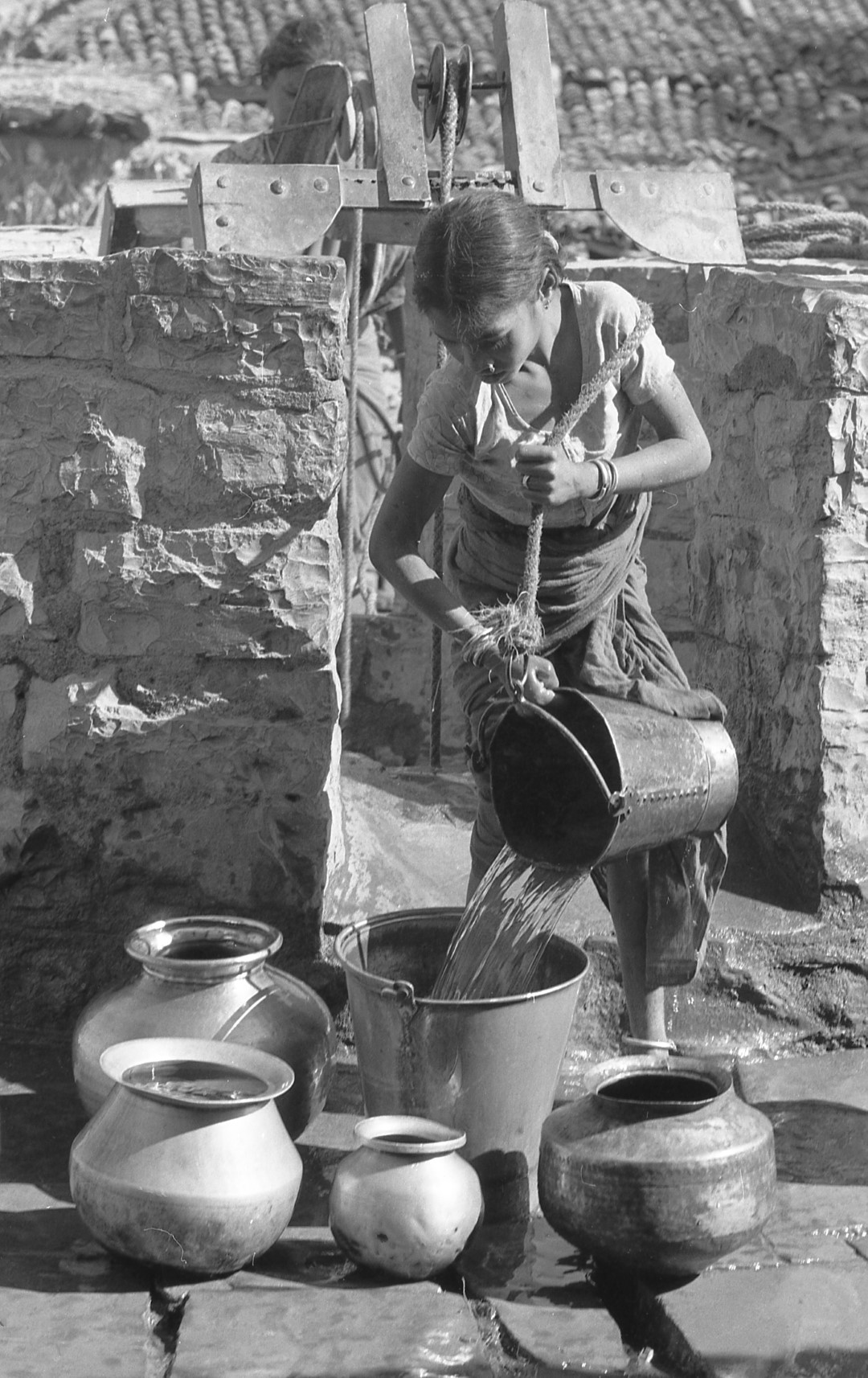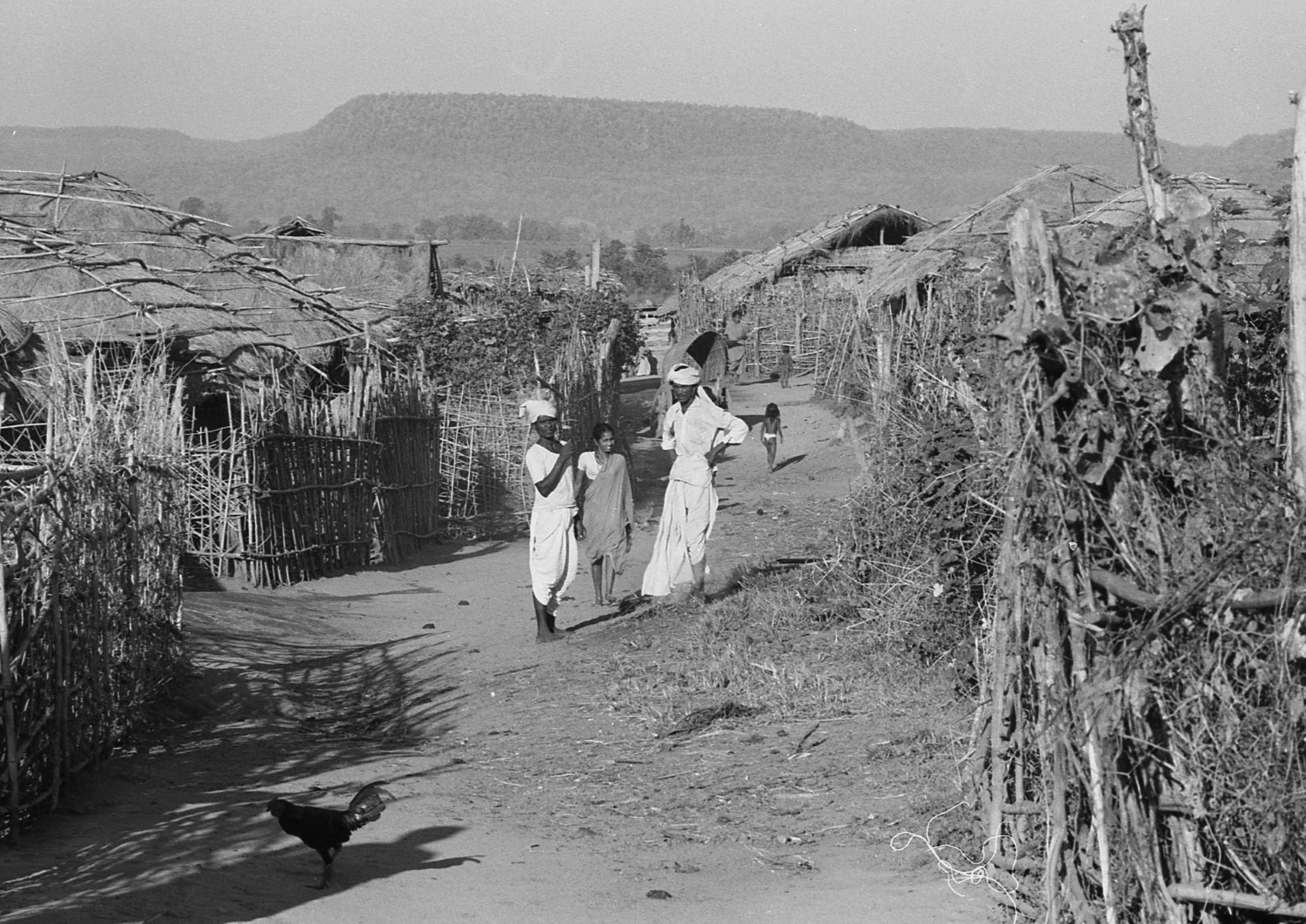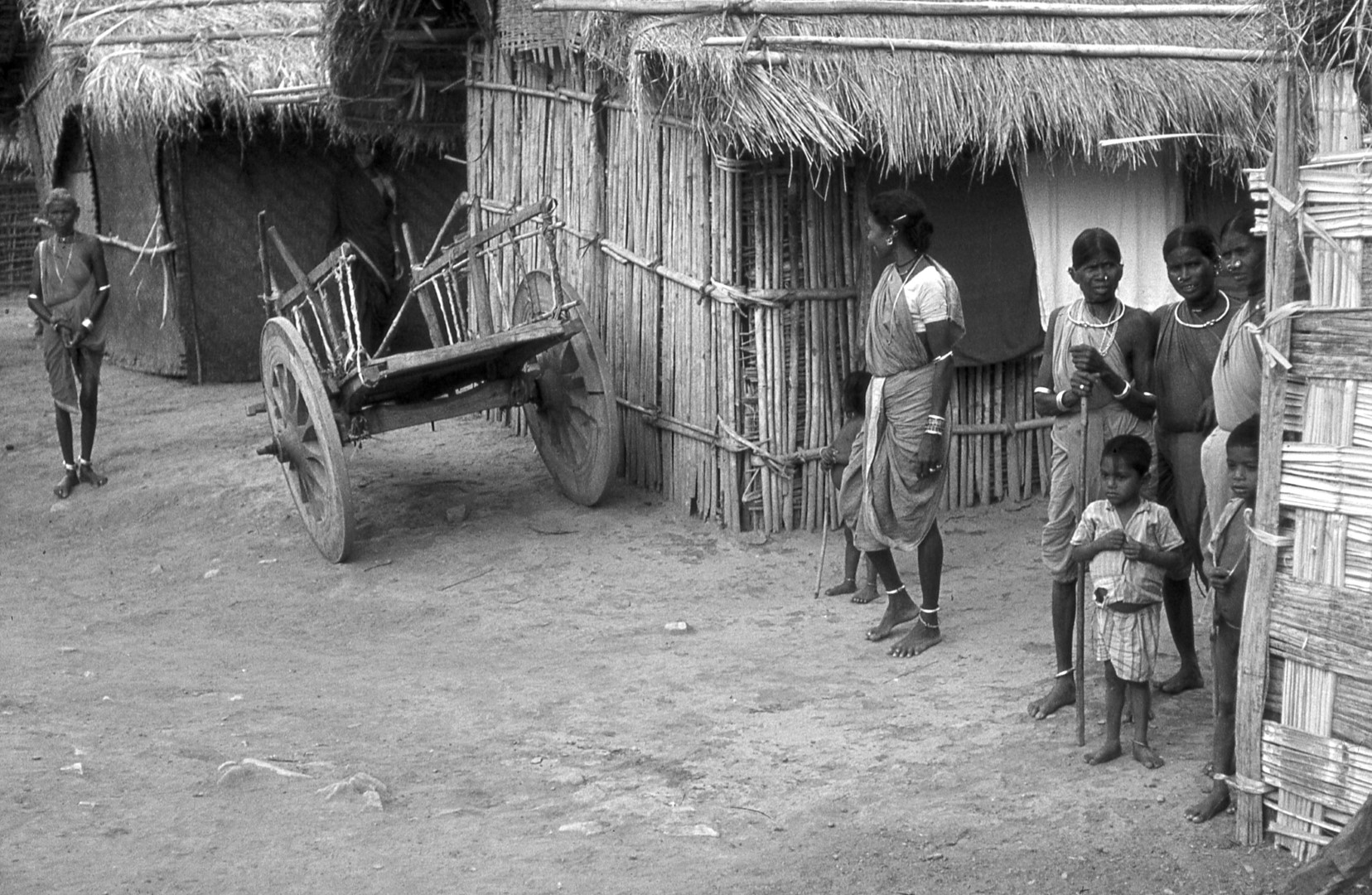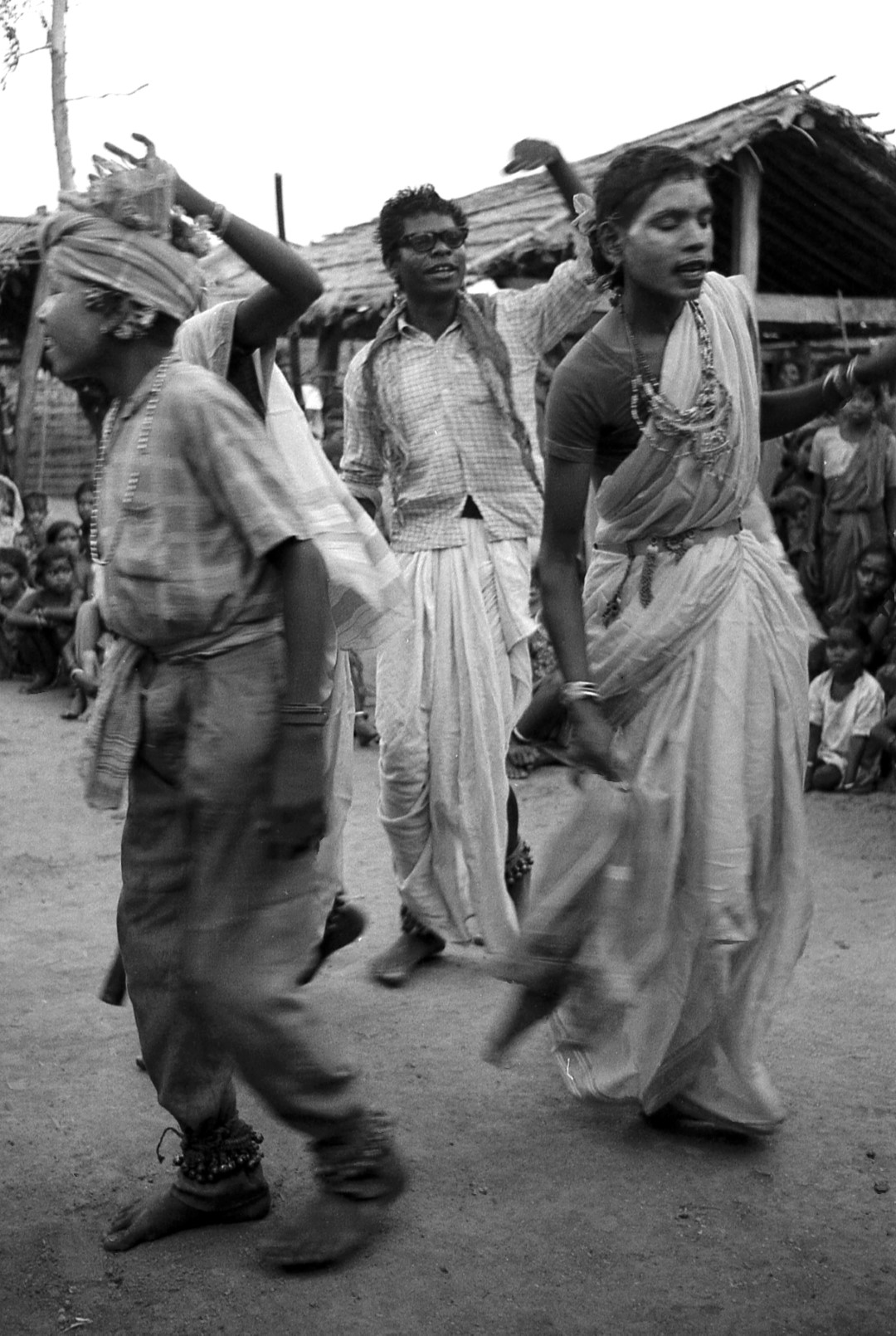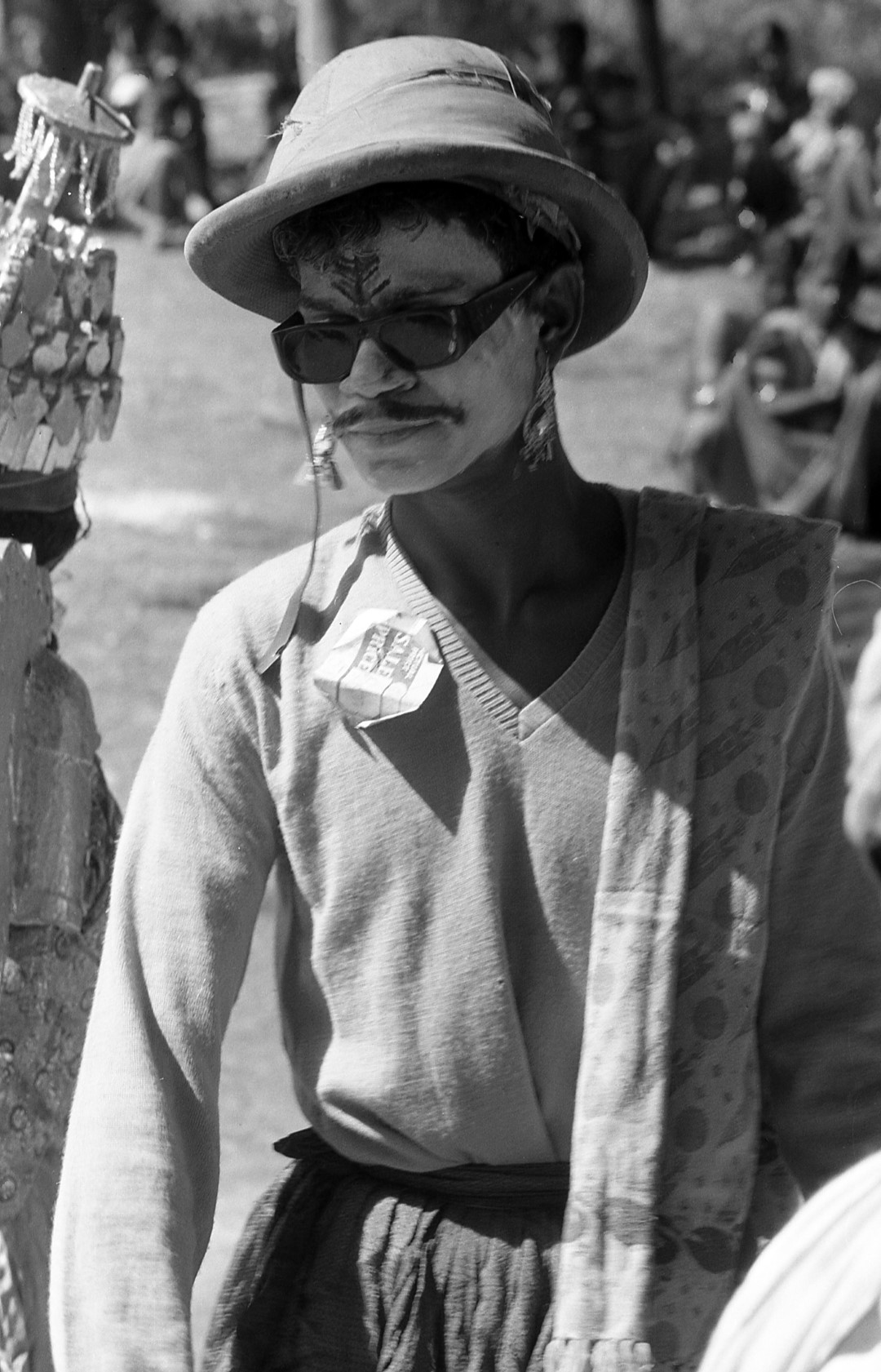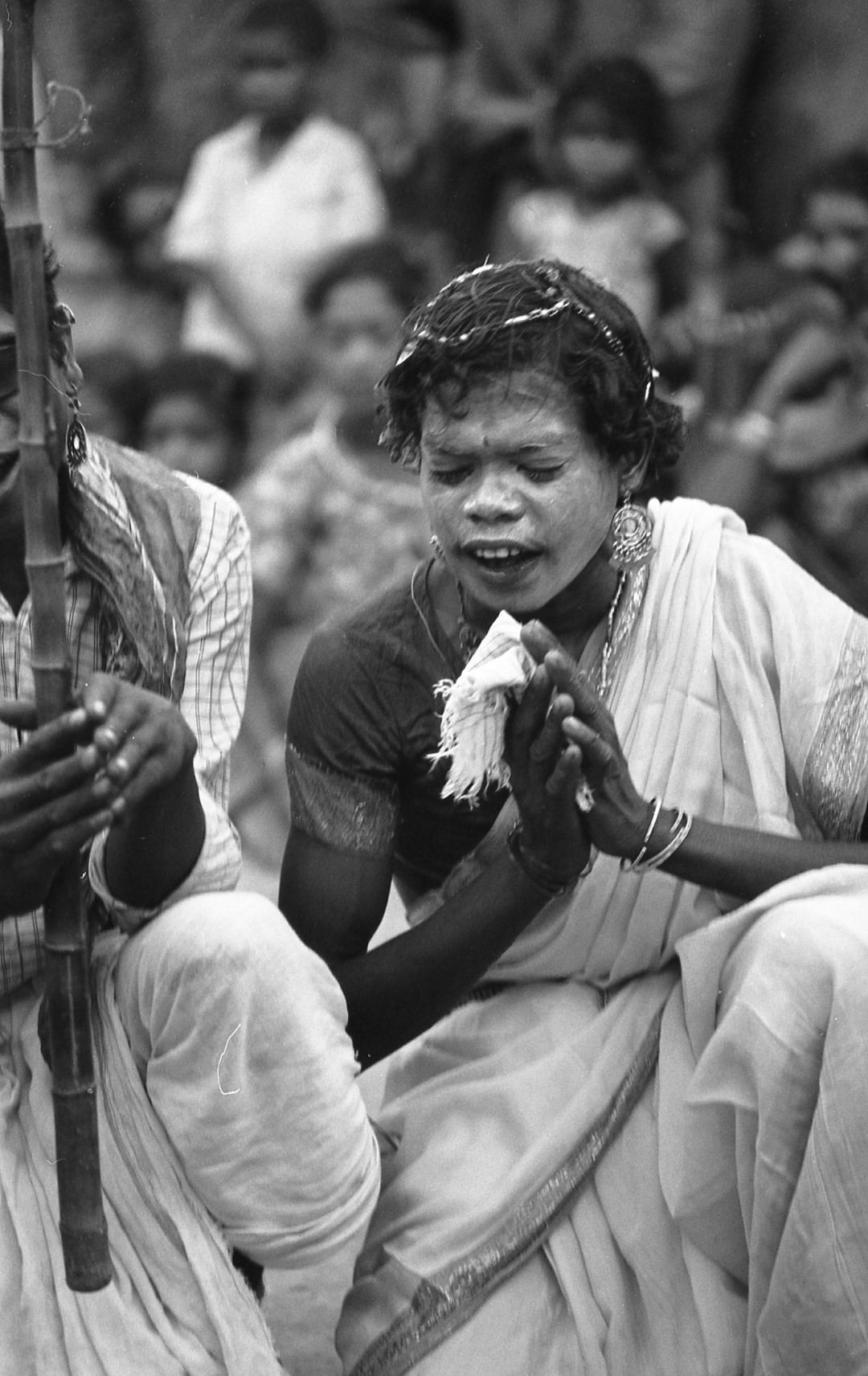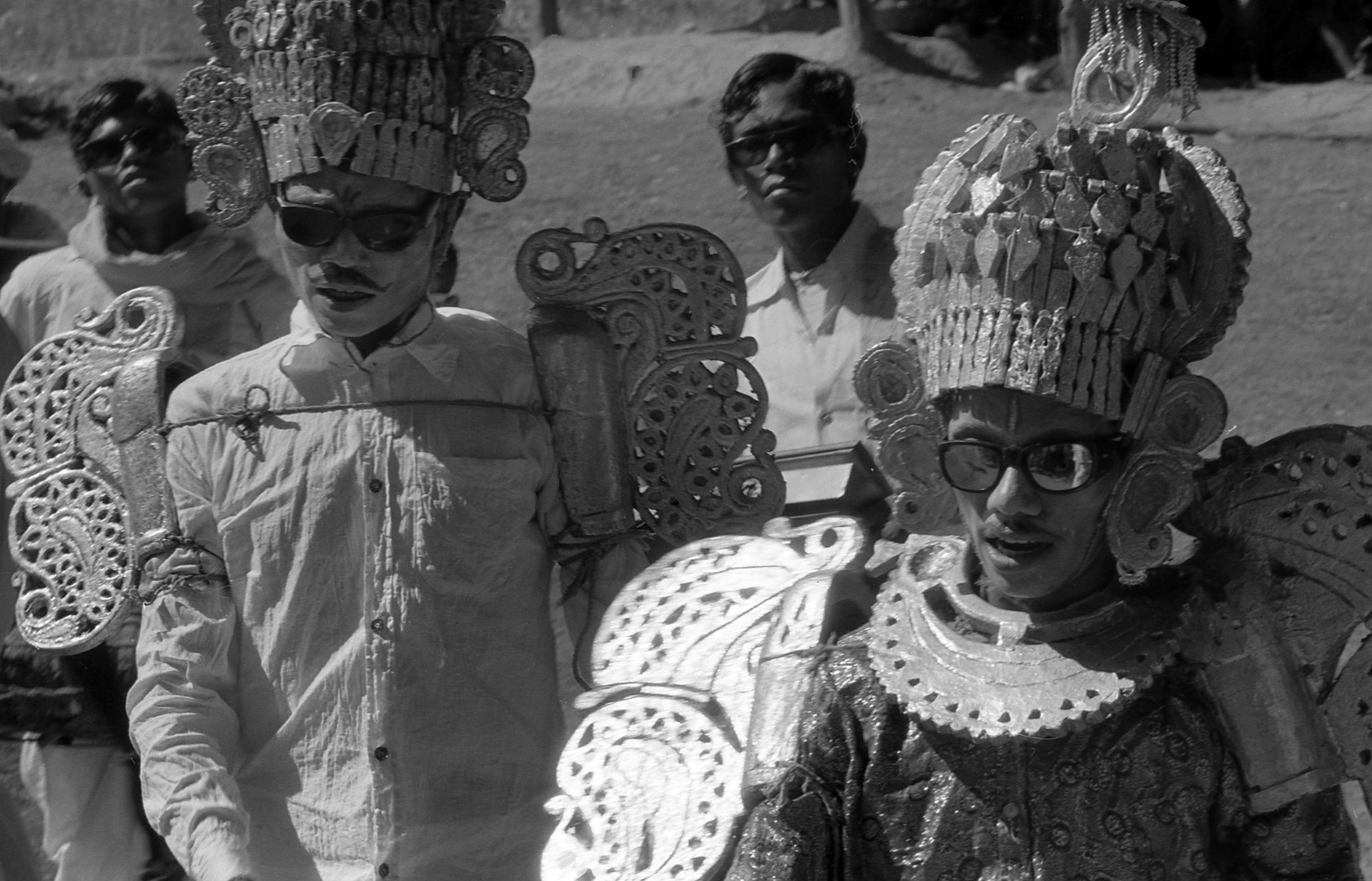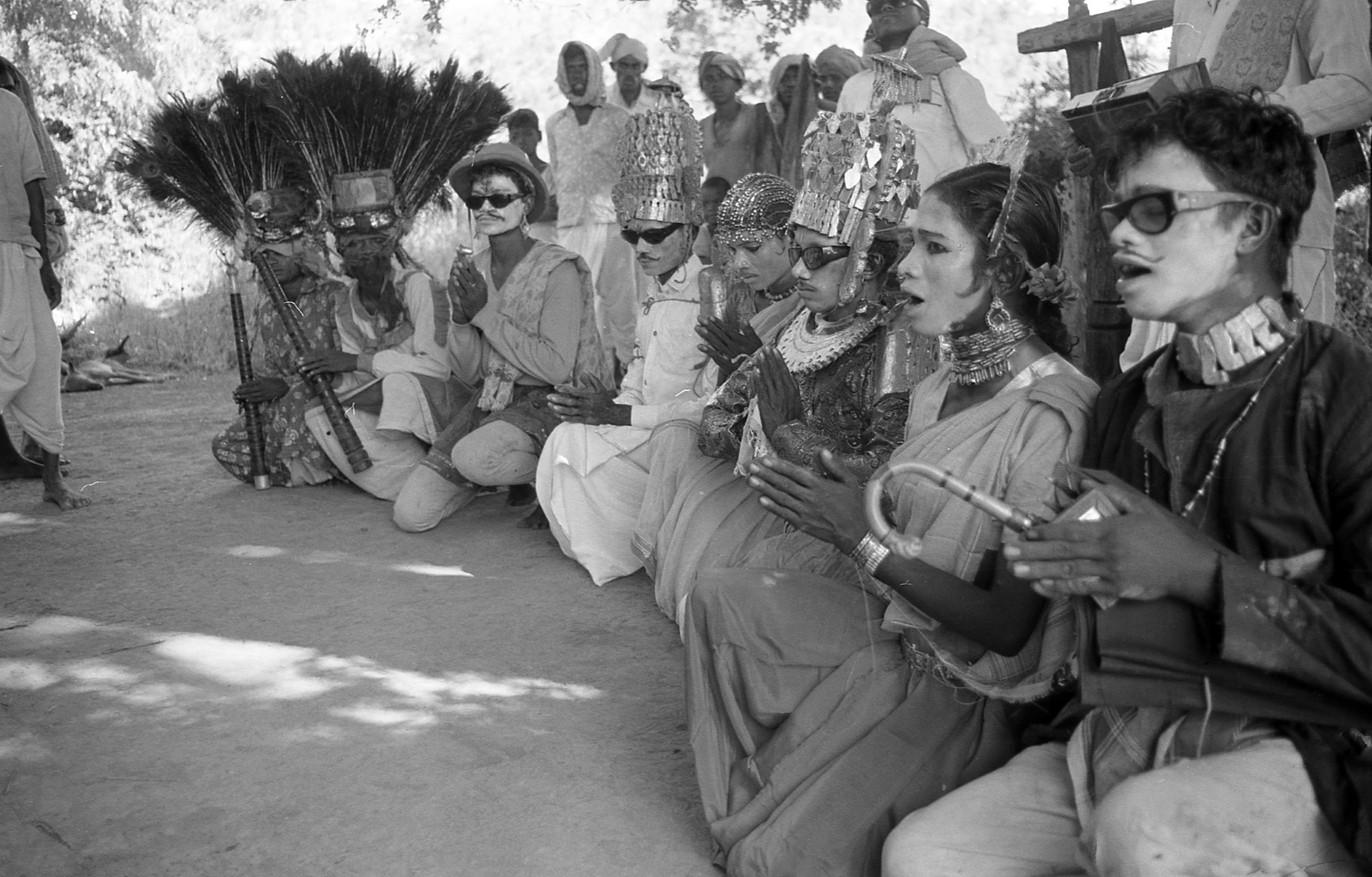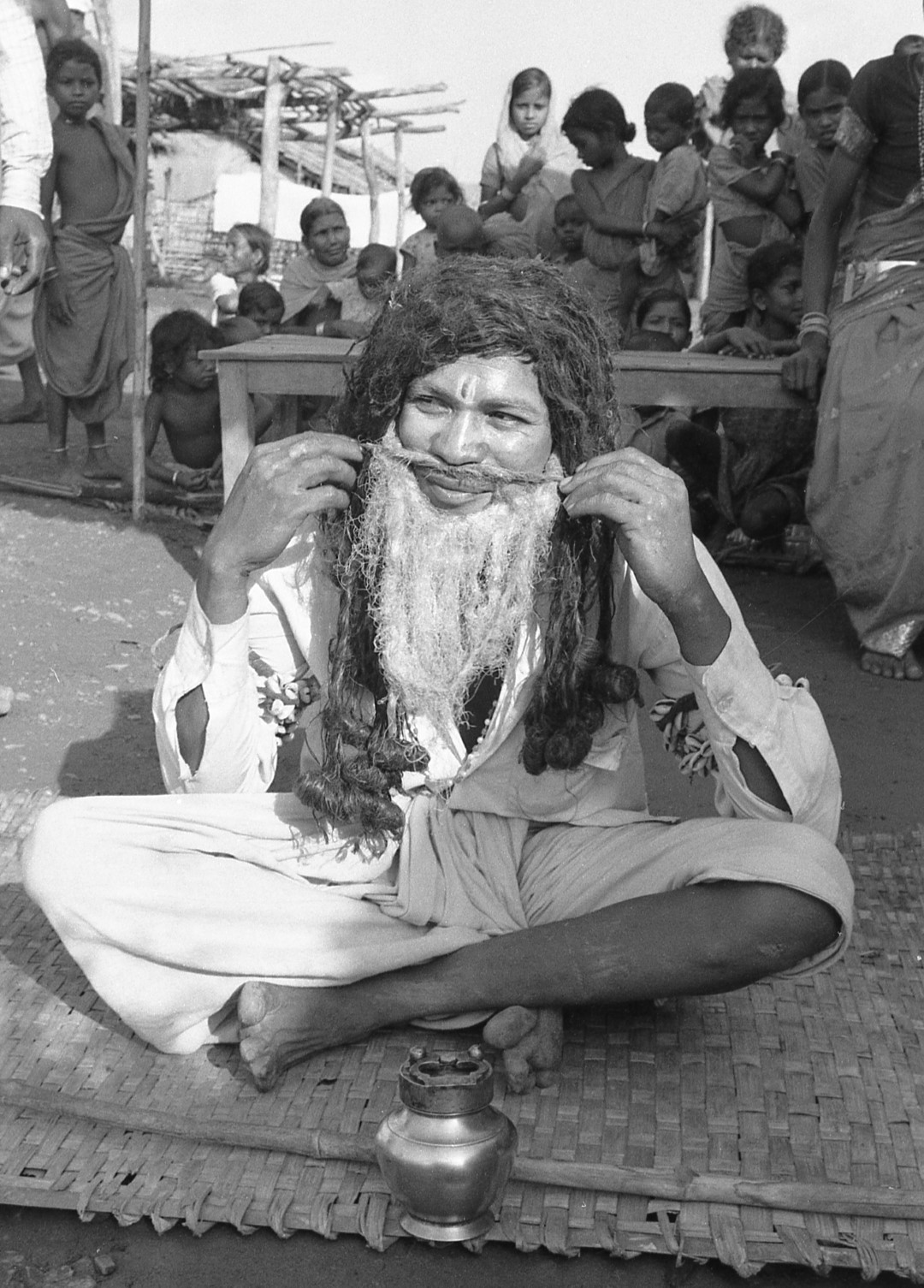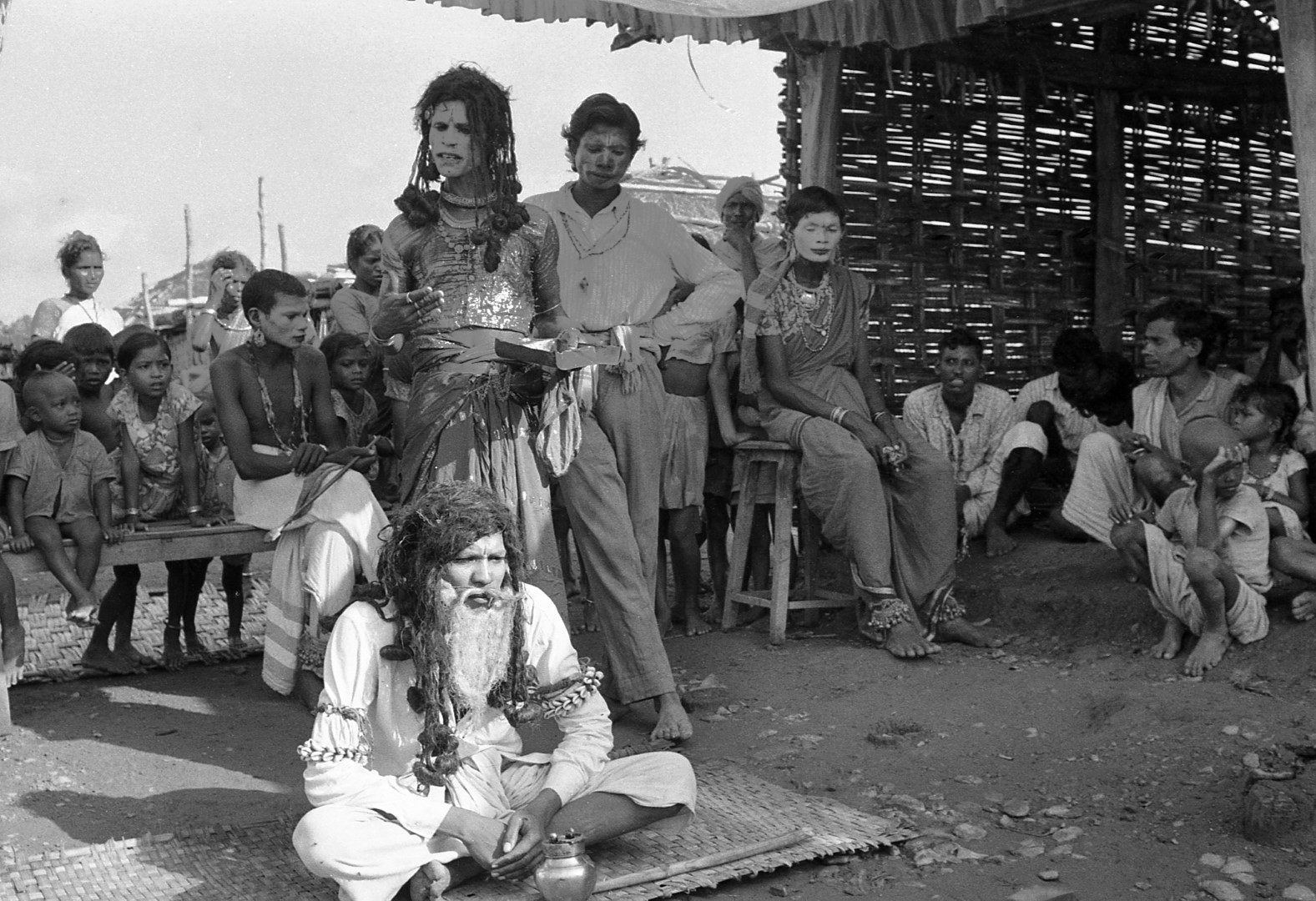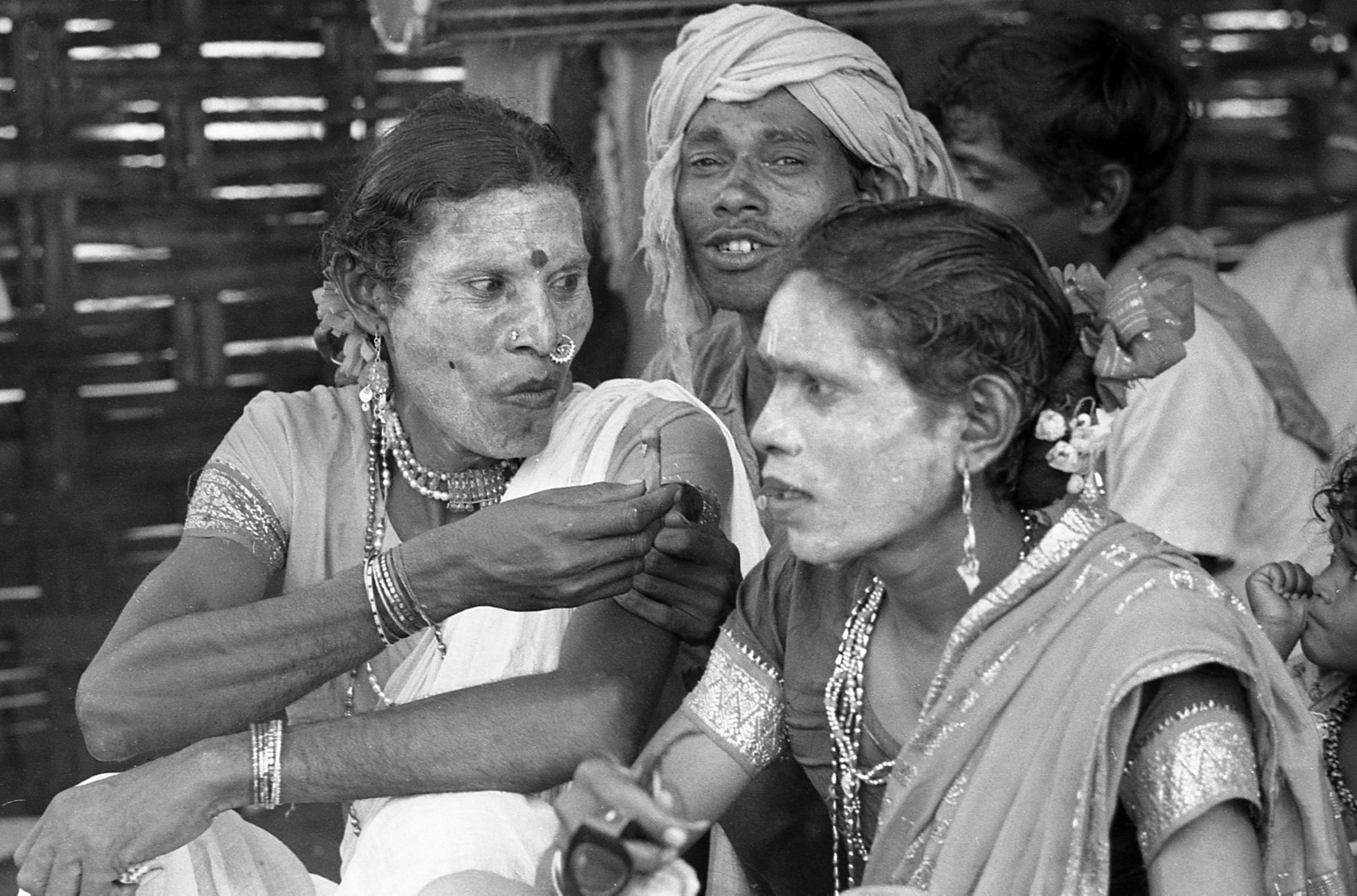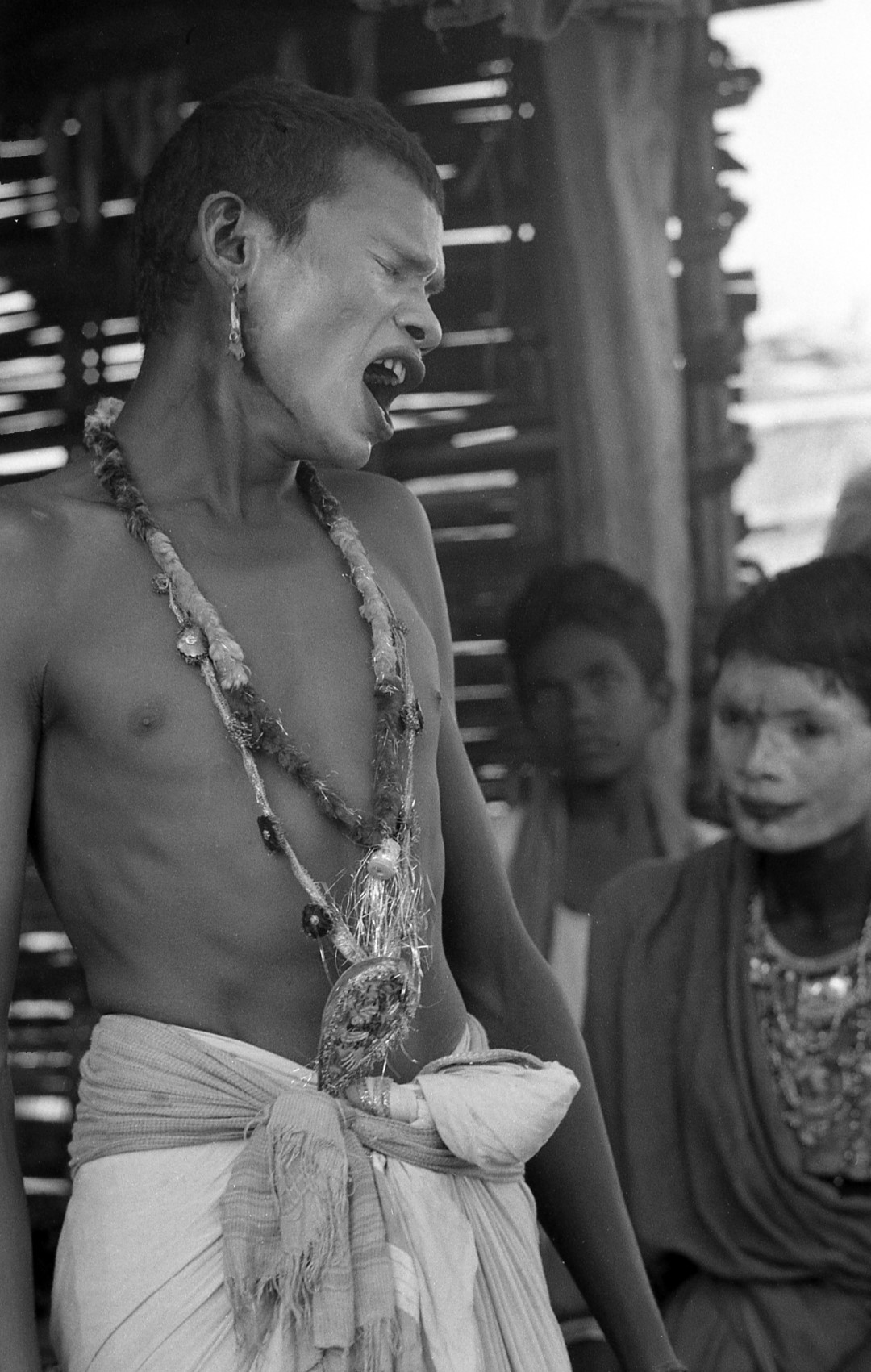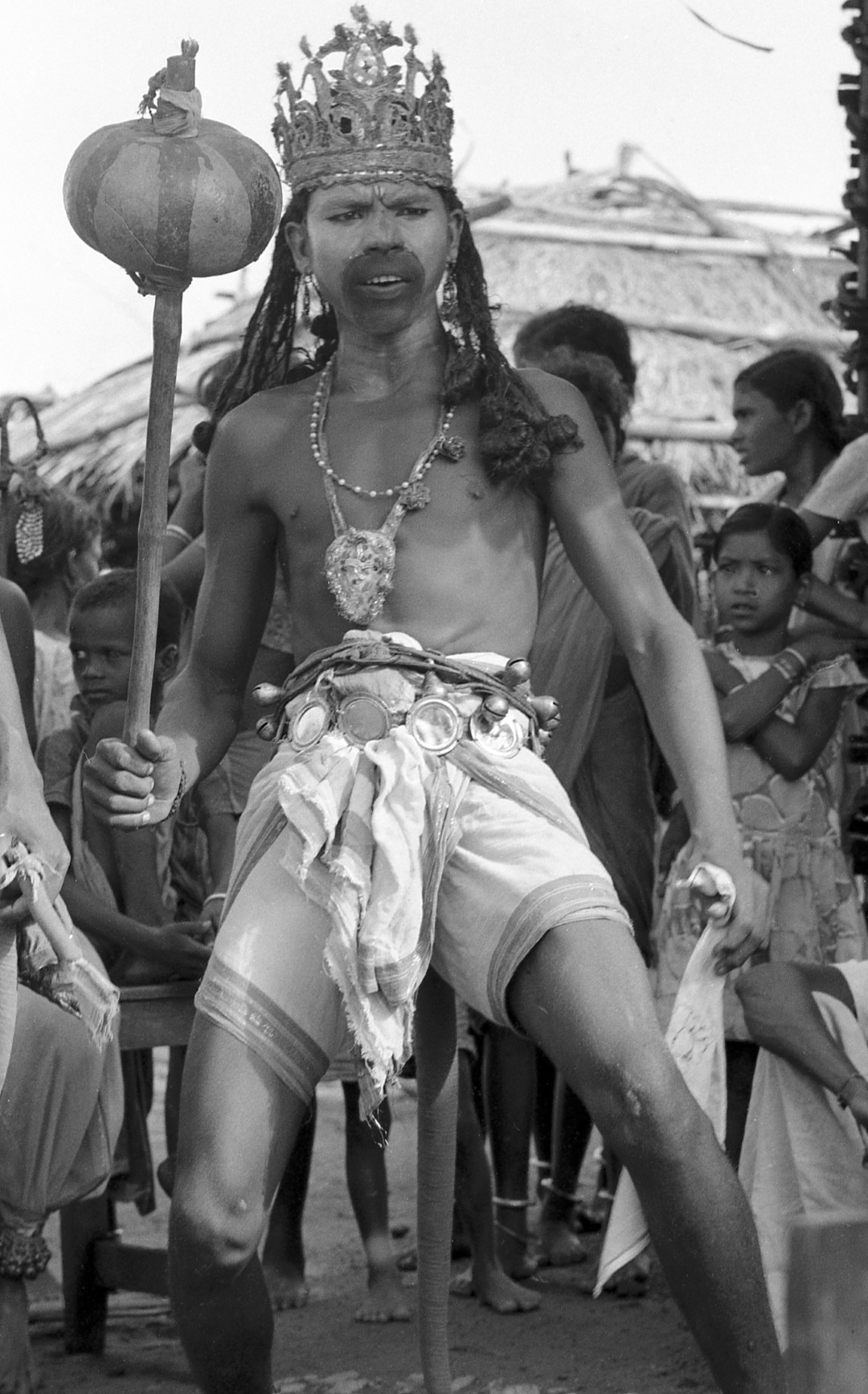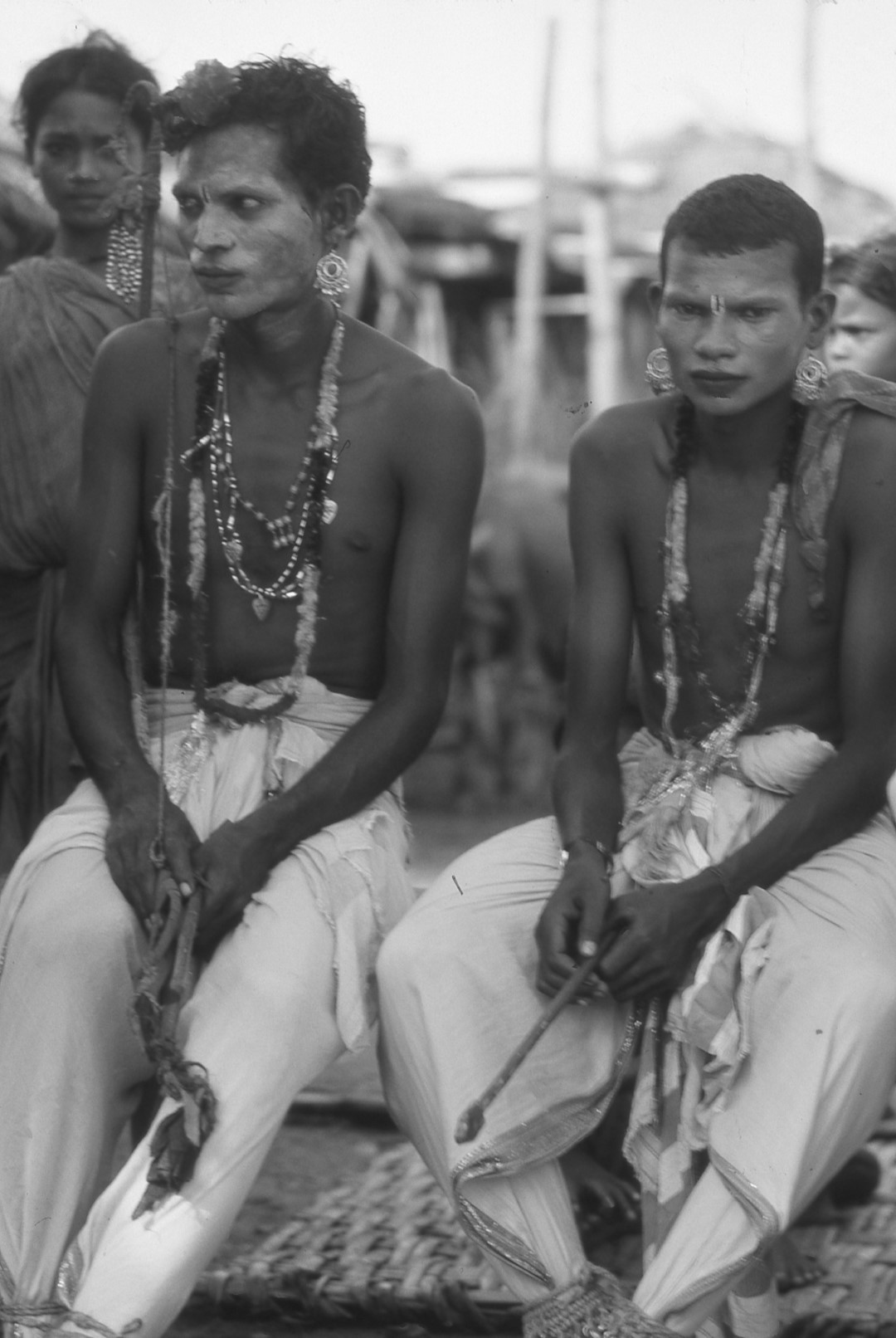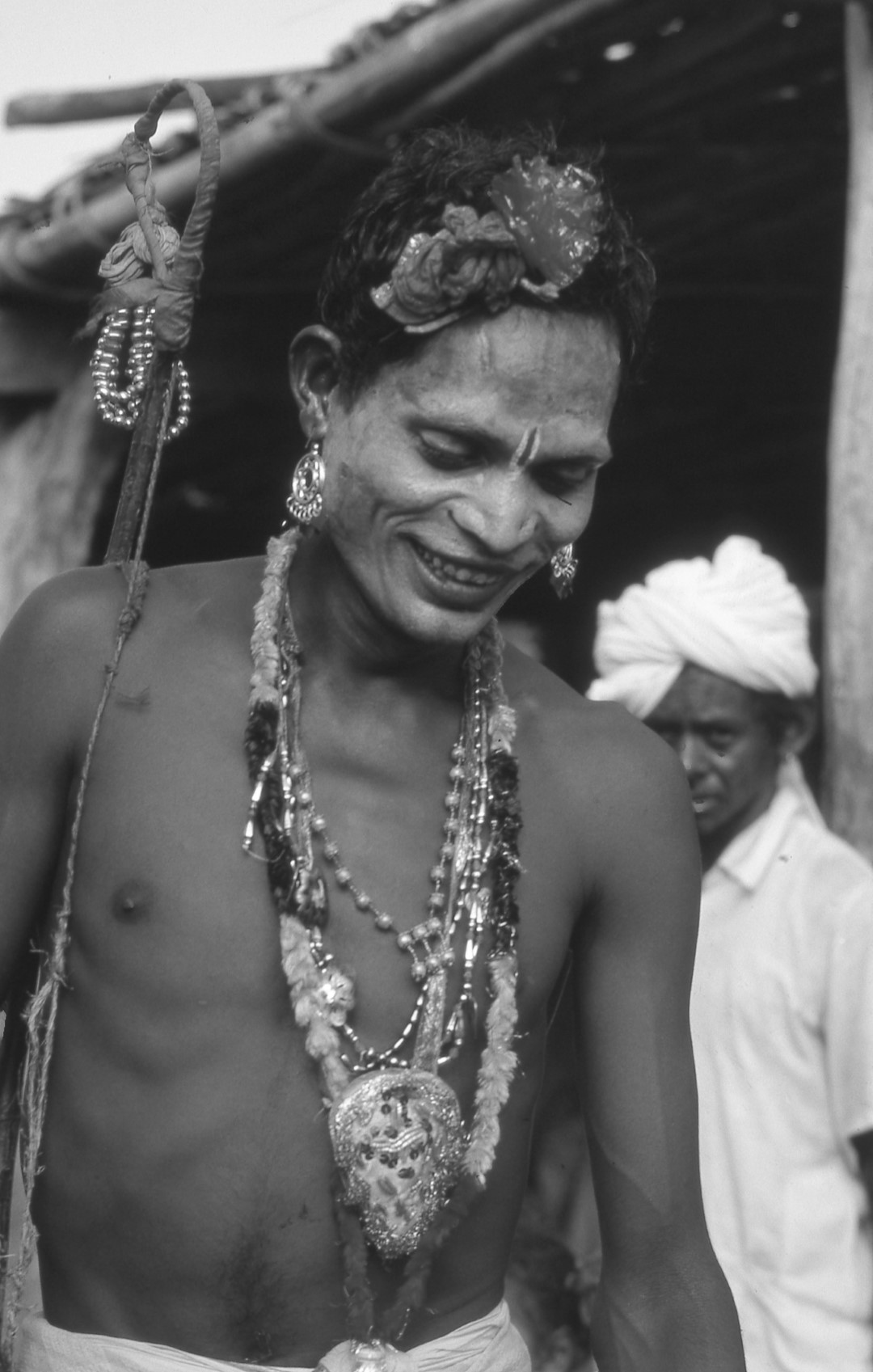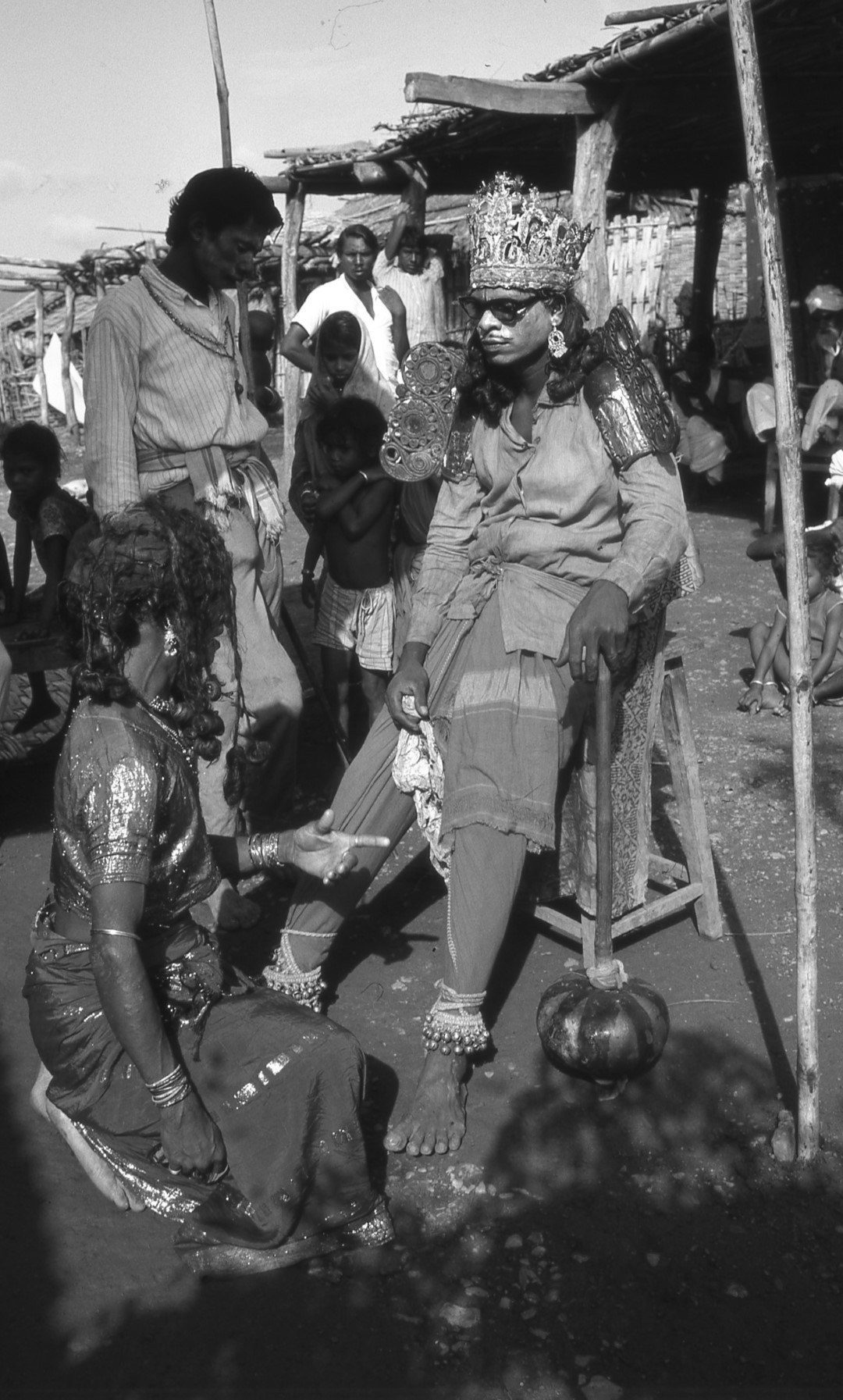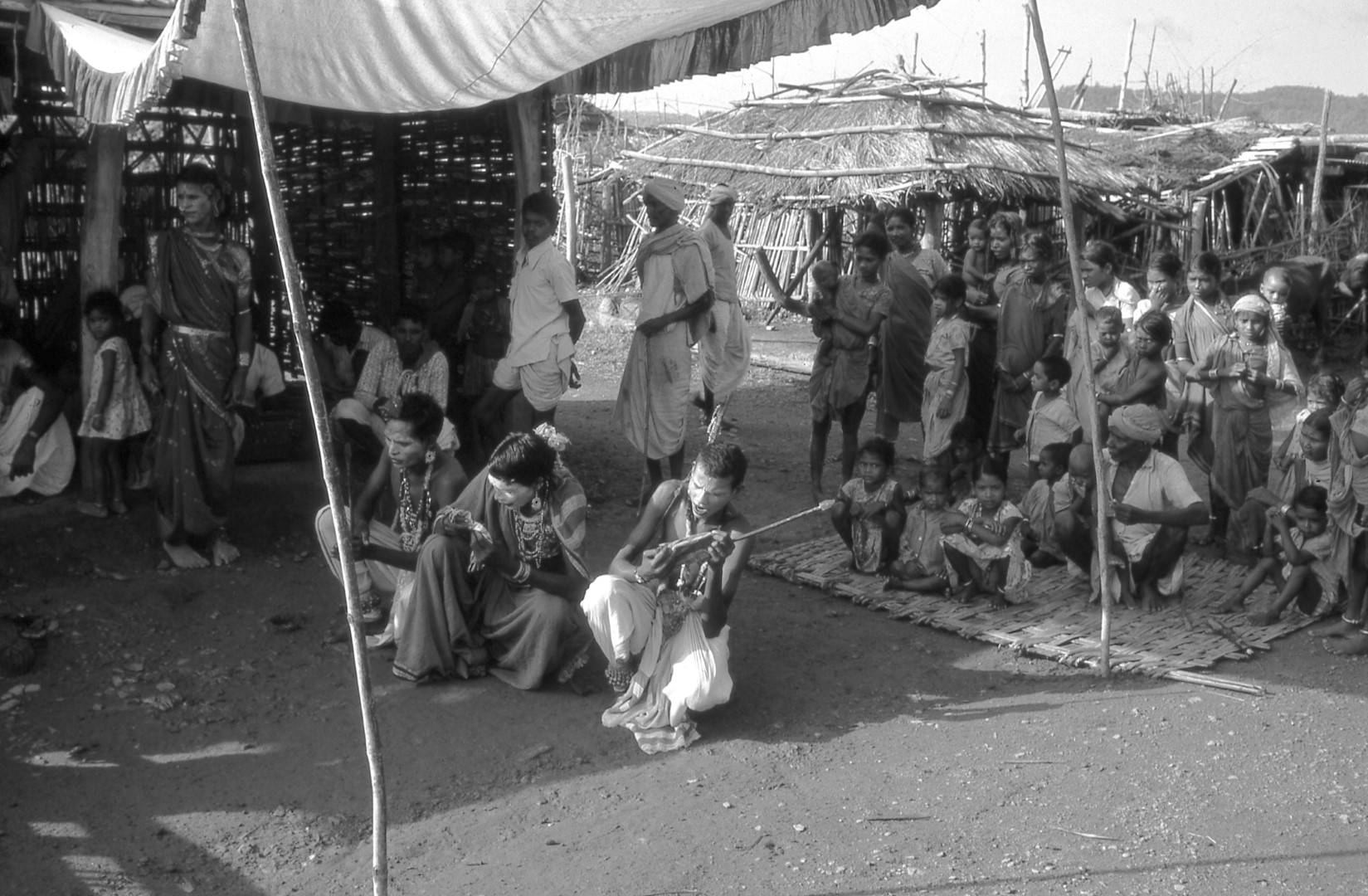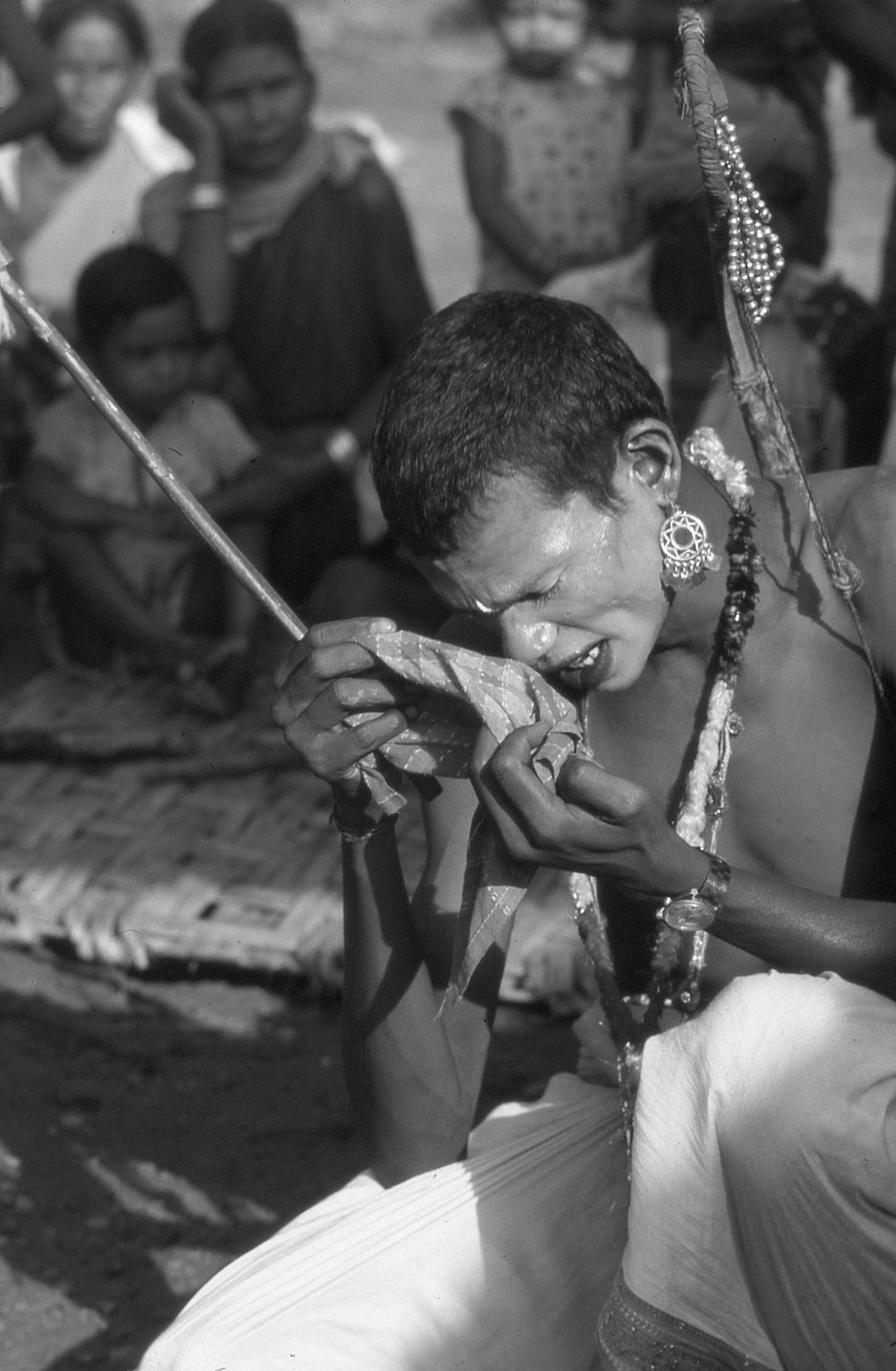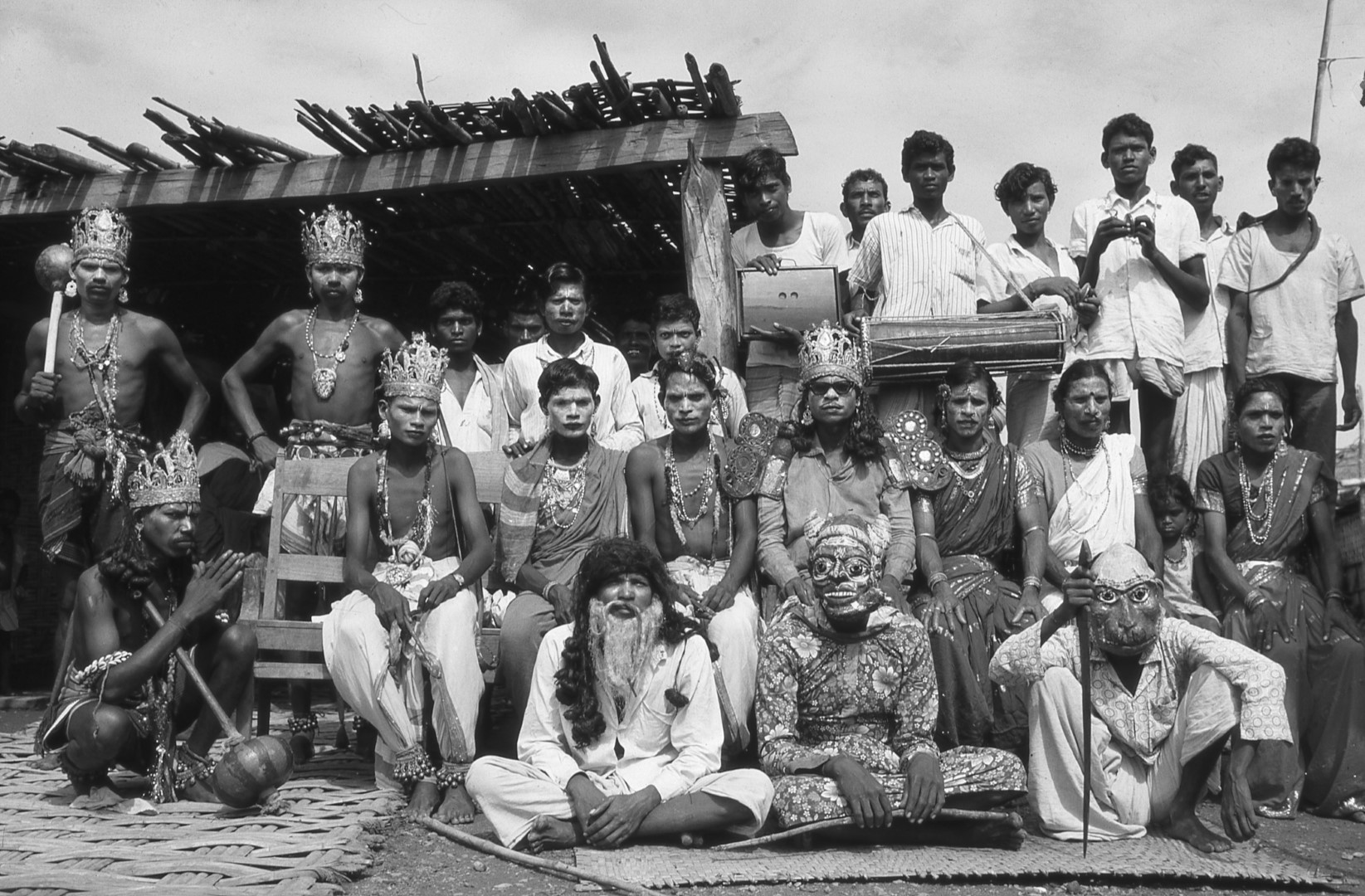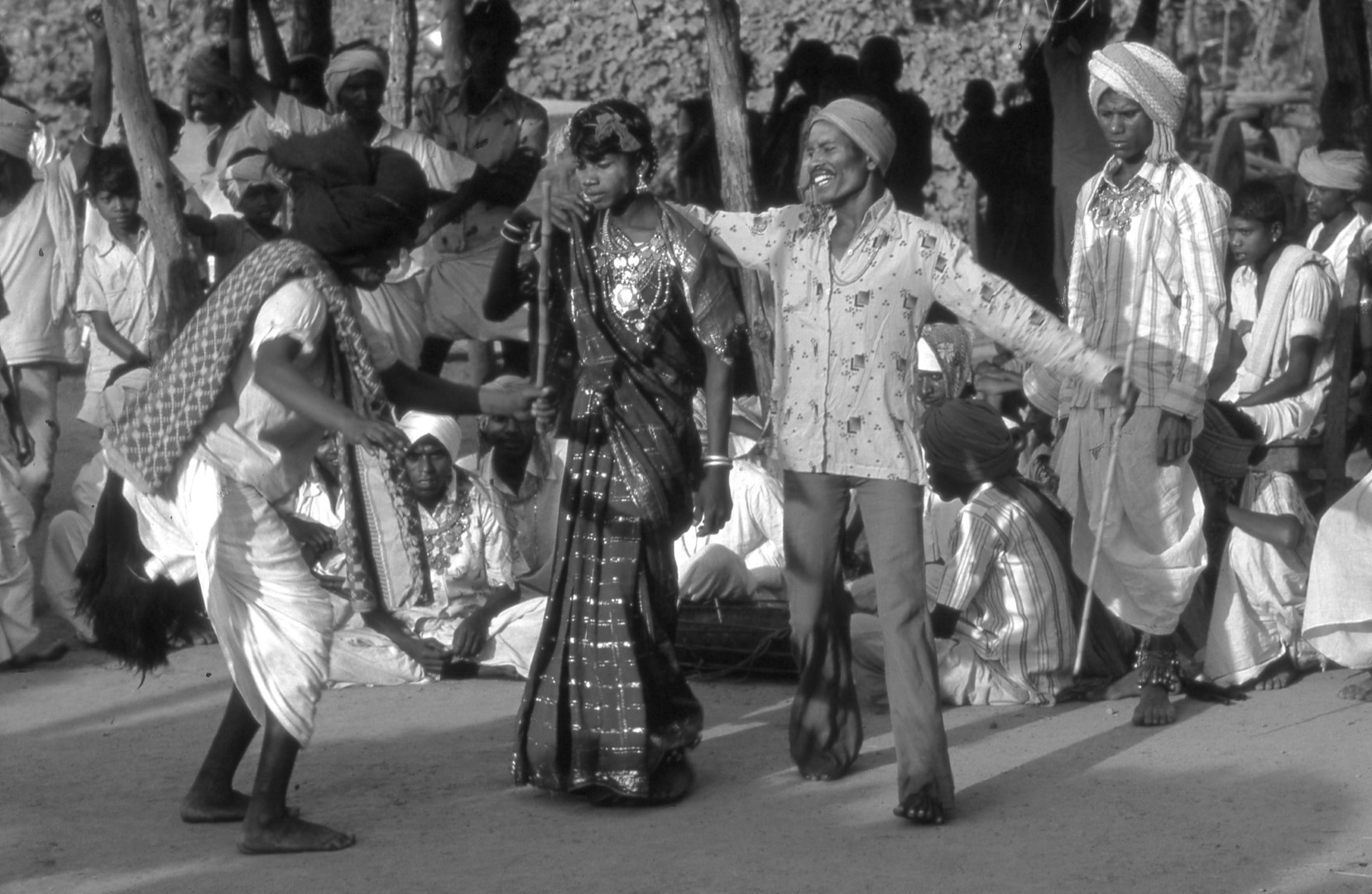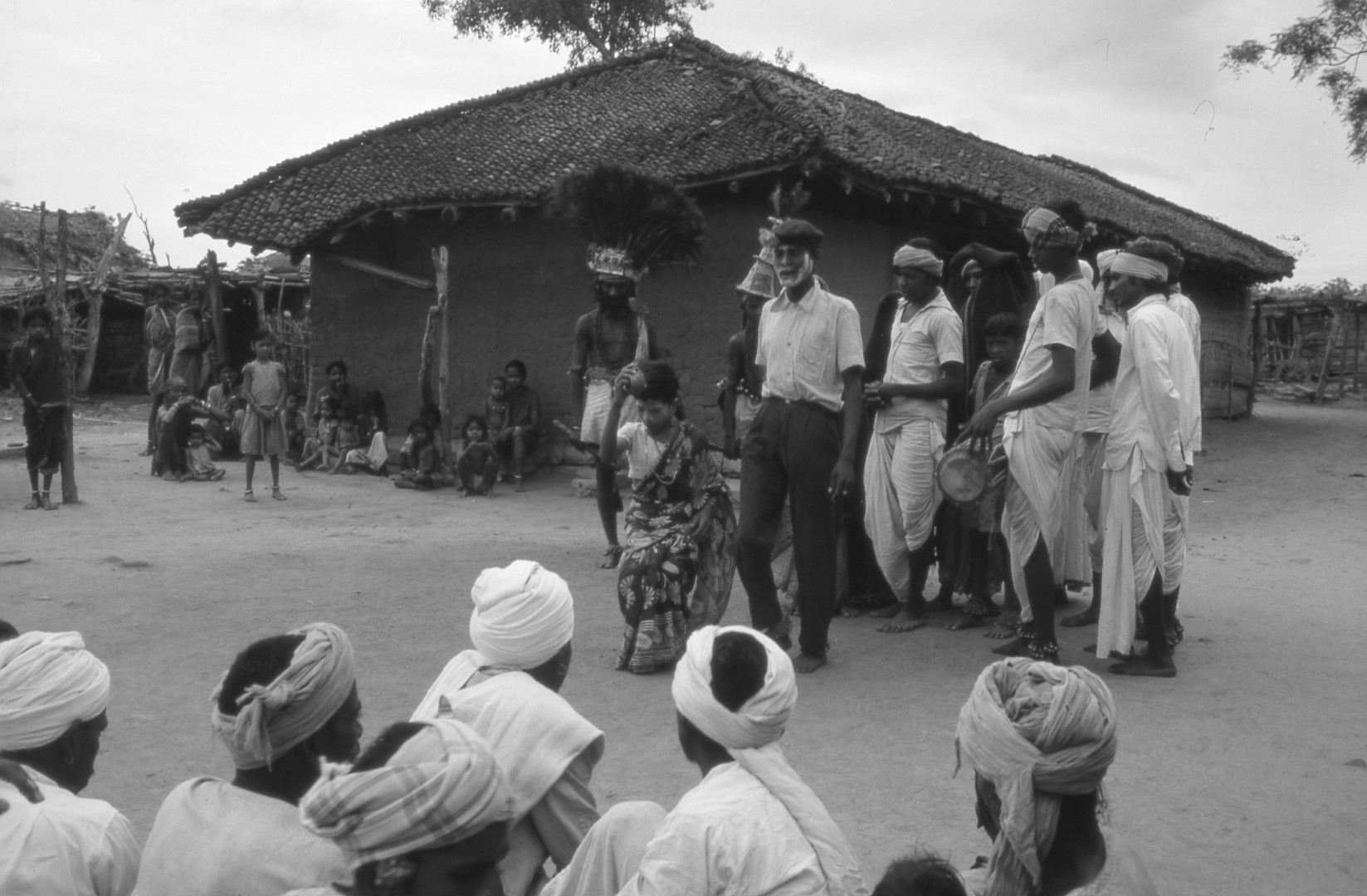Social Life
Dancing
Among the Raj Gonds the spiralling dance is done only by women, while the men supply the music. Men do perform a number of dances that have a strong mythological content. The women’s dance is largely performed during the important annual ‘Dandari‘ festival.
Itinerant Magicians
These wandering magicians, called ‘Jadu Patua‘ occasionally come to Ginnedhari. They are non-tribal illusionists living by entertaining the people by making objects vanish and reappear by skilled sleight of hand.
Marriage, 'Marming'
Marriages among the Raj Gonds, called ‘marming‘, are arranged between the parents, and regulated by the clan structure. Some marriage betrothals, ‘kaja kobre‘, are arranged while the girl is still a minor. Betrothal, ‘kaja‘, is an elaborate time-consuming process, often involving a go-between matchmaker. A bride and groom must not be the same phratry or clan, ‘pari‘. Marriage is exogamous. More often than not the boy’s and girl’s agreement is sought. The final wedding ceremony is a complicated and meaningful 4-day ritual, in which the bride becomes a member of the groom’s clan and phratry, and acquires the protection of his ancestors. Until a ‘marming‘ is arranged a person is not considered a mature adult, whose wife has joined his phatry, ‘pari‘. However there is also a less formal and unarranged marriage system called ‘paat‘ or ‘pisi wartwal‘, meaning ‘marriage by capture’. These are either love marriages or secondary marriages. ‘Paat‘ must also be between people of a different phratry or clan, ‘pari’ and be exogamous, but they do not necessarily involve a brideprice, ‘pari kapra‘. There are also ‘lamsare‘ marriages, where the boy comes to live in his bride’s house, because they have no sons – an uxorilocal marriage.
These photographs are all of the elaborate ‘kaja kobre‘, arranged marriage rituals, ‘marming‘.
Panchayat meetings
These are meetings of the village elders to decide matters of importance to the people. This being a largely patriarchal system, they are attended mainly by men, though women may also watch and contribute to the discussion.
Pradhans and Thotis performing epic myths
The Thotis and the Pradhans are two tribal groups of traditional musicians, minstrels and bards, who service the Raj Gonds. Traditionally they have memorised the mythical origins of the Raj Gond clans and the complex mythical stories about the creation of the world. They have a similar clan structure and perform the mythical stories at important rites of passage, such as births and deaths for their clan patrons. The Tothis speak a Dravidian language, and the Pradhans speak a Marathi language. Traditionally they relied on annual ‘jajmaan‘ payments, though recently they have become agriculturalist, as their bardic skills are less in demand.
Street Scenes
The streets of a Raj Gond village are common areas that everyone has access to, and where children get together and play. There are many open areas that everyone uses, with wells and where council meetings are held.
Street theatre, Dandari Kelk, Ramayana
The Raj Gonds love performing elaborate theatricals, ‘kelk‘, to entertain villagers on festival days. This is a masculine activity, young boys and ‘hijra‘ or ‘ali‘, transgender people, take on the female roles. The villagers of Guddipet have a great annual tradition of performing the Hindu epic of the Ramayana. During the Dandari festival villagers perform light-hearted skits that mock the accepted social values. This is a festival when normative behaviour is challenged.
